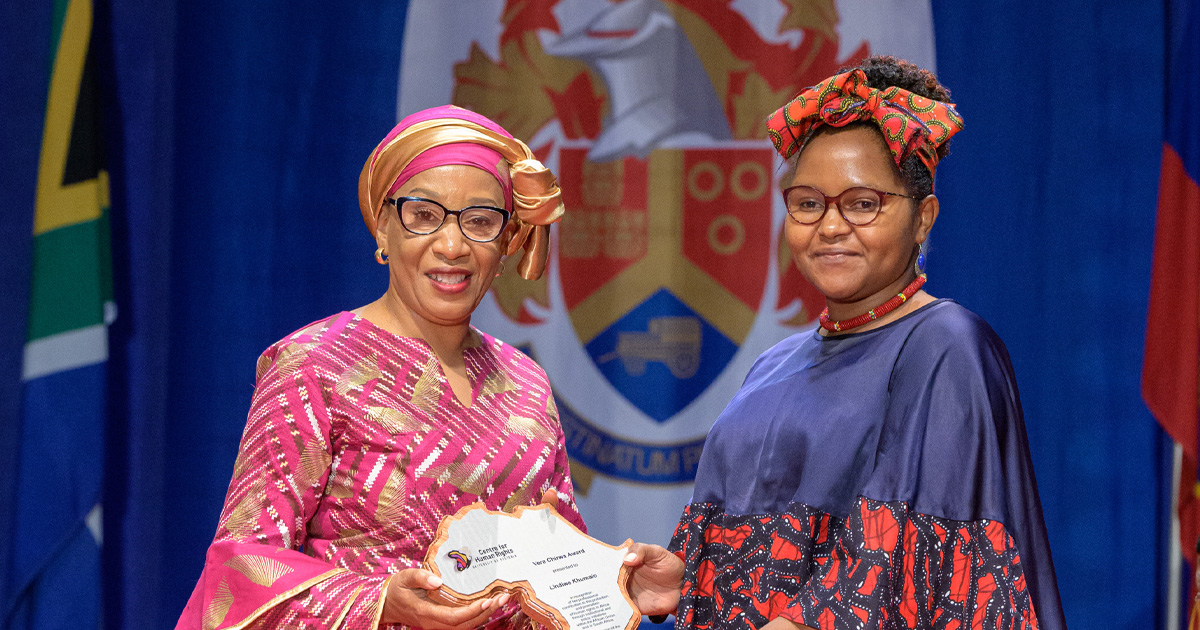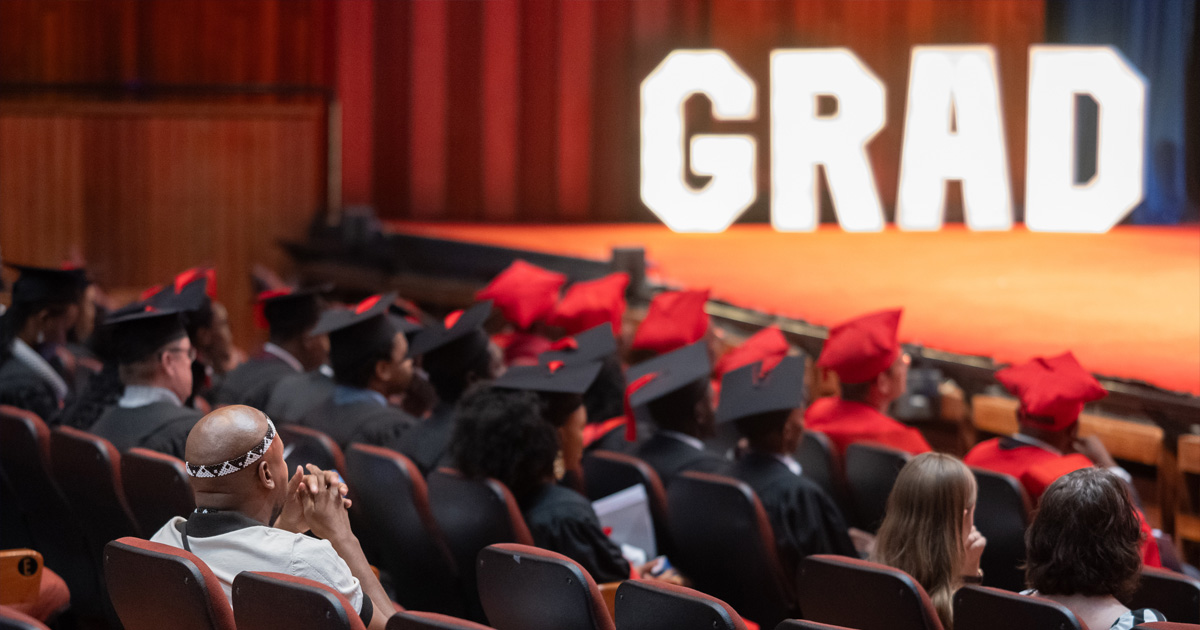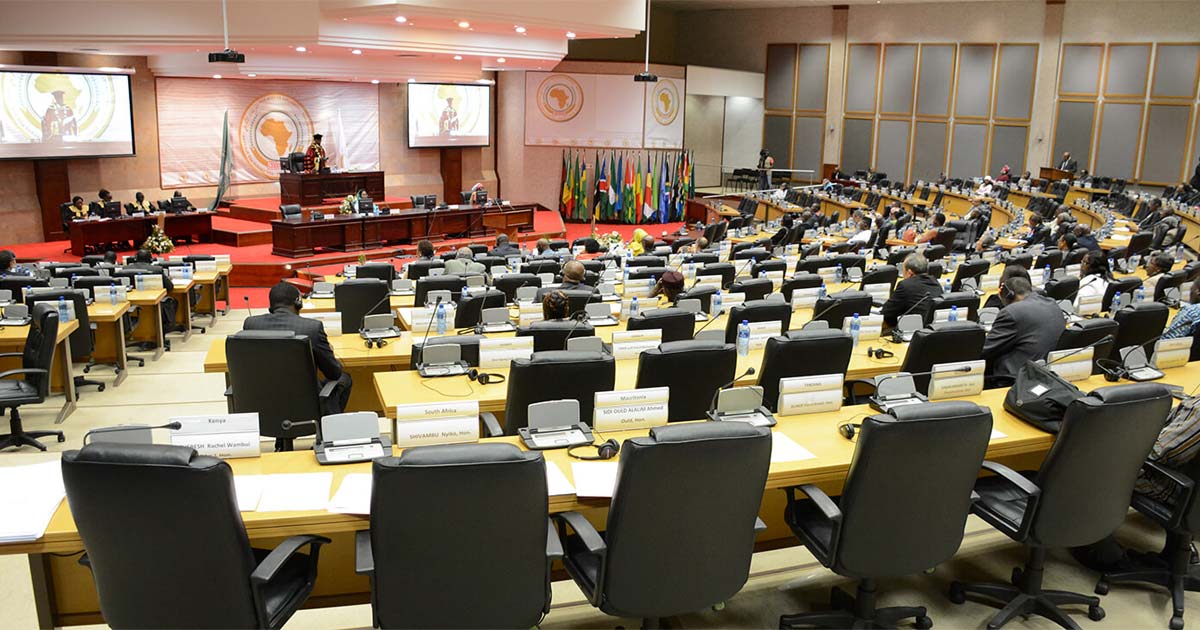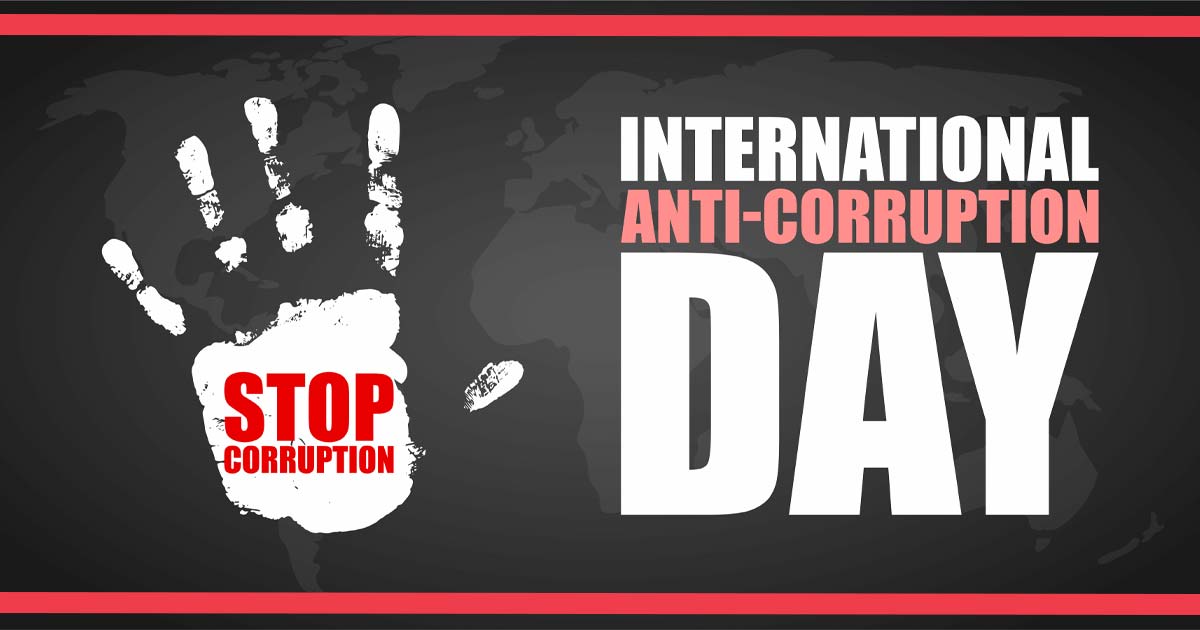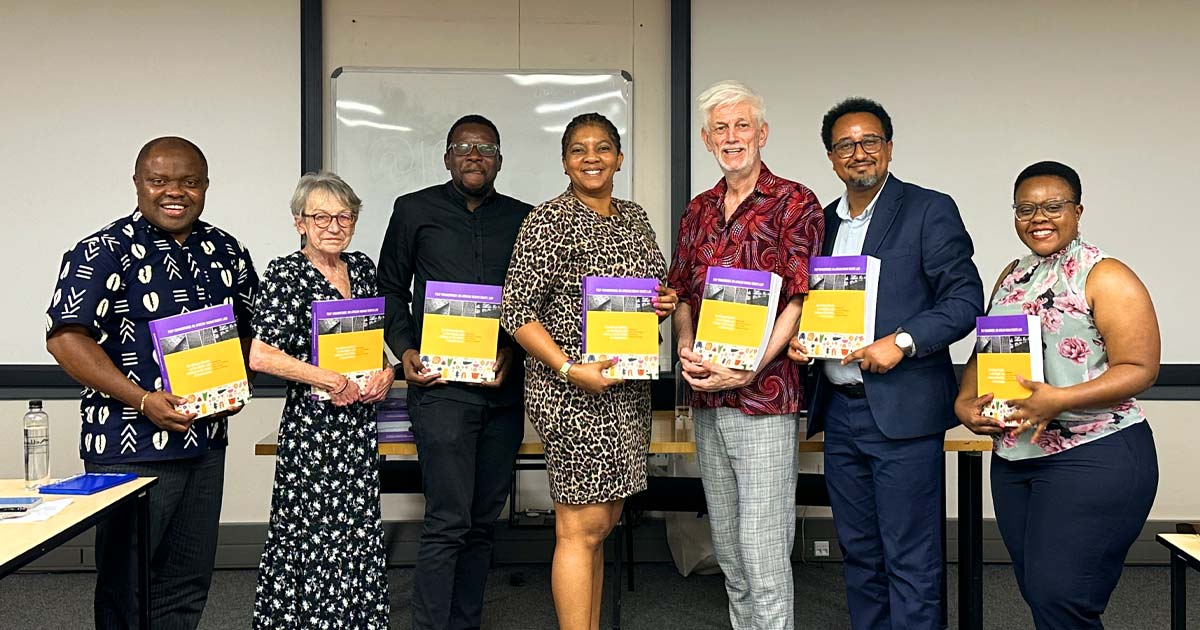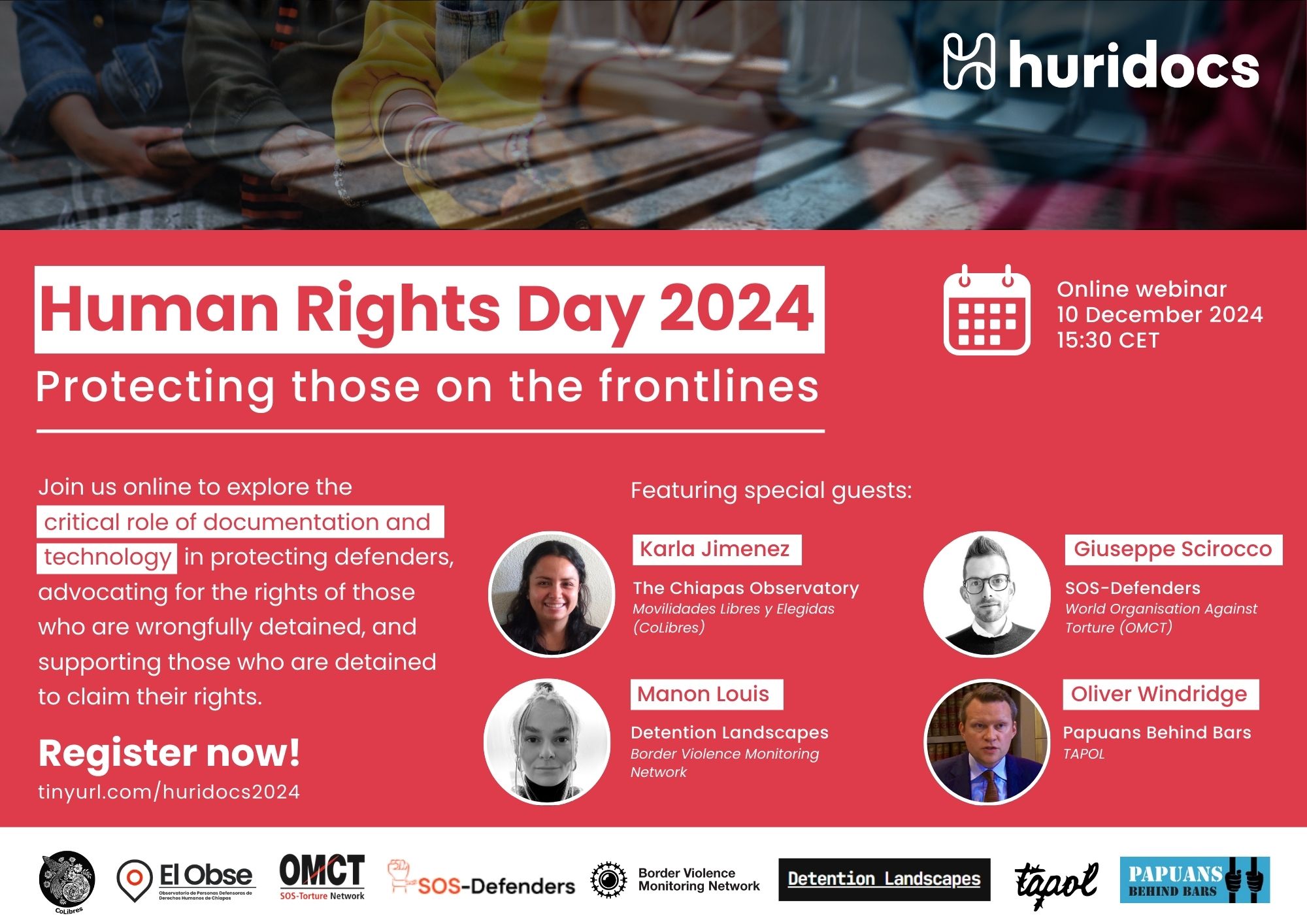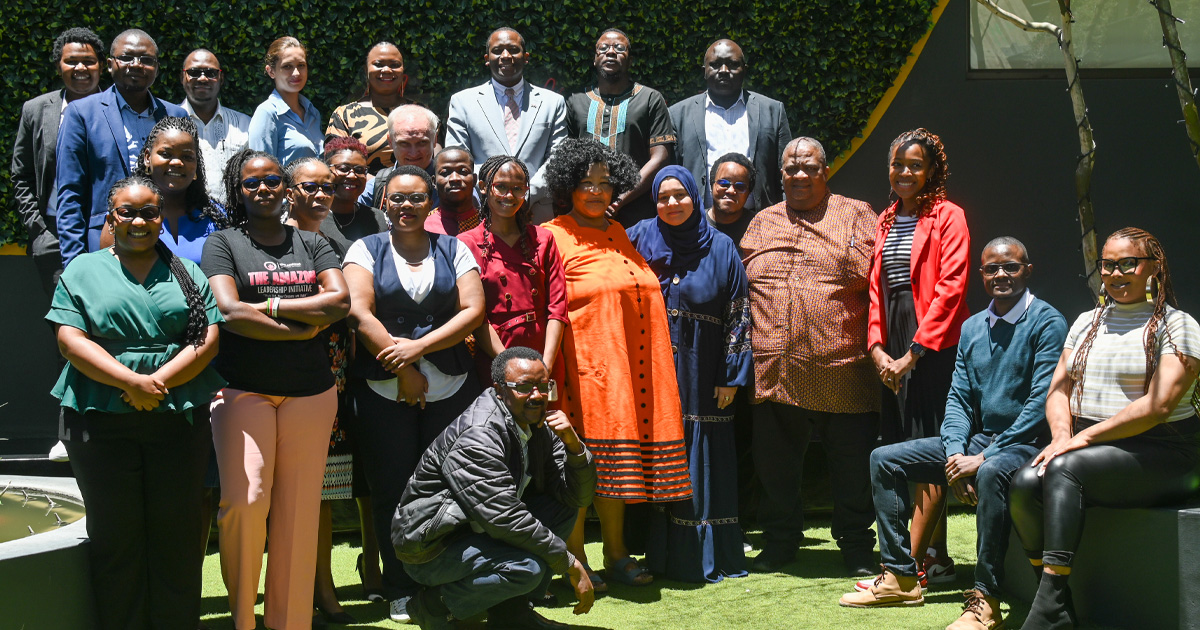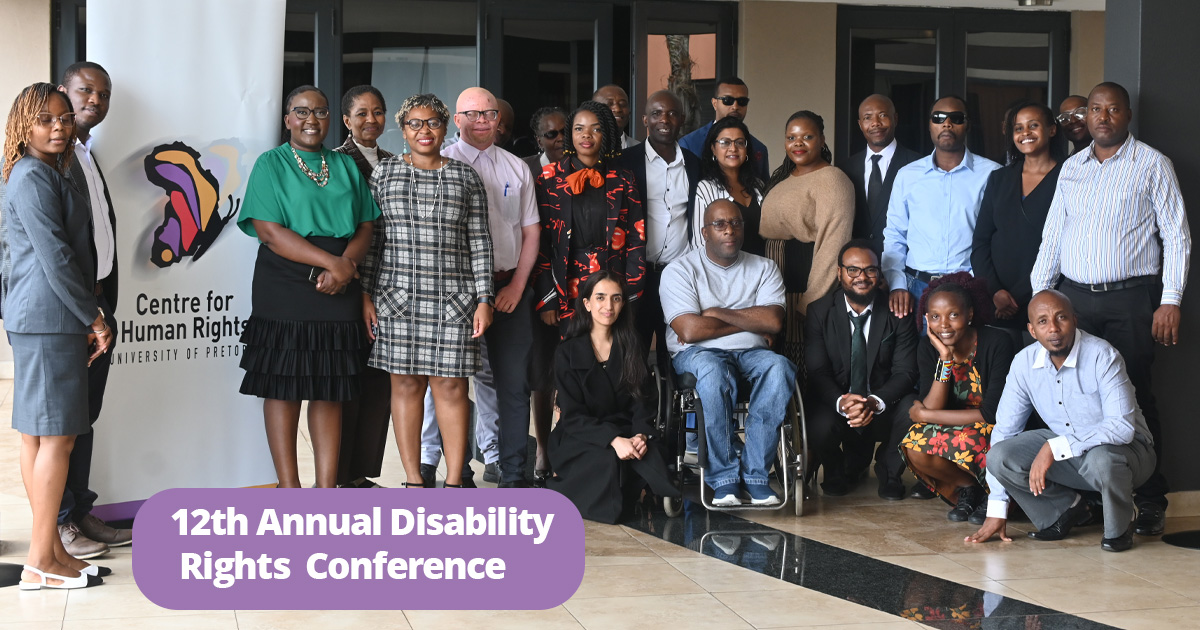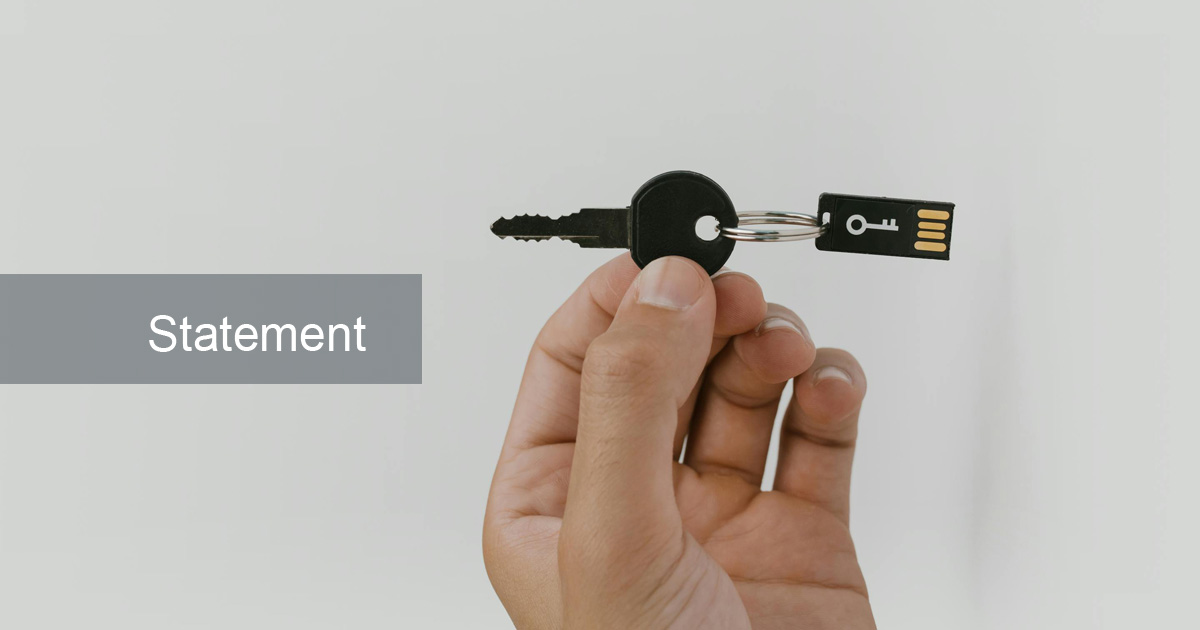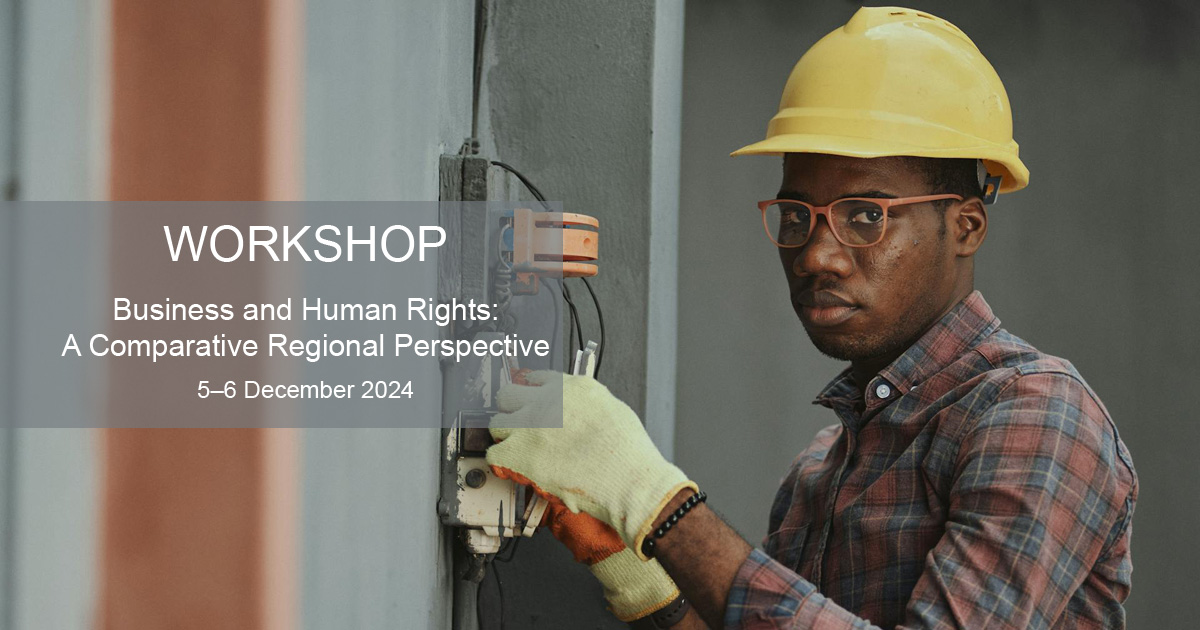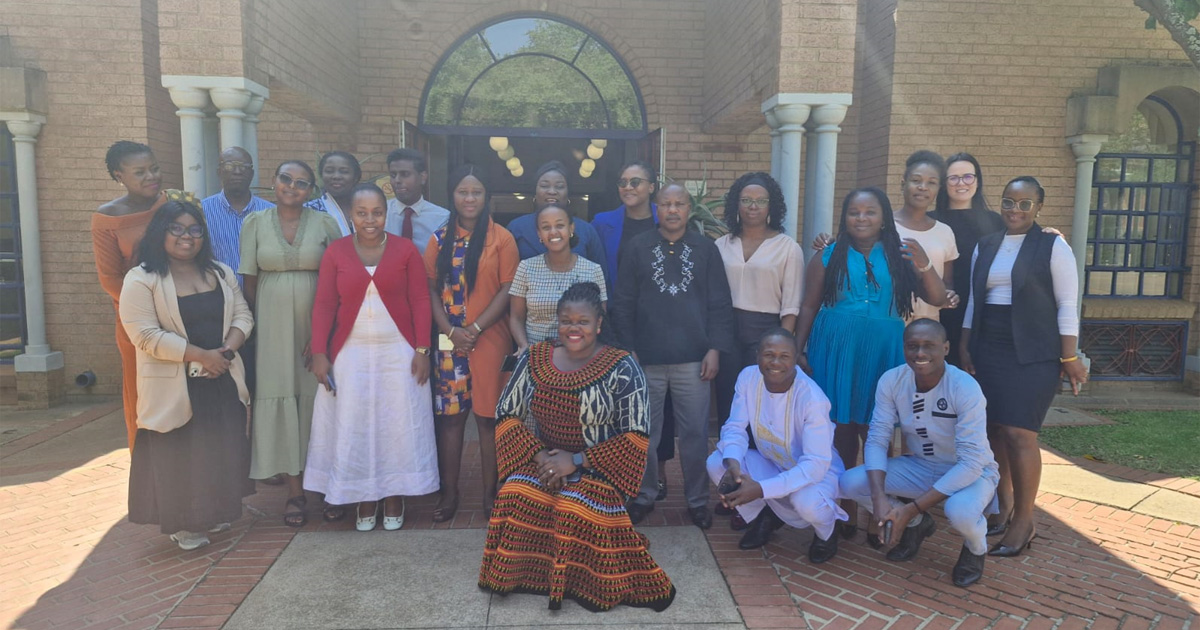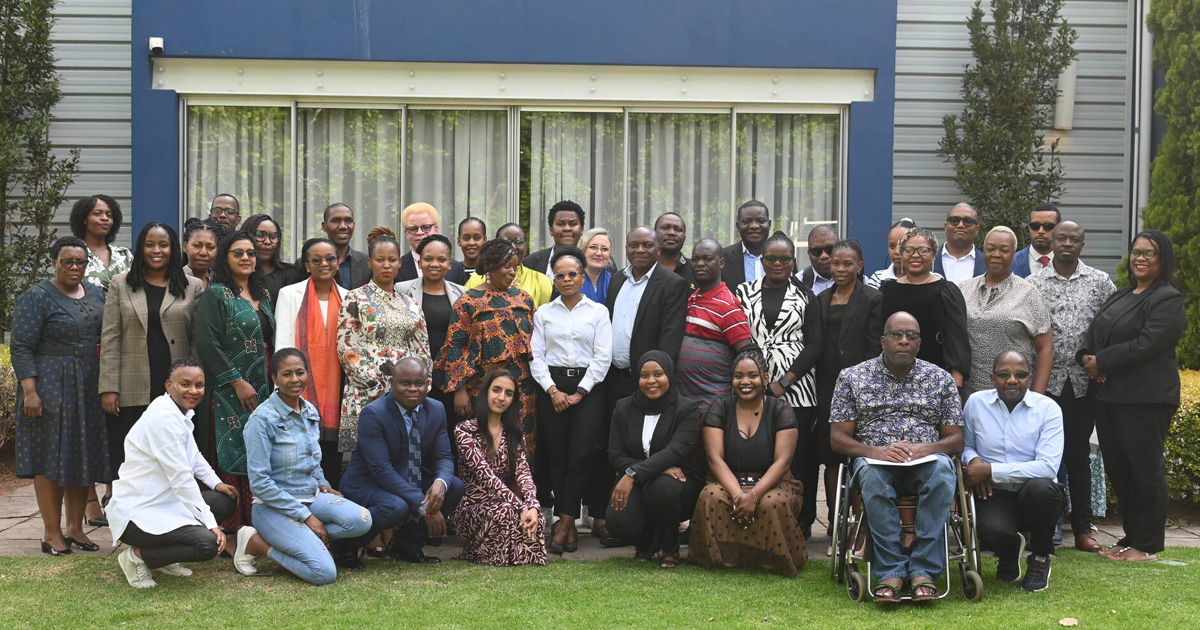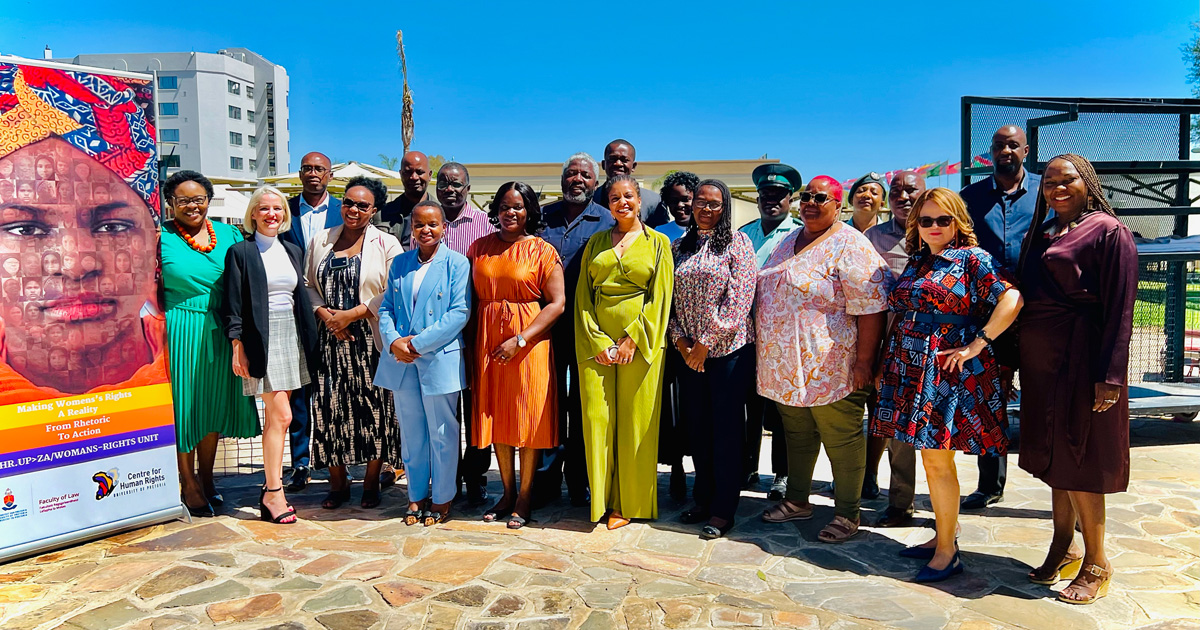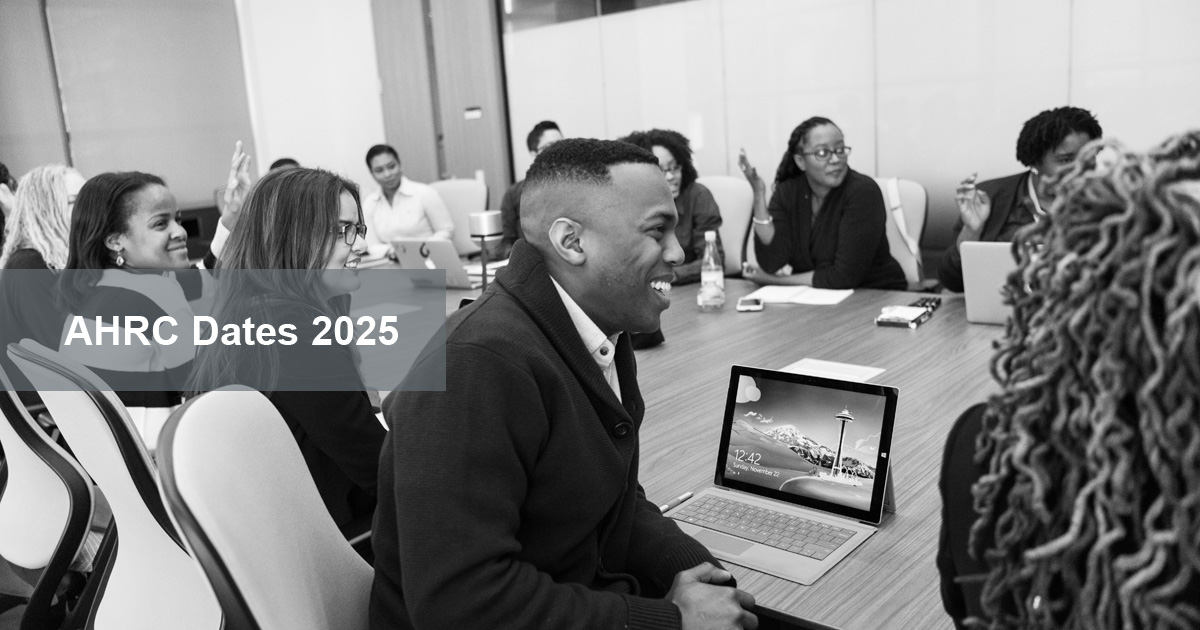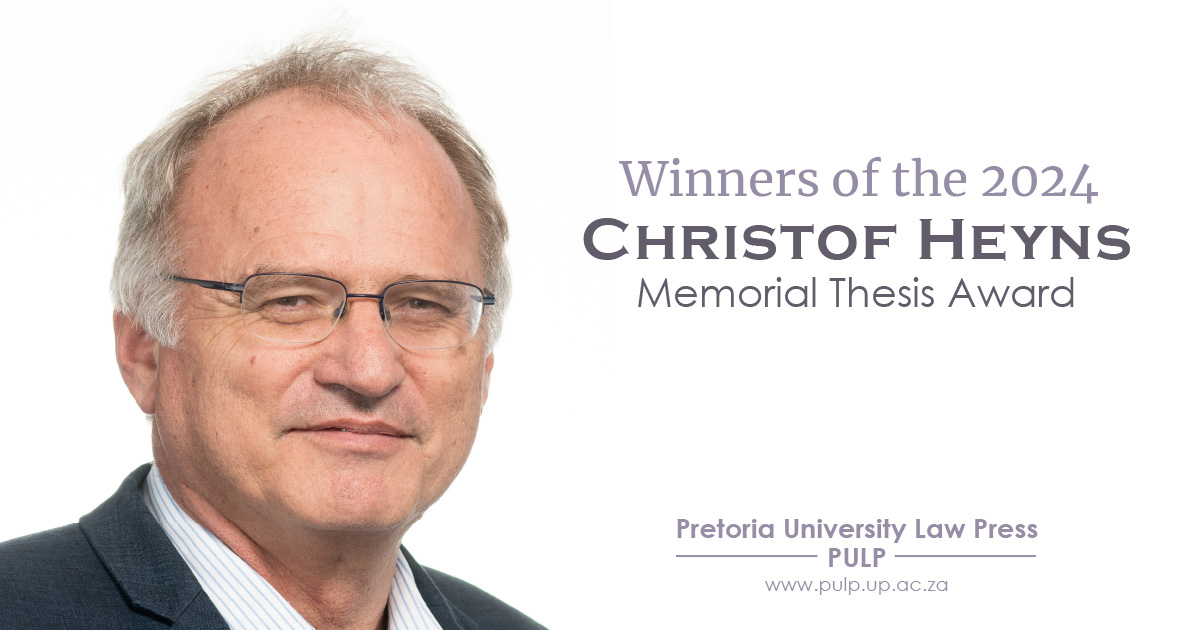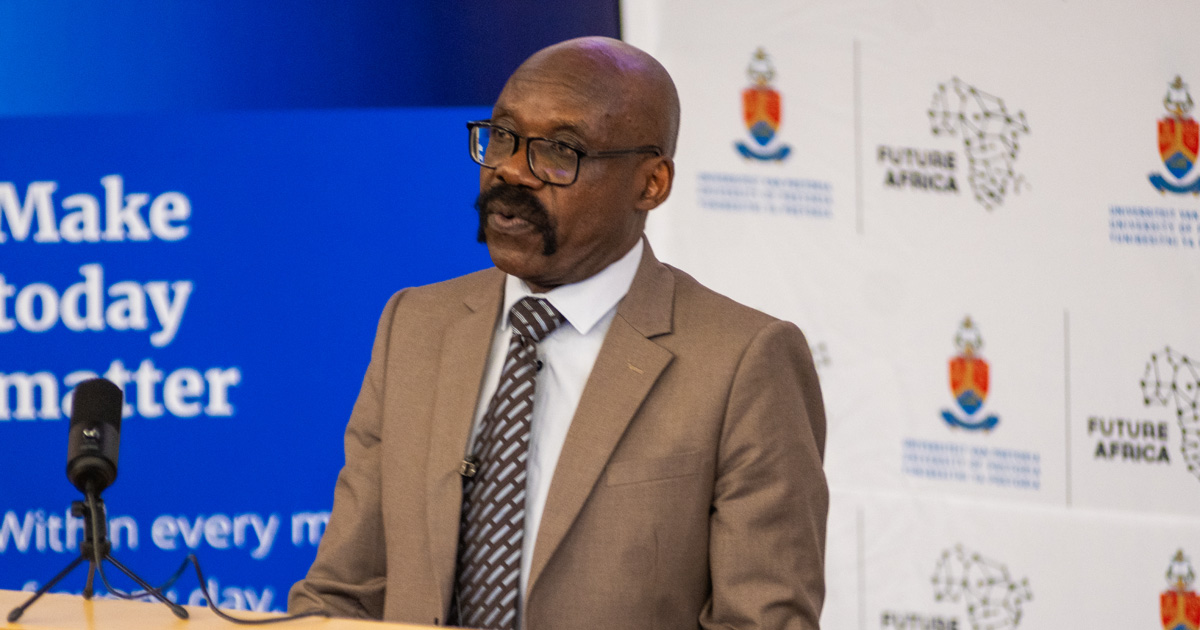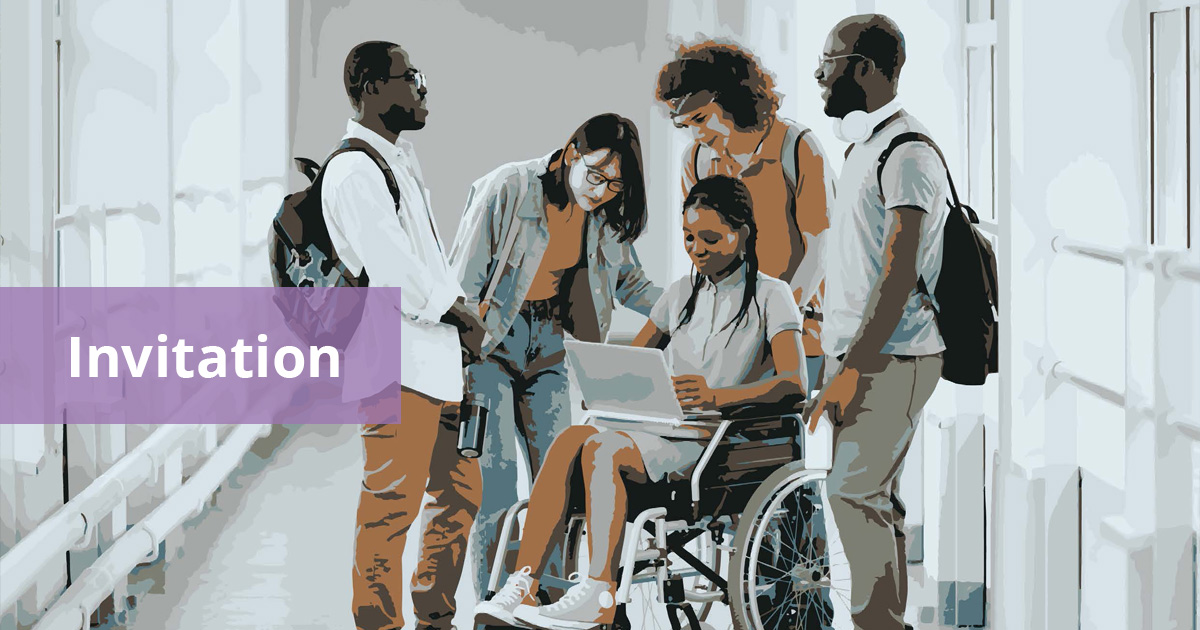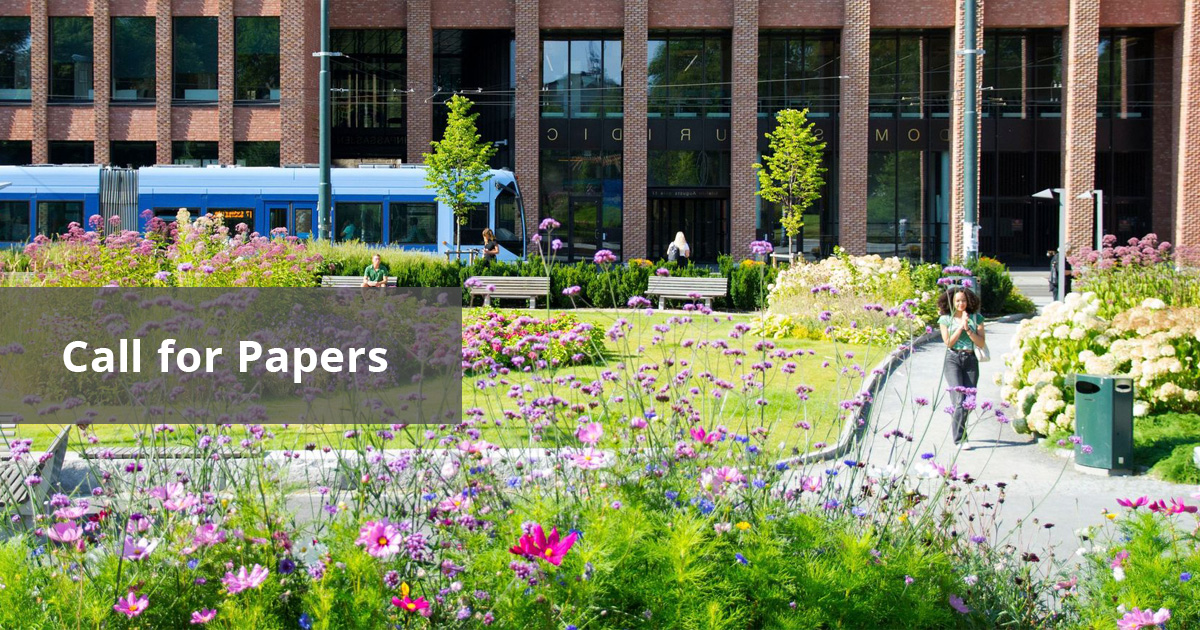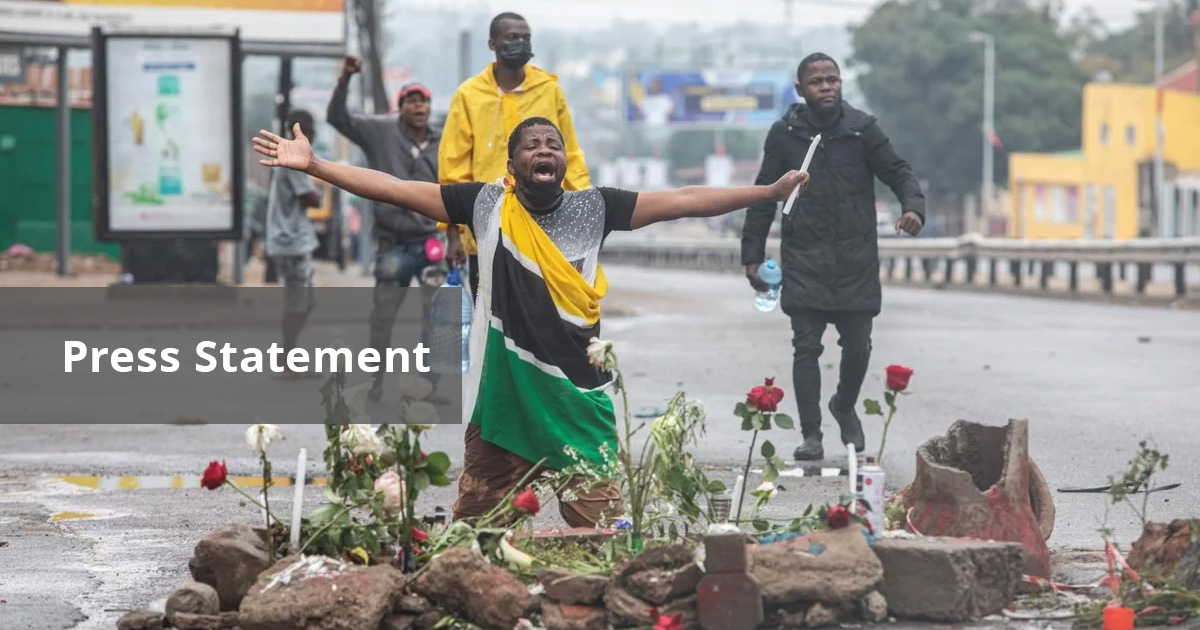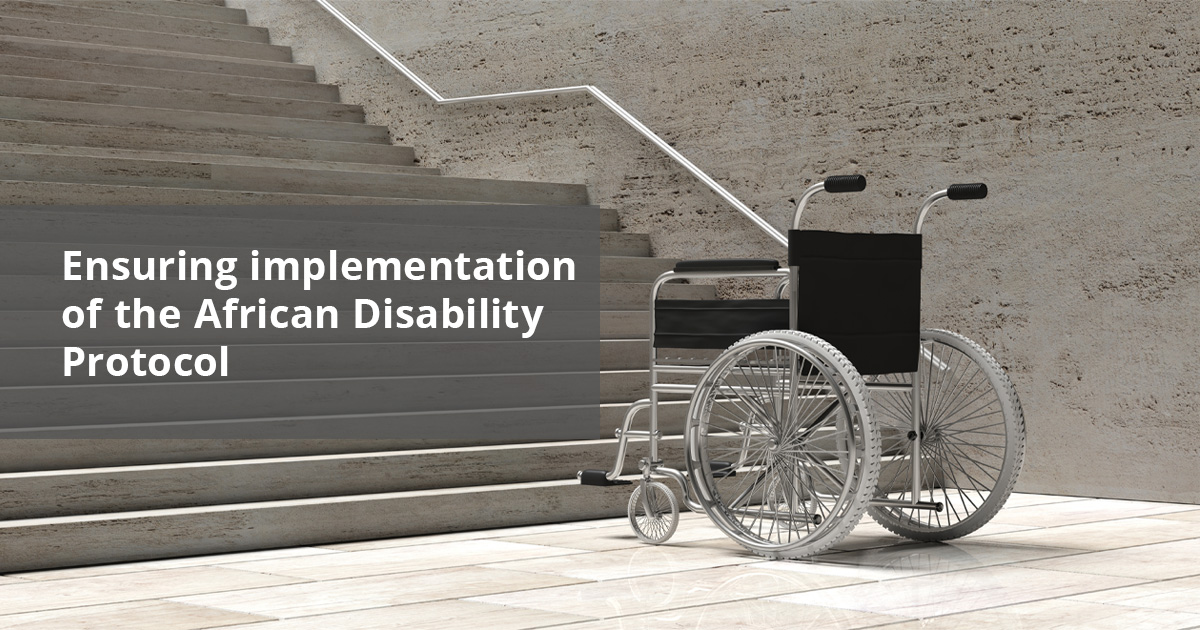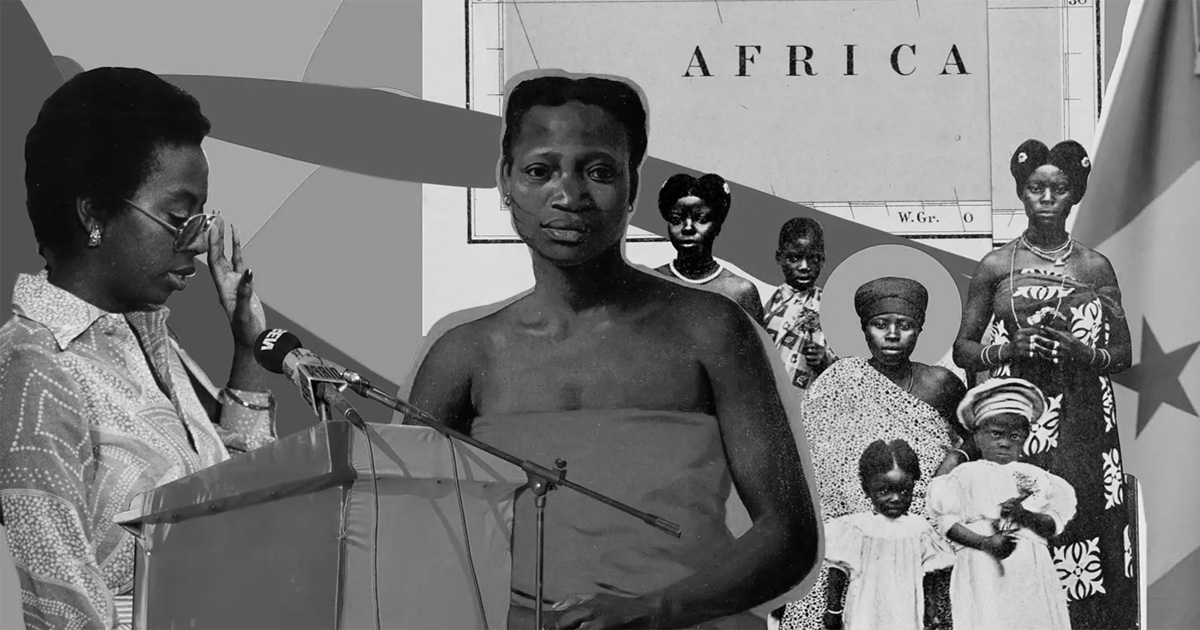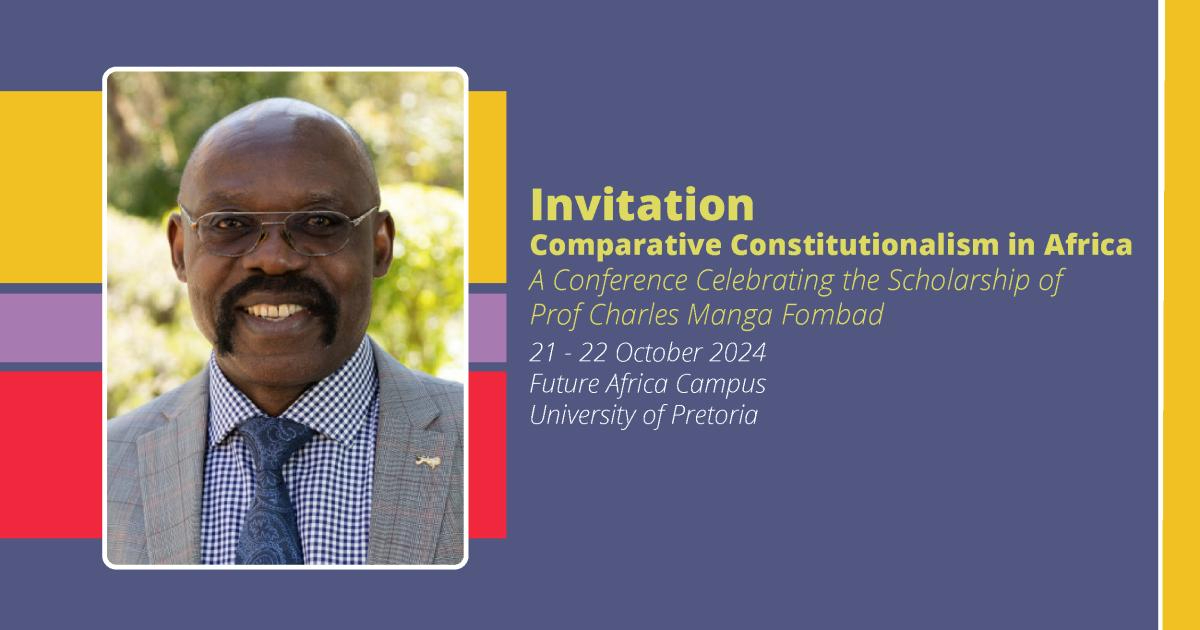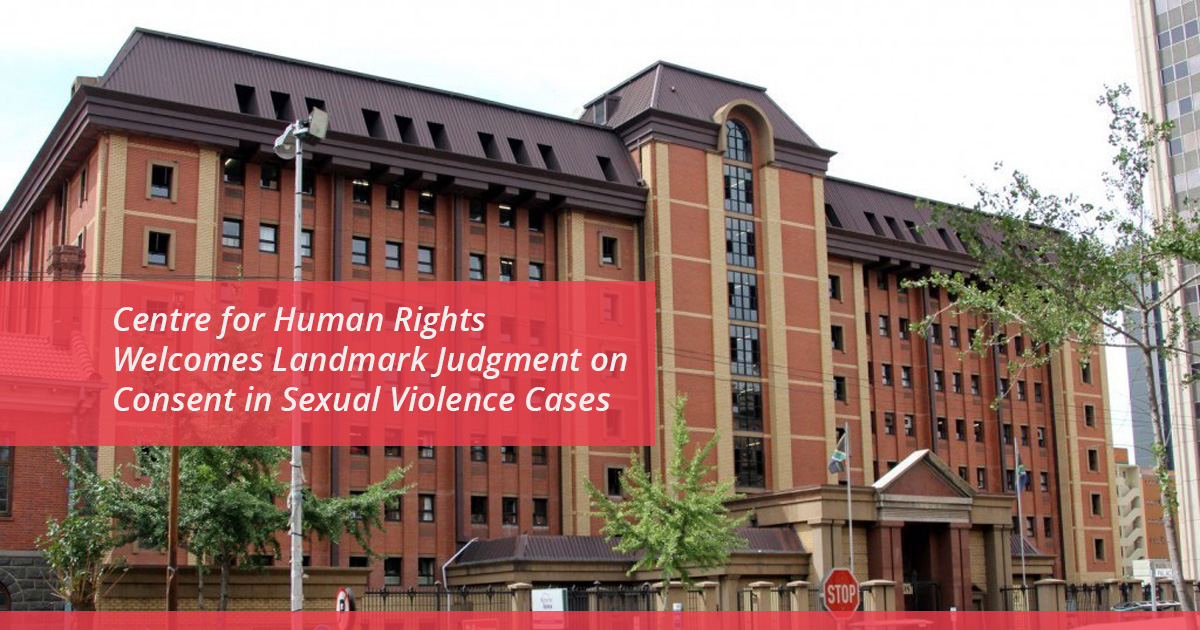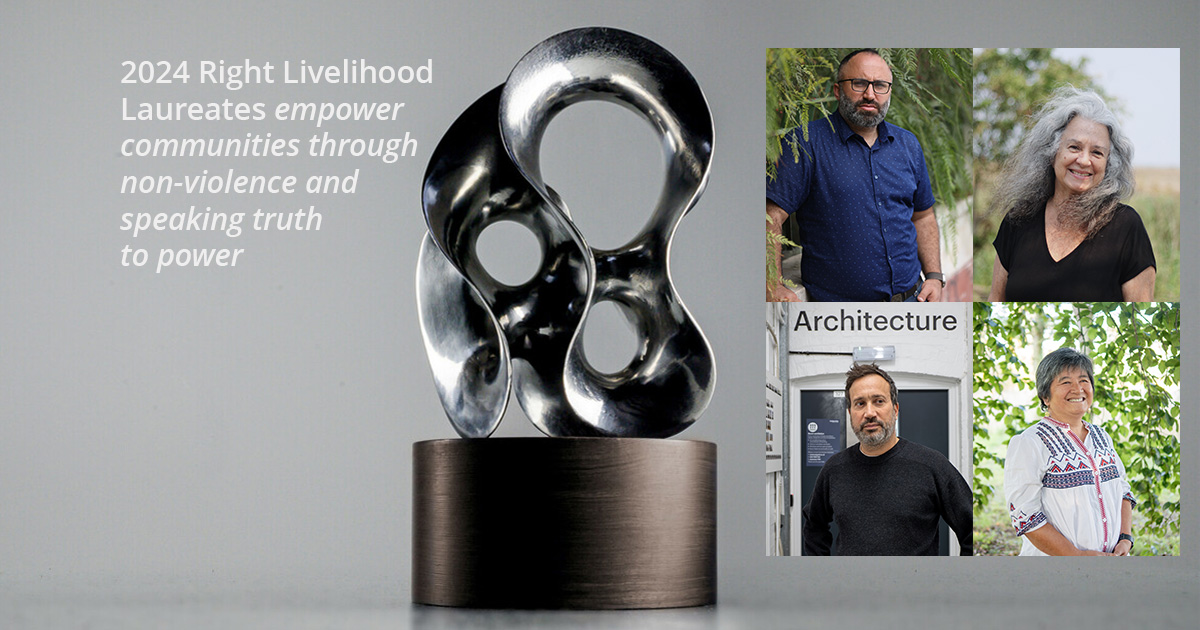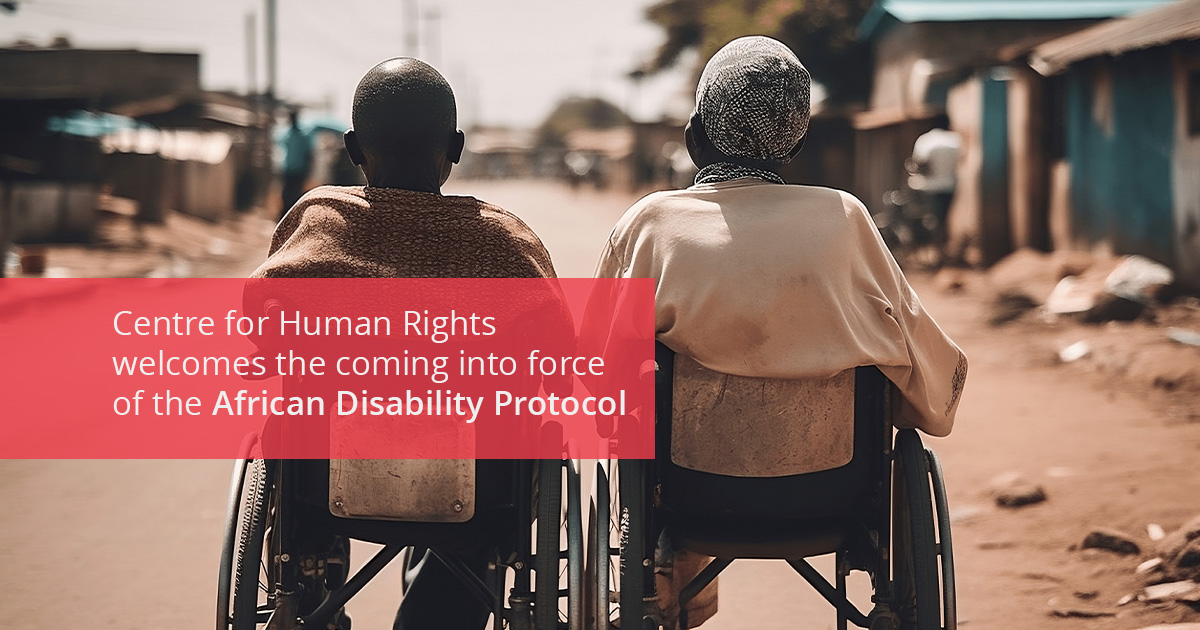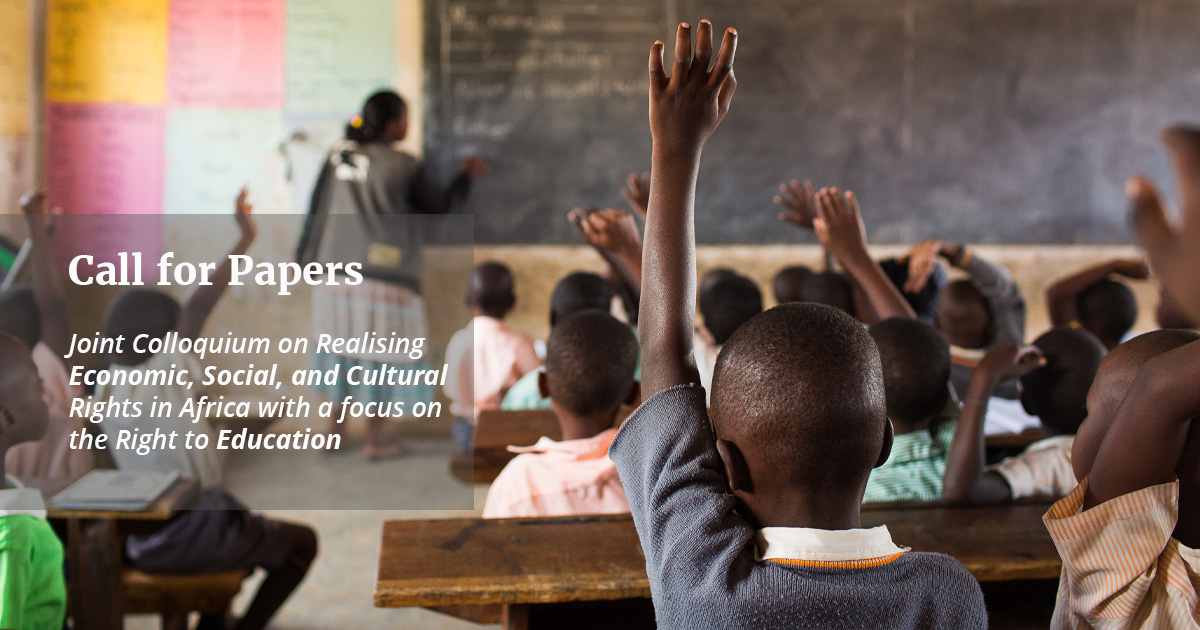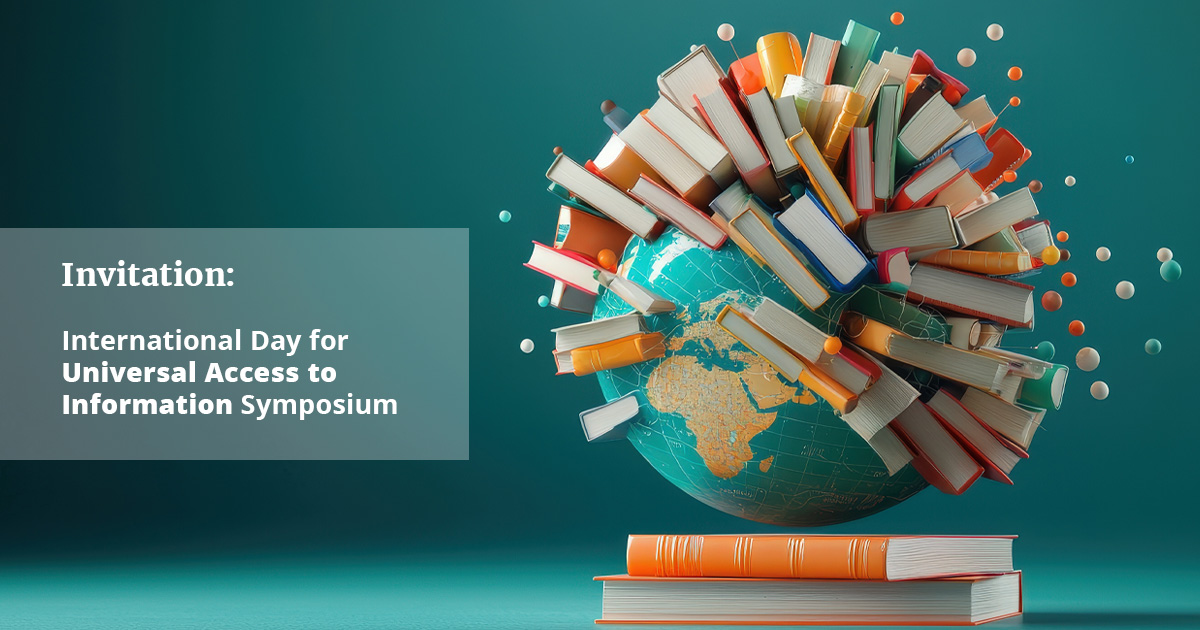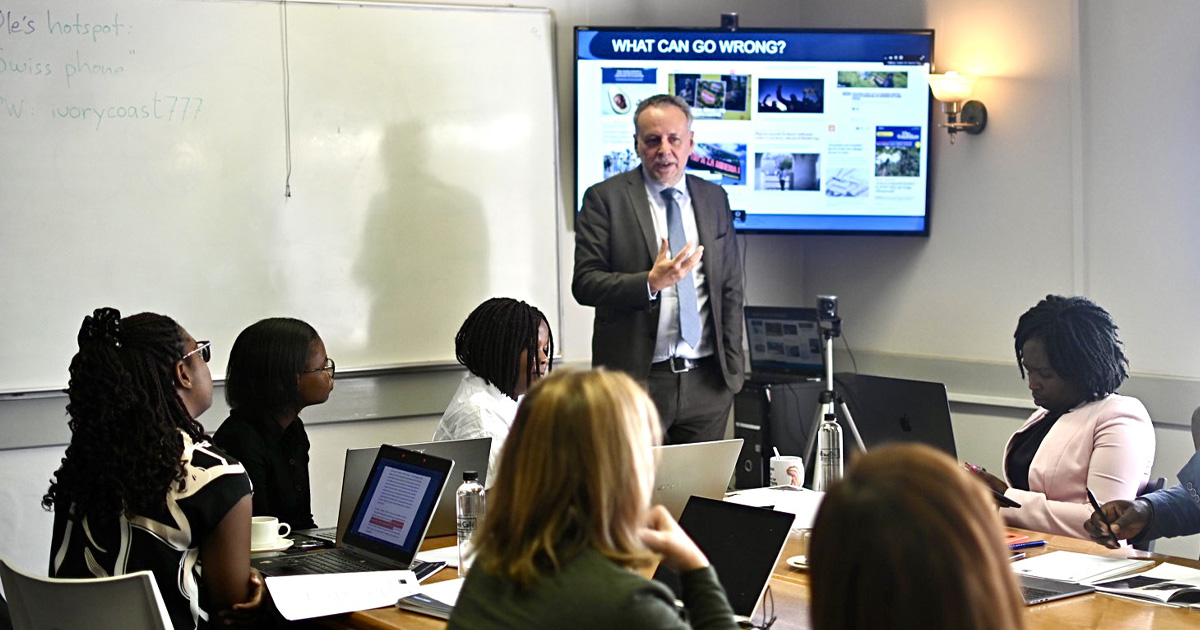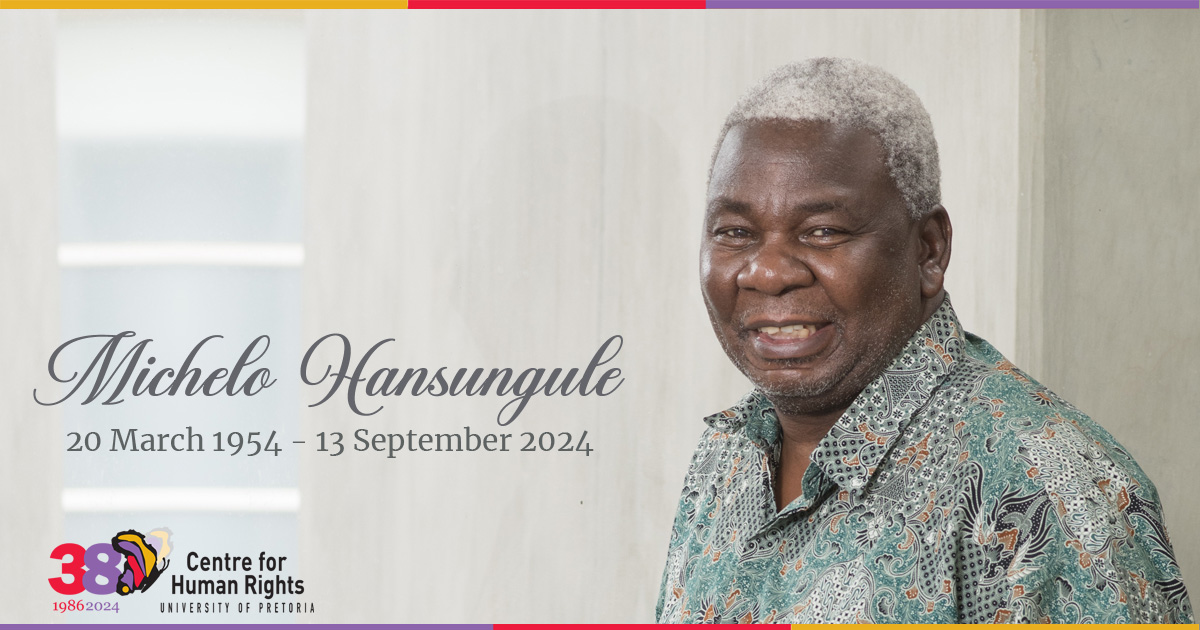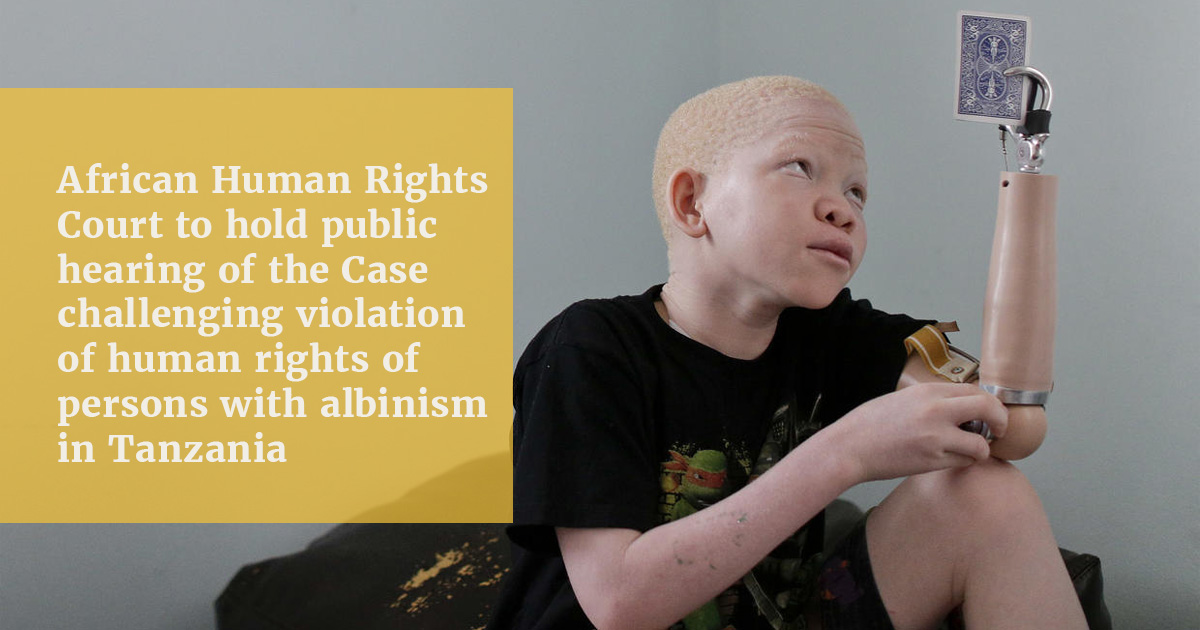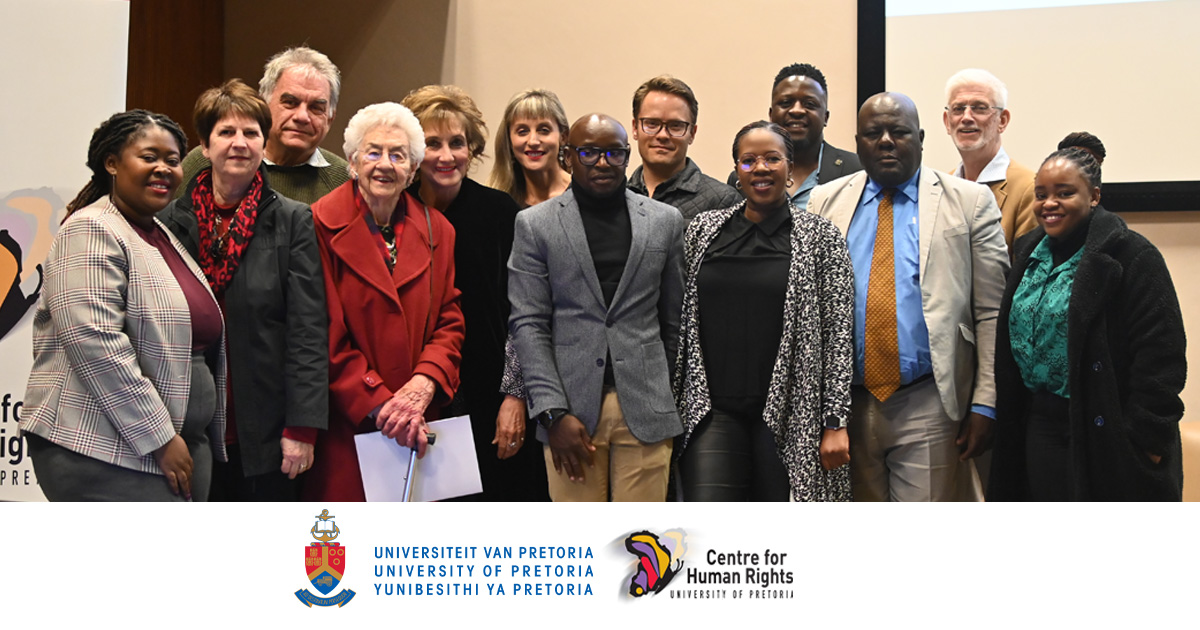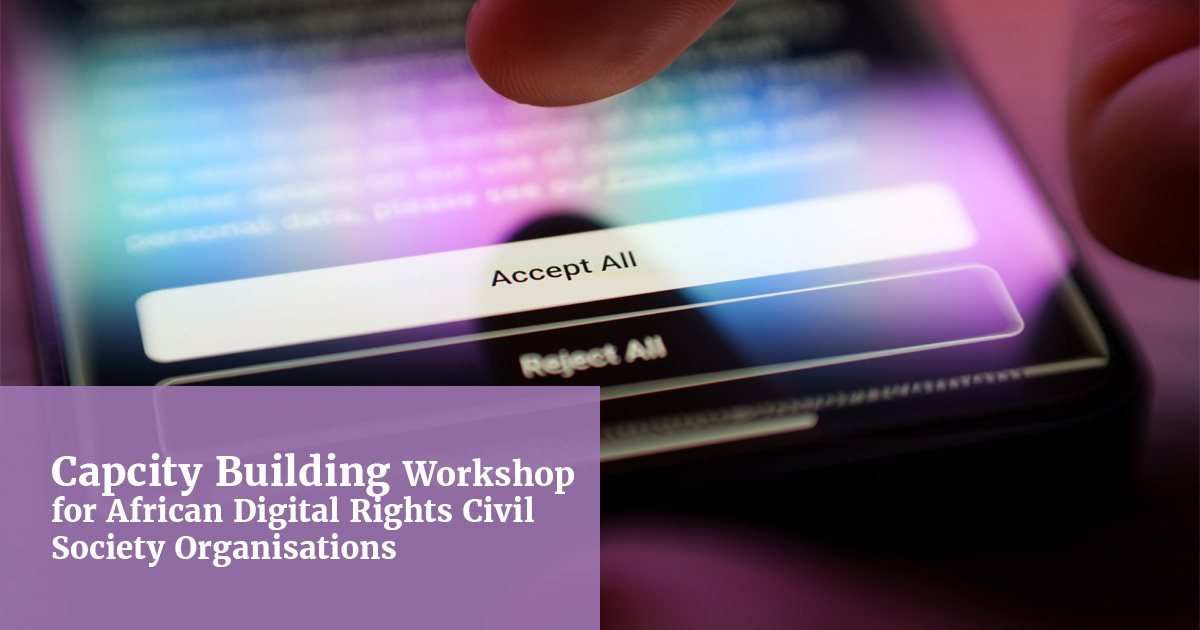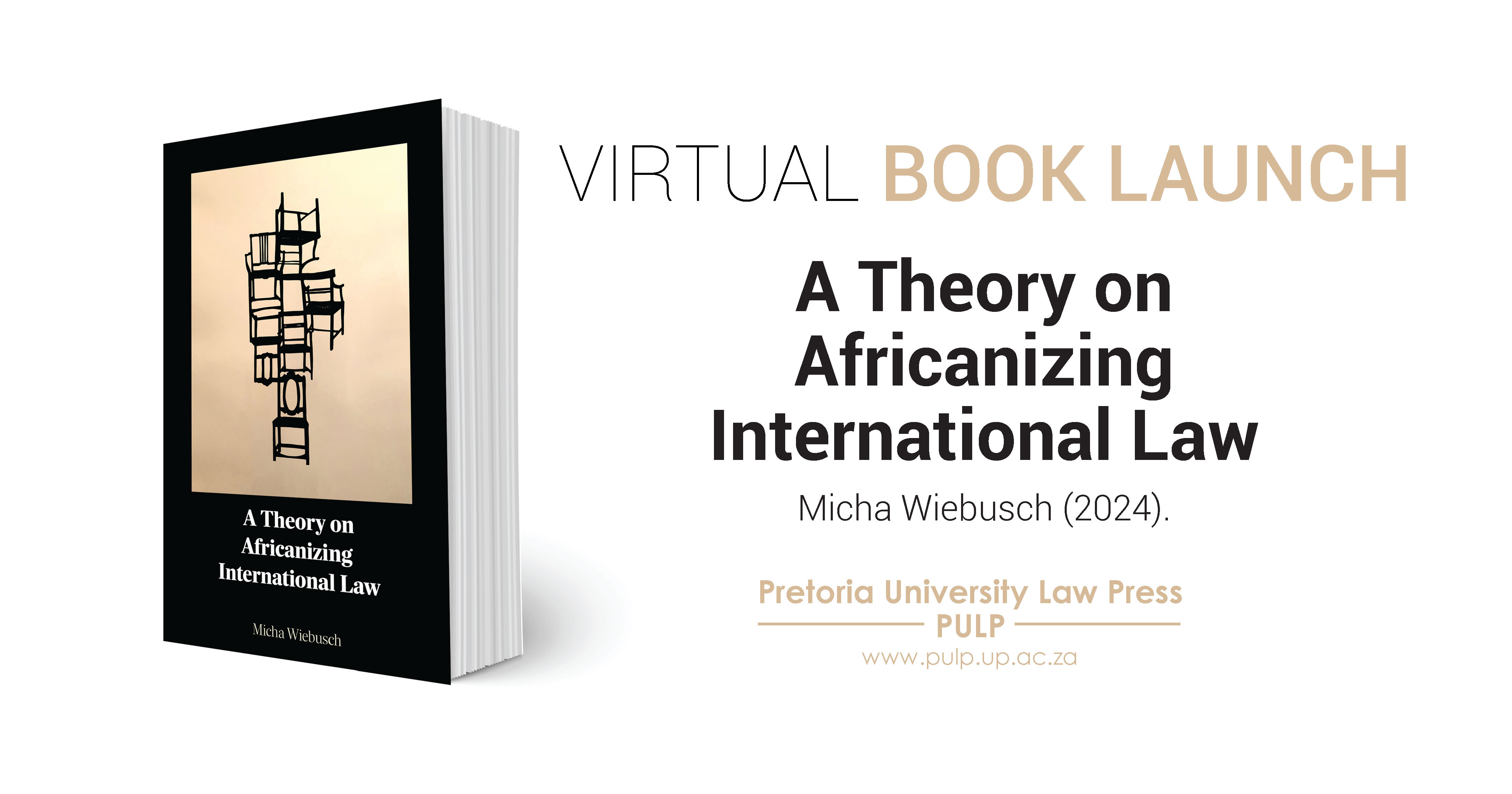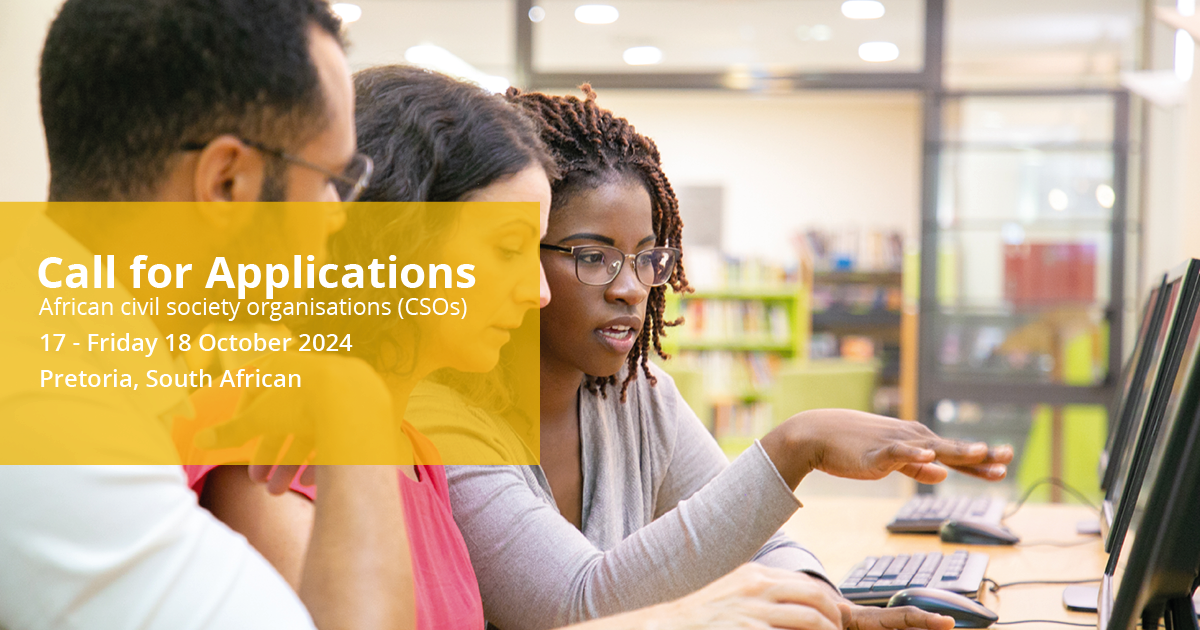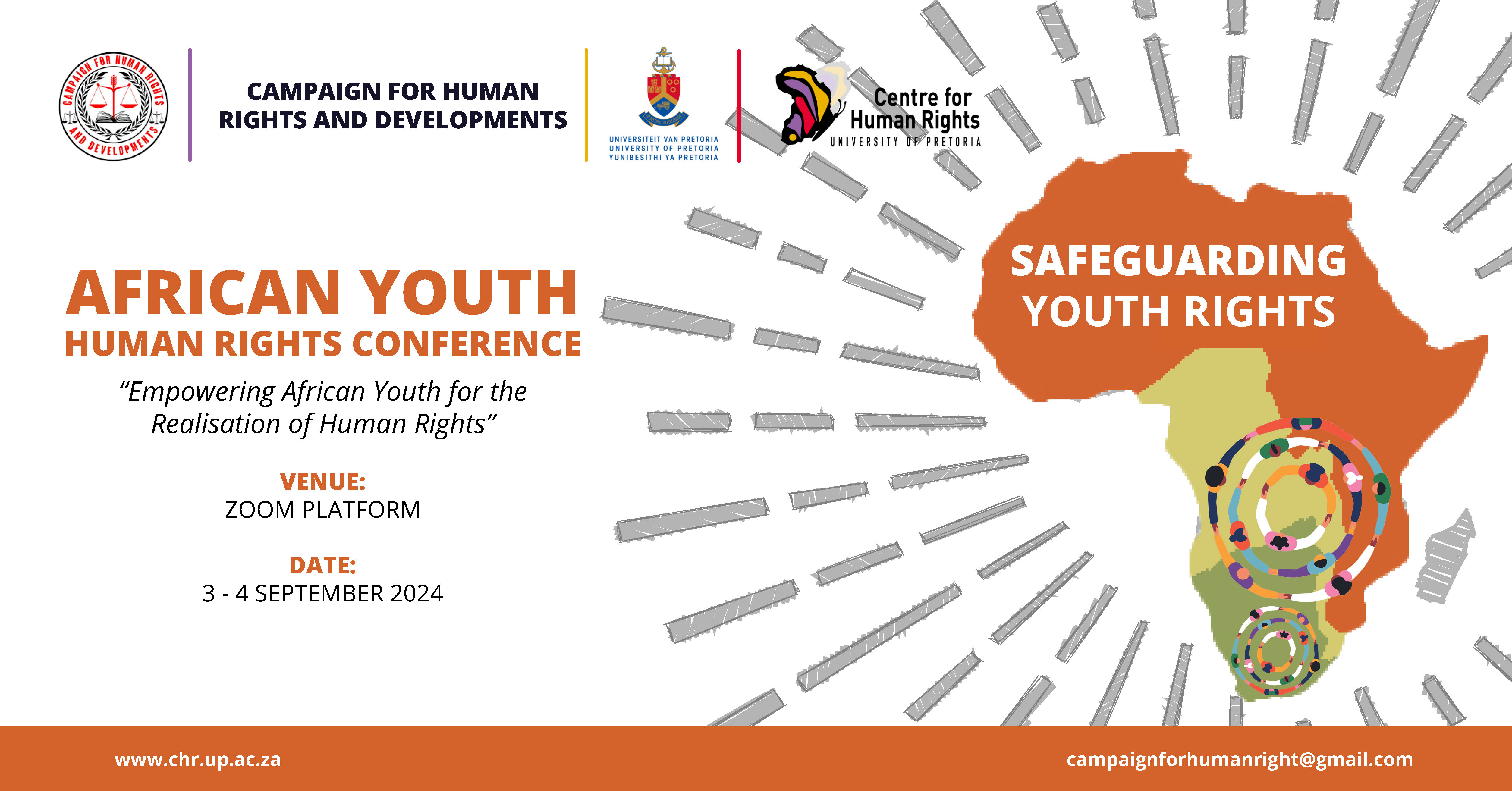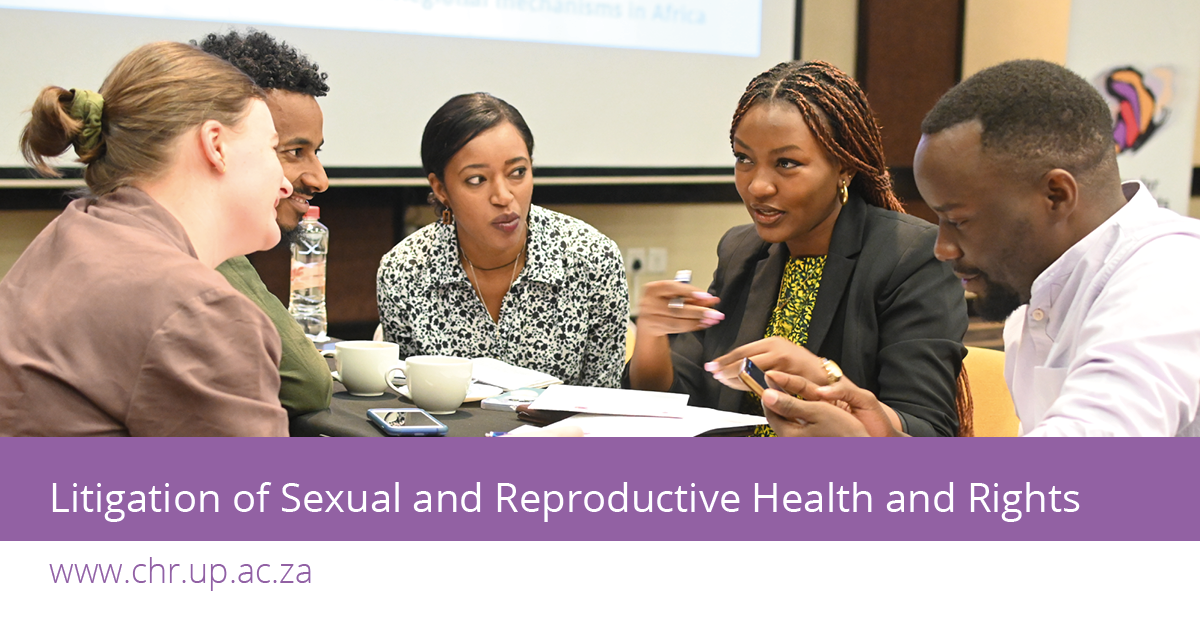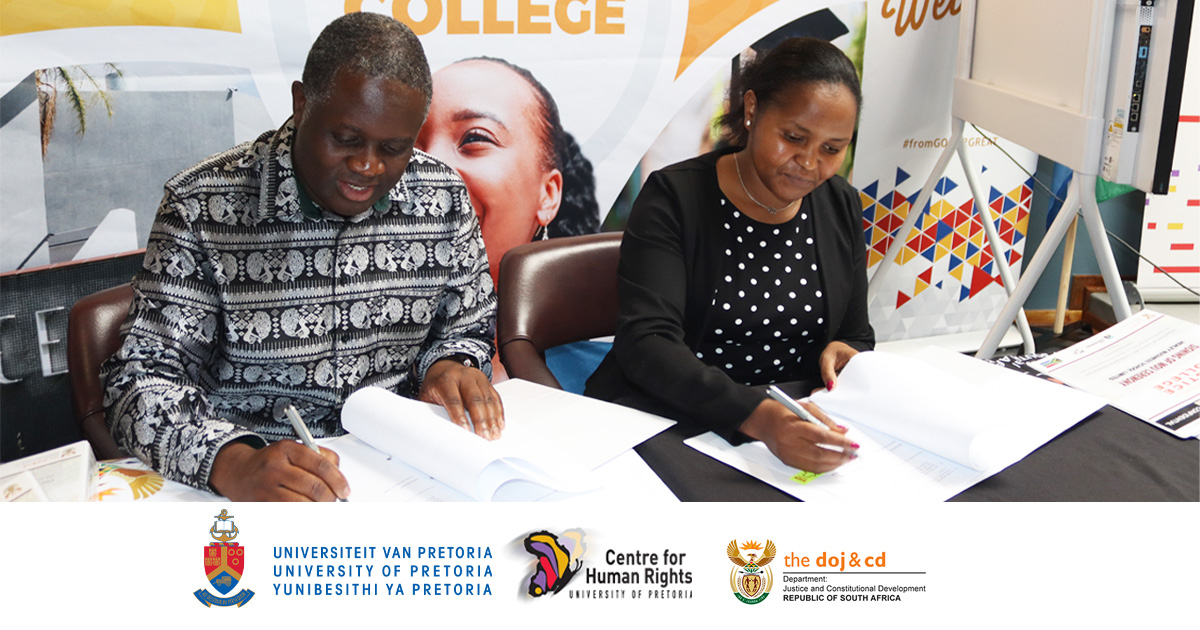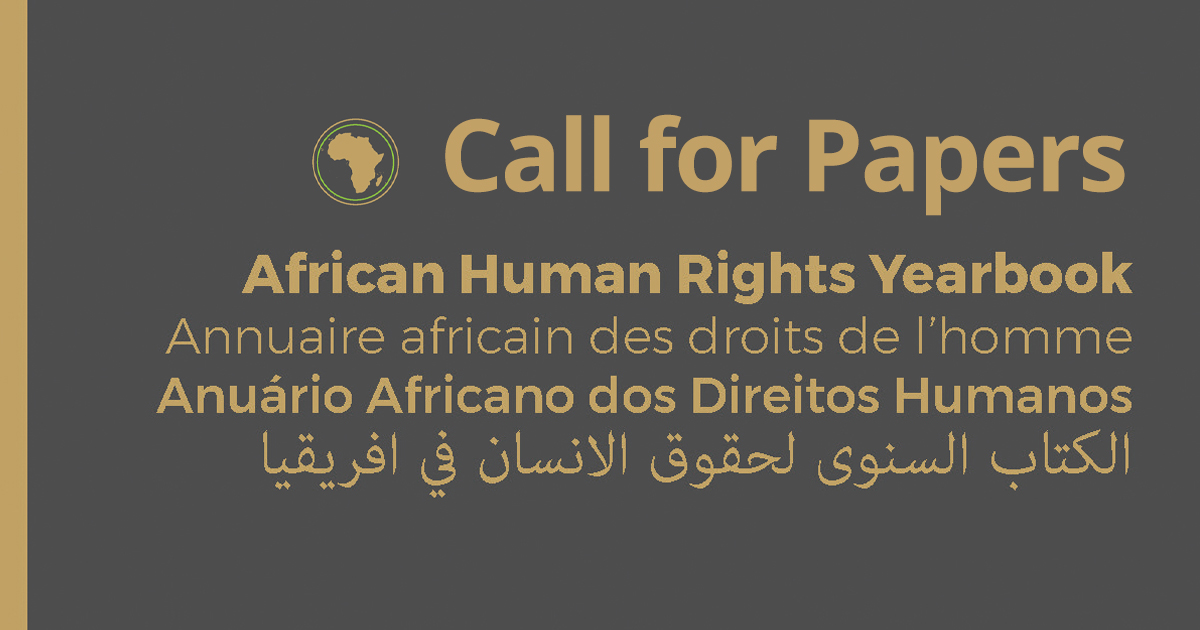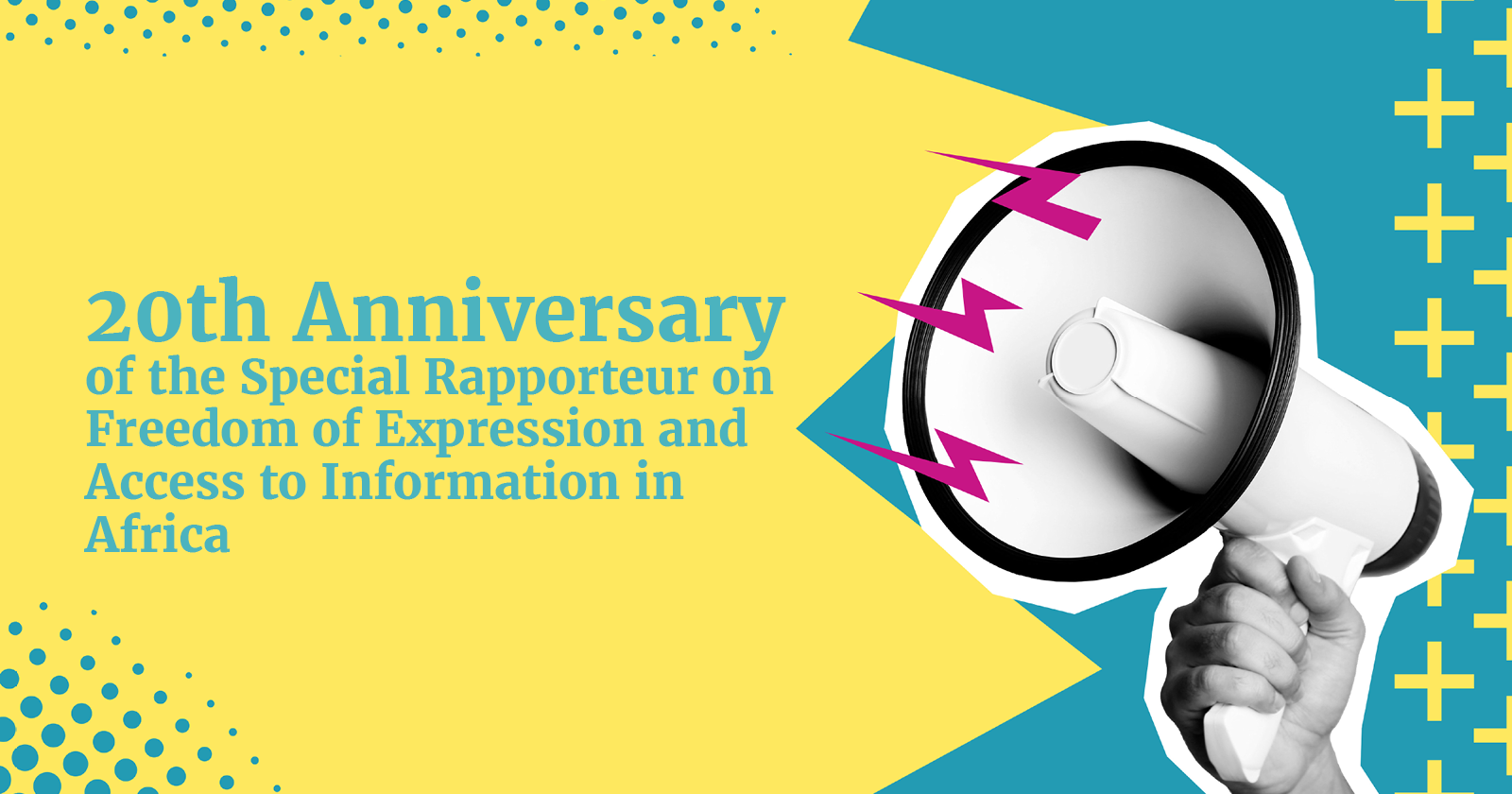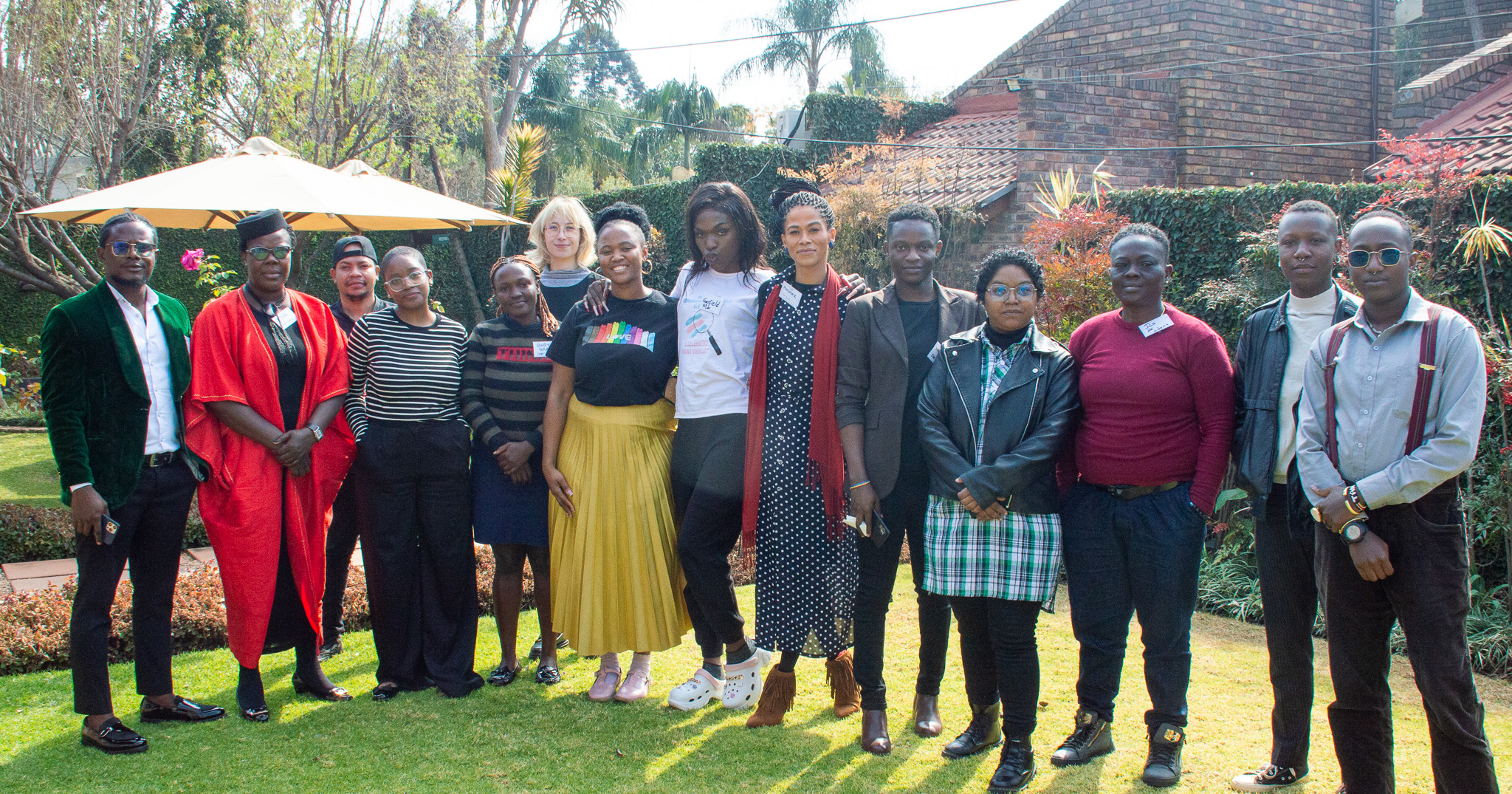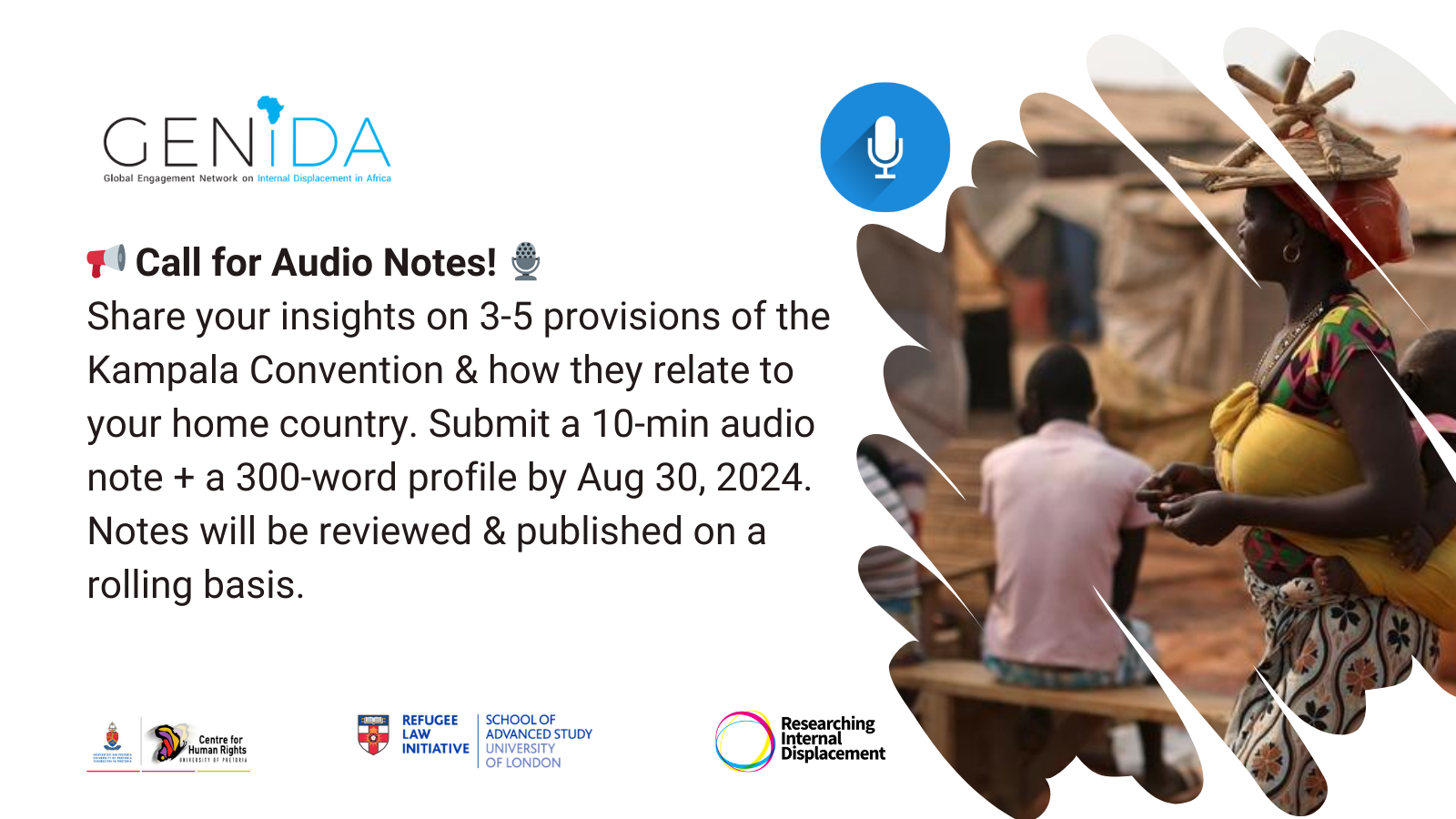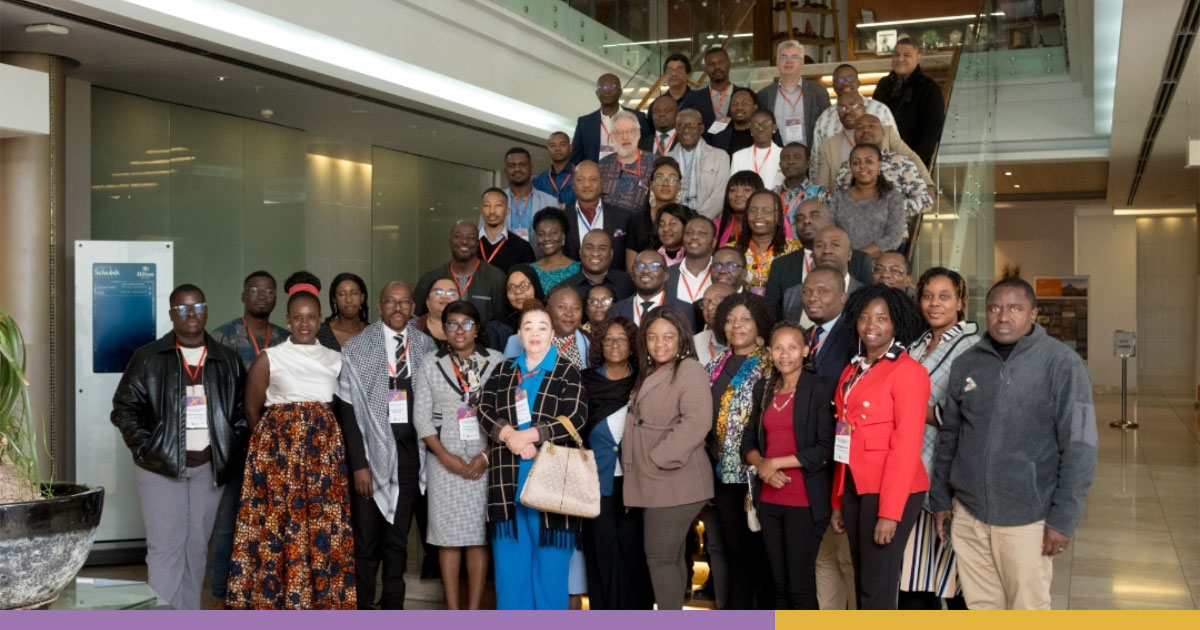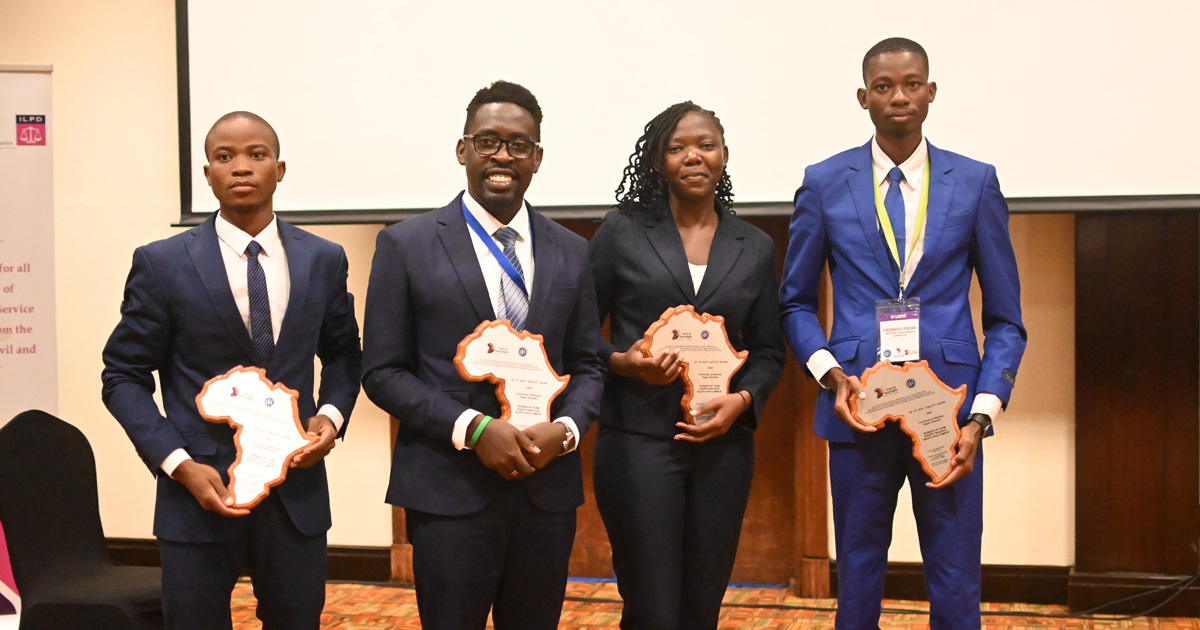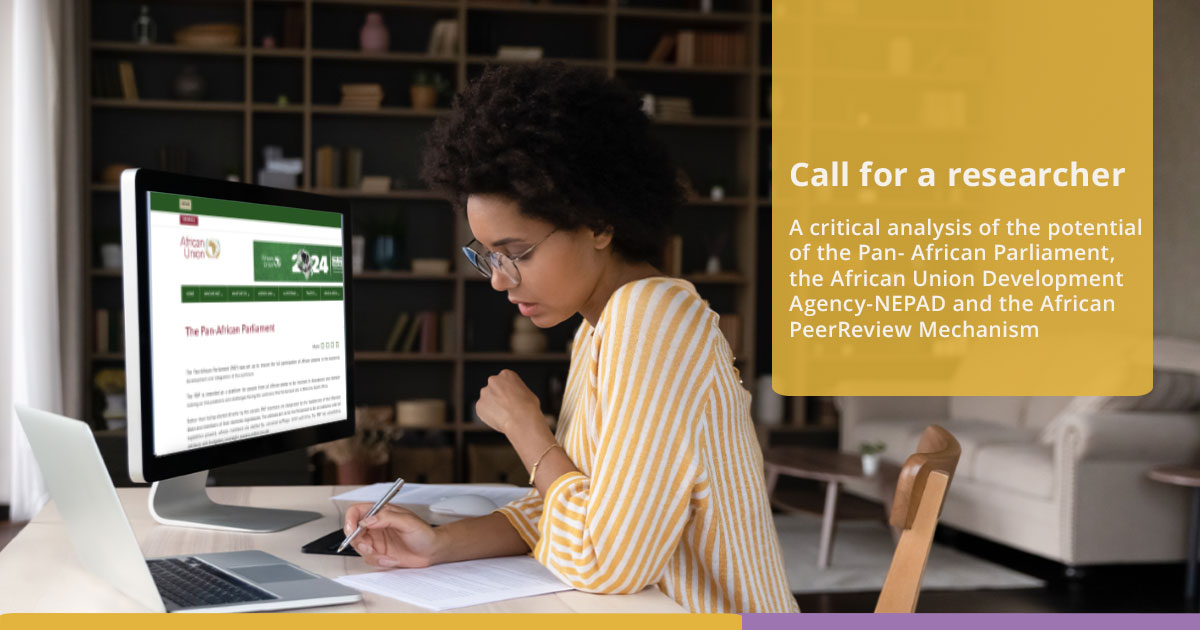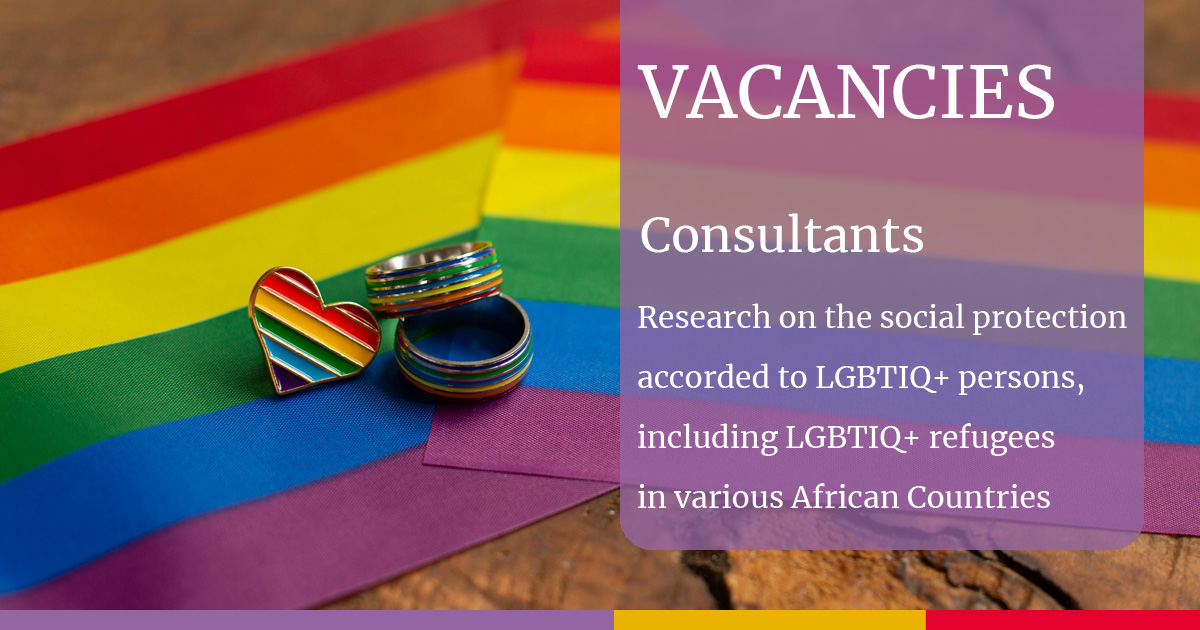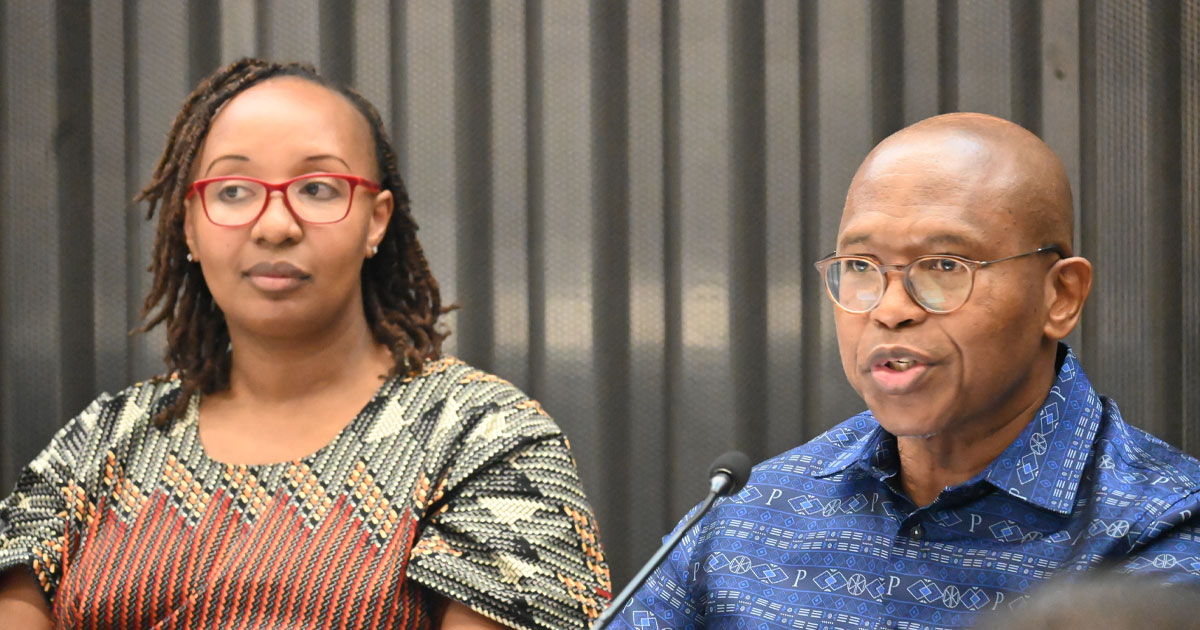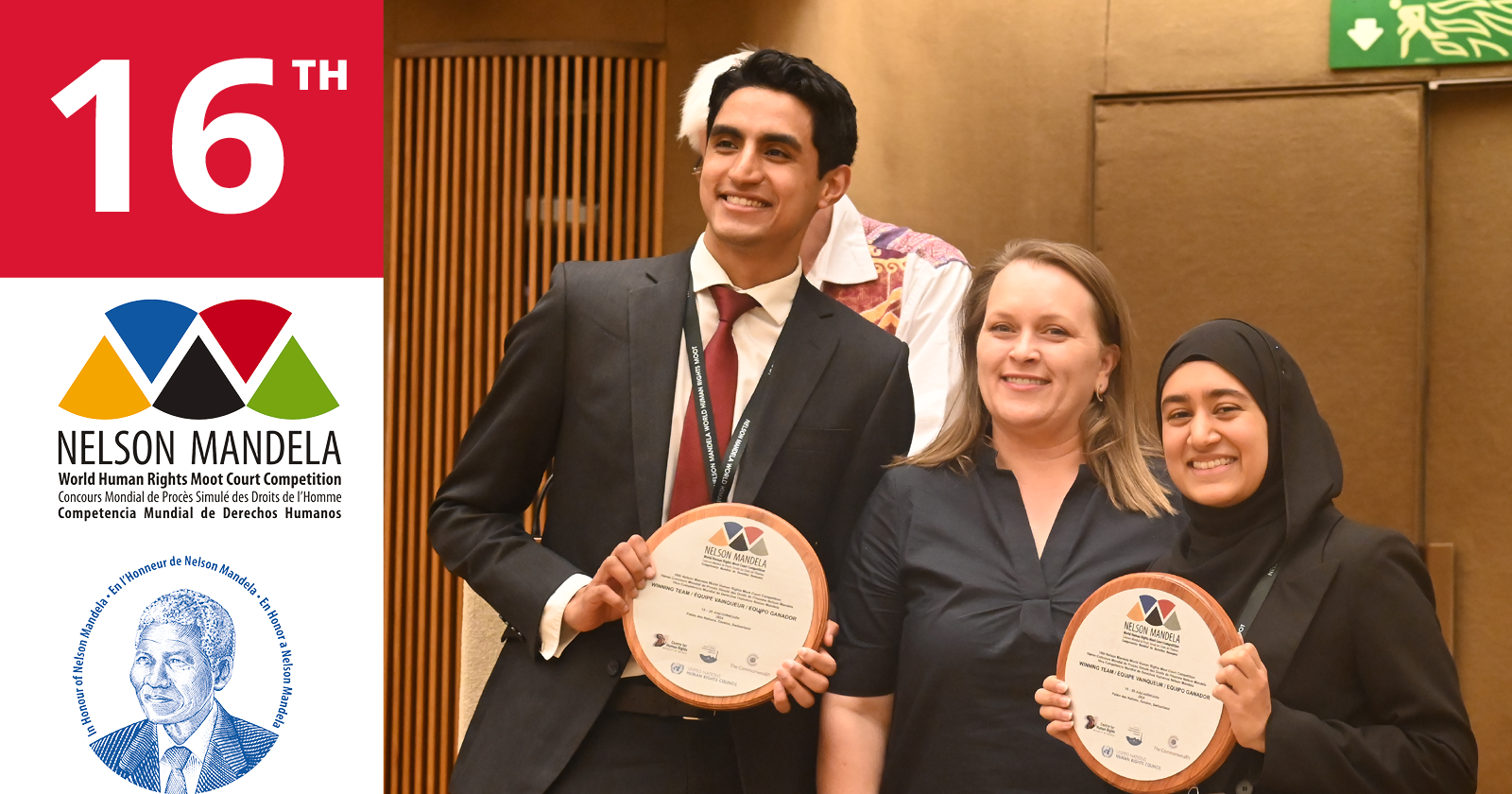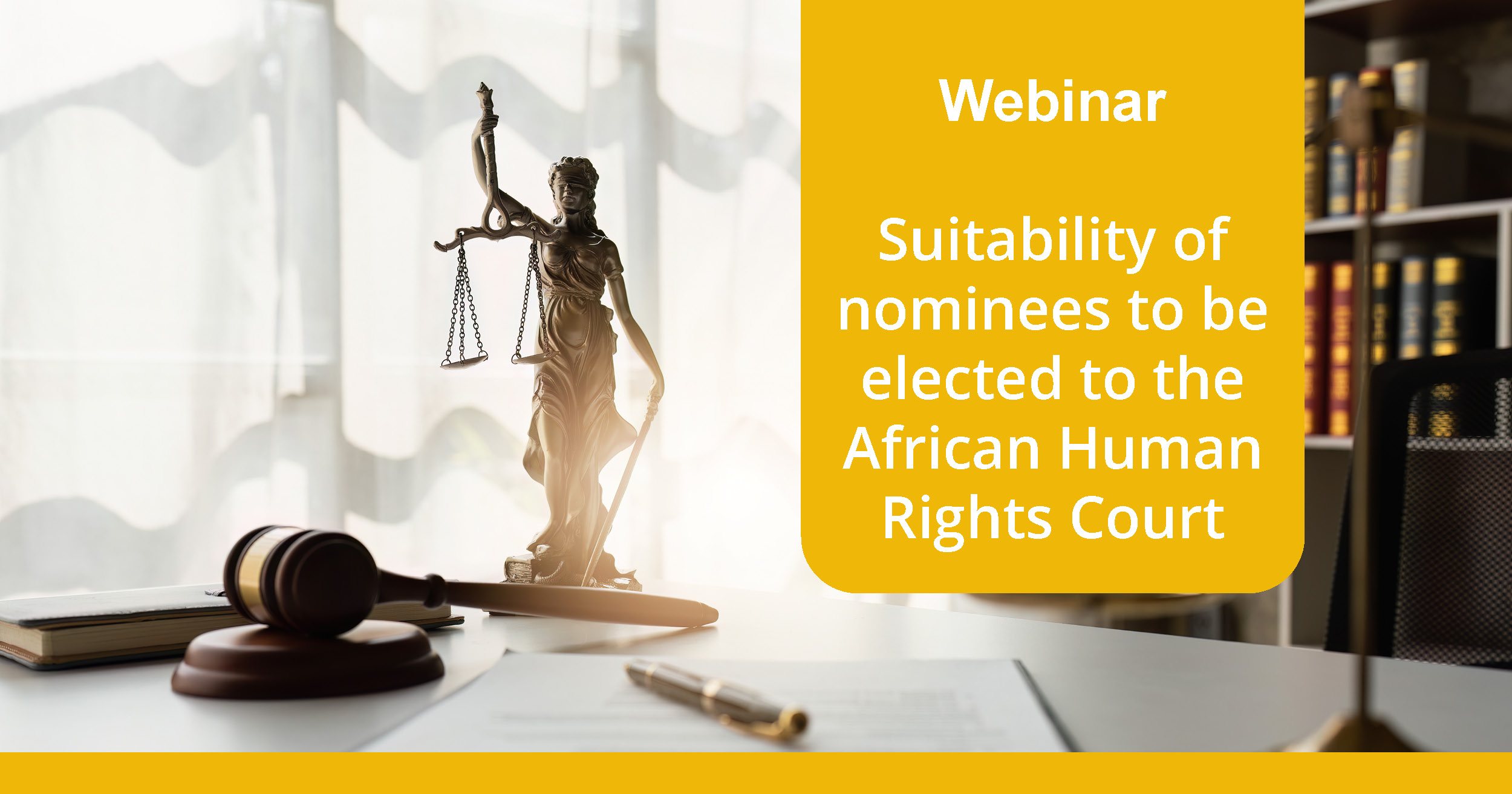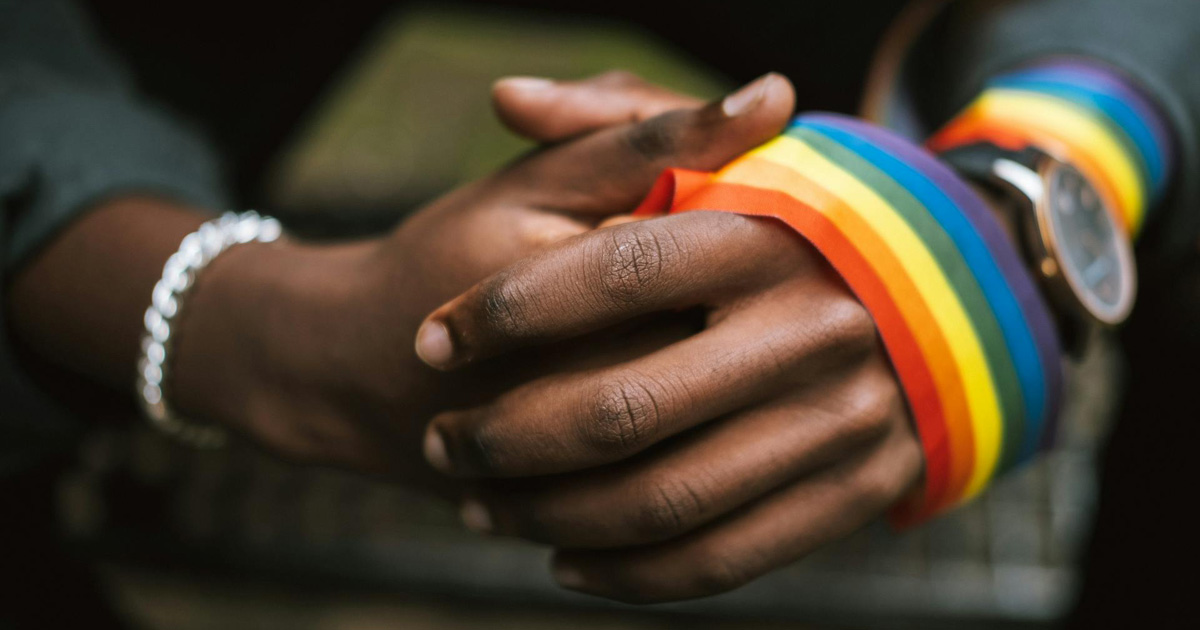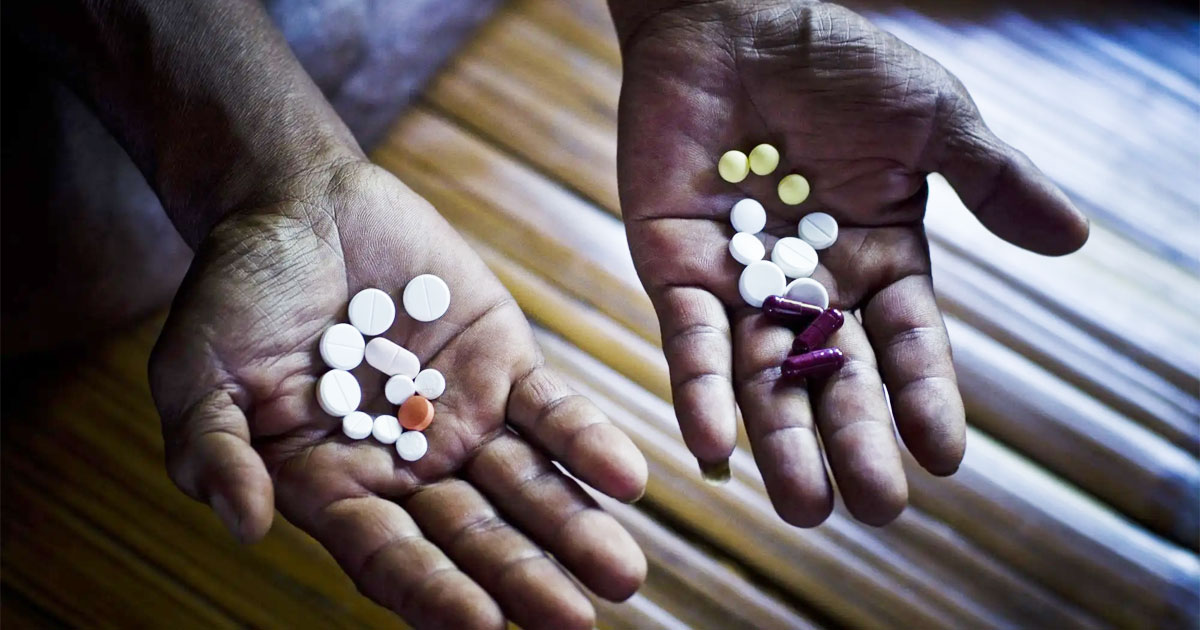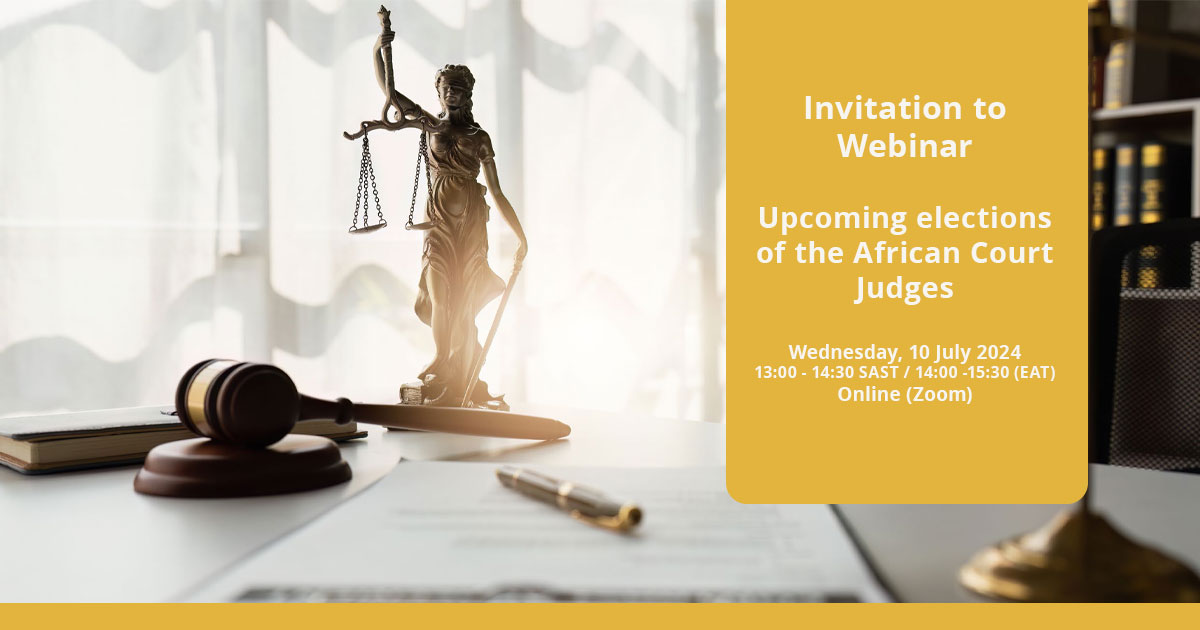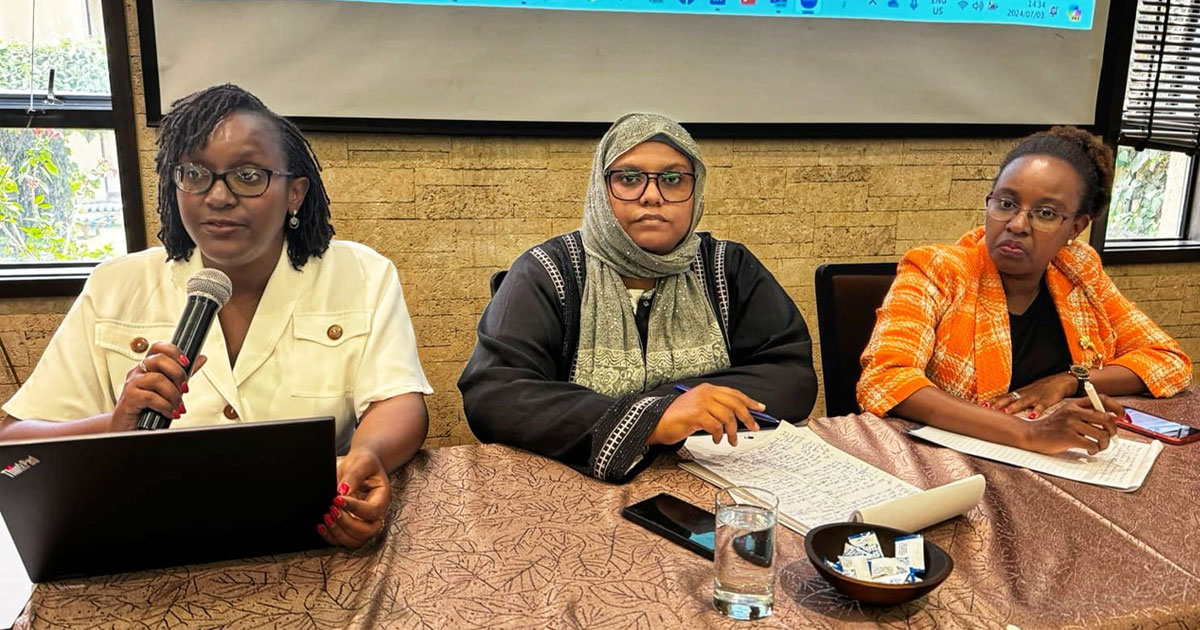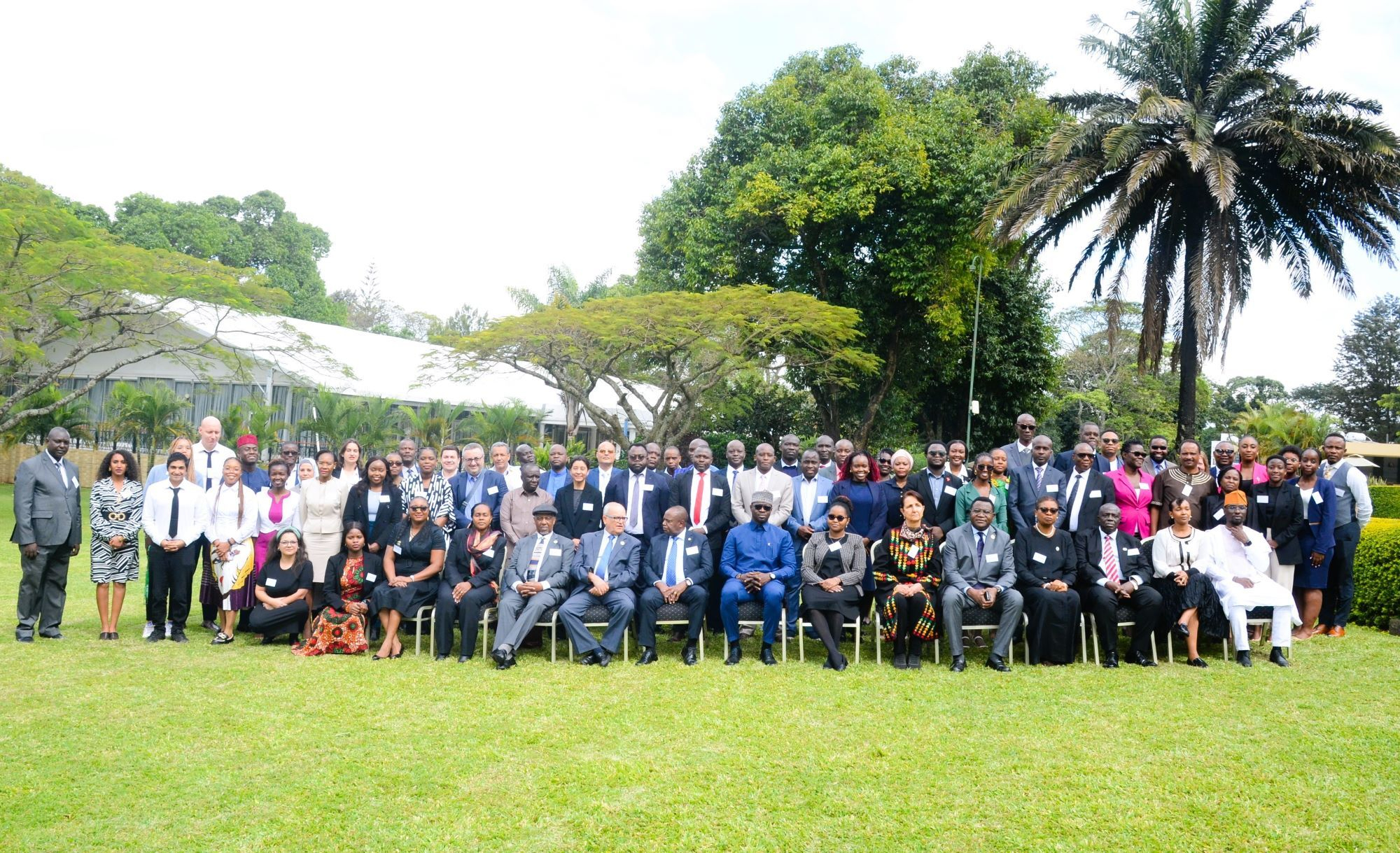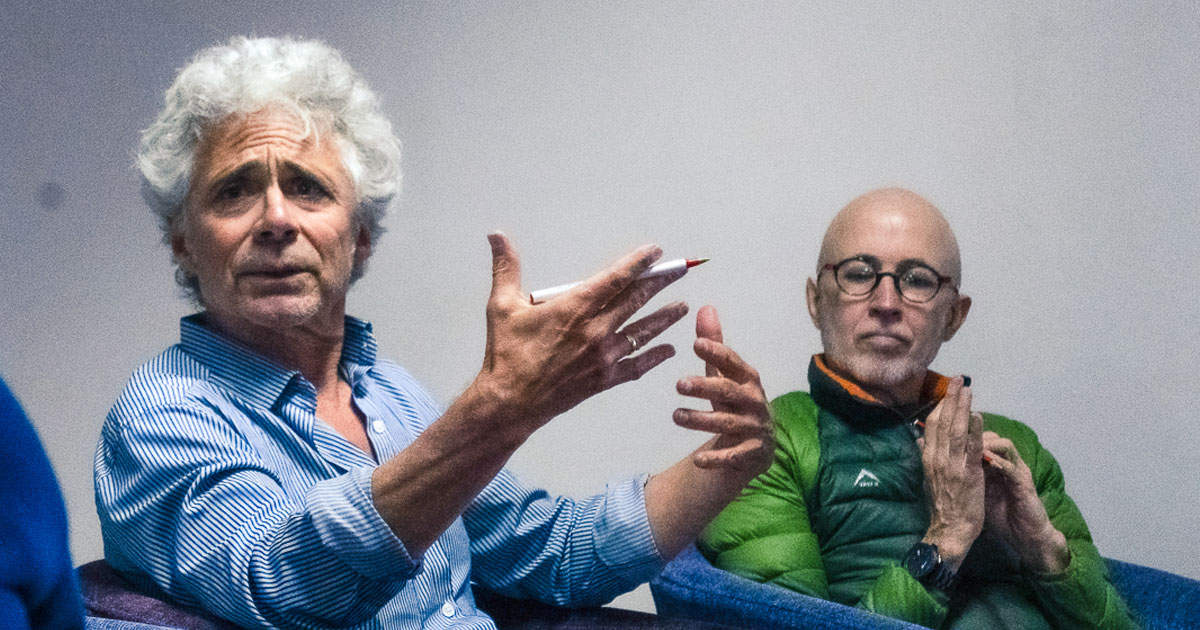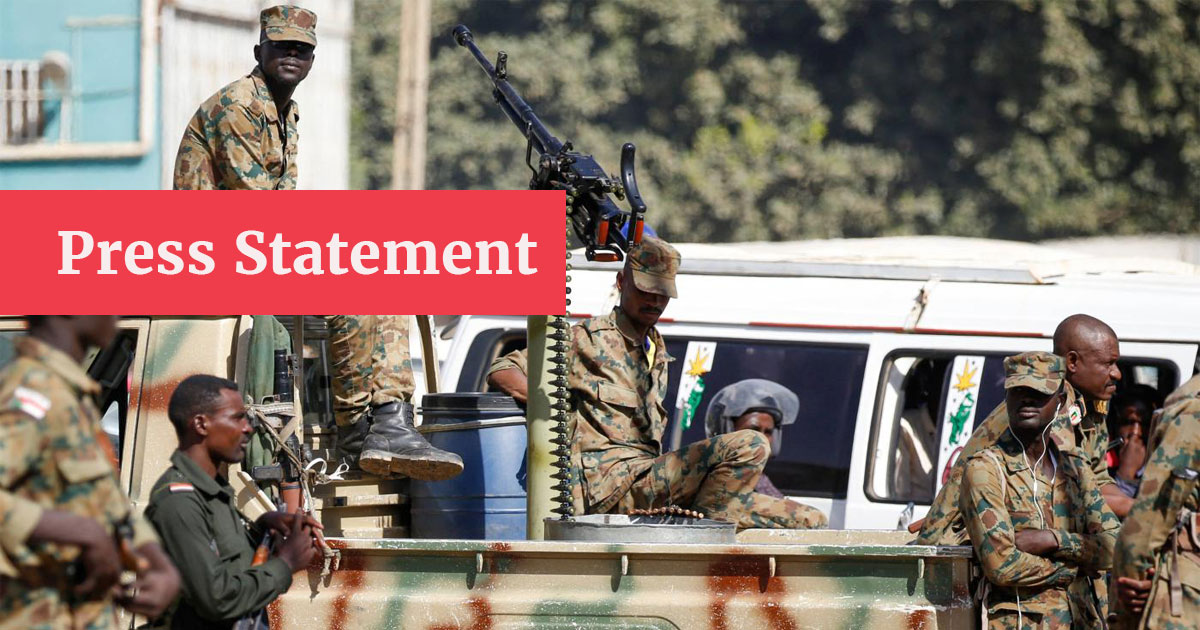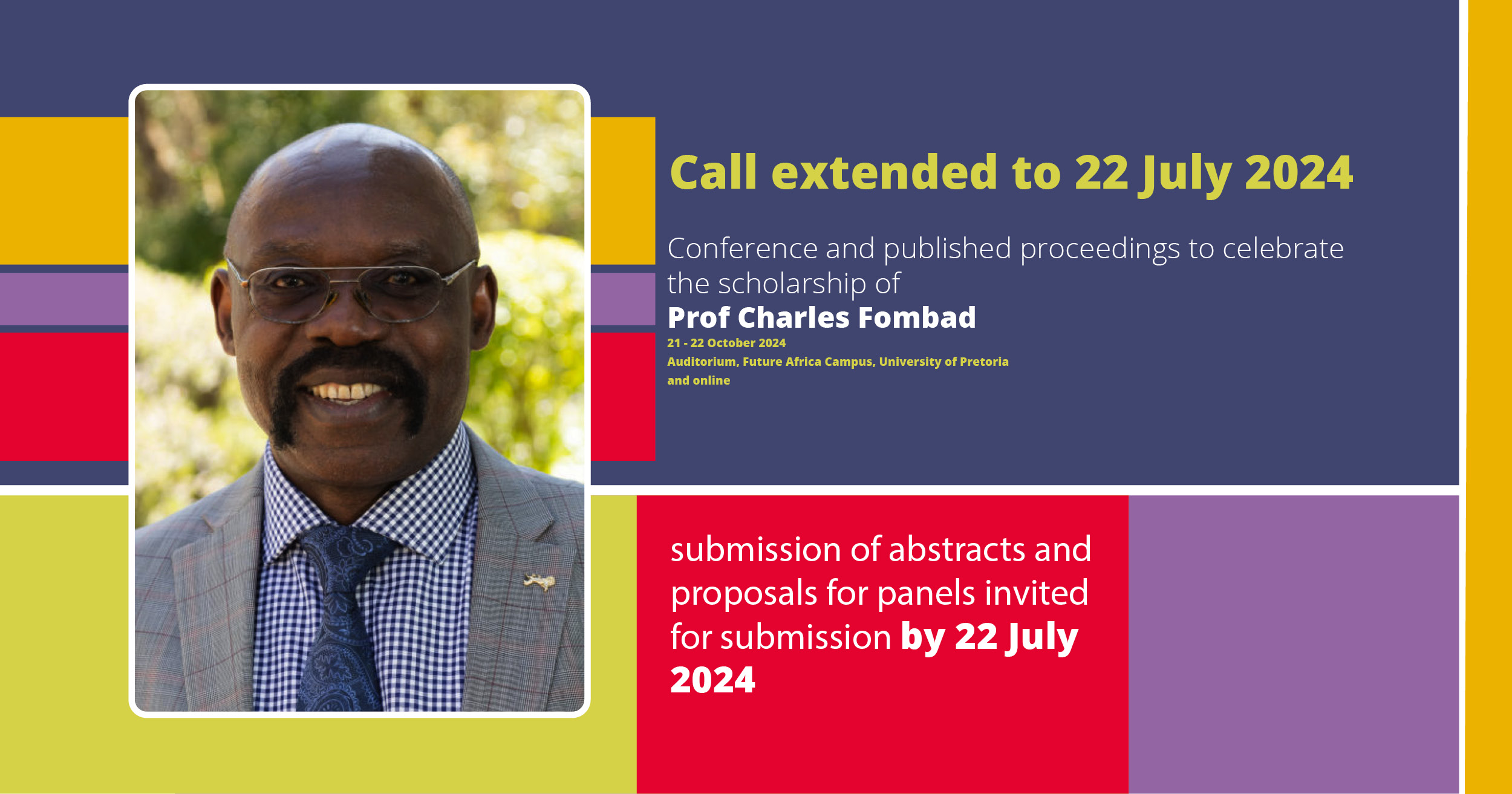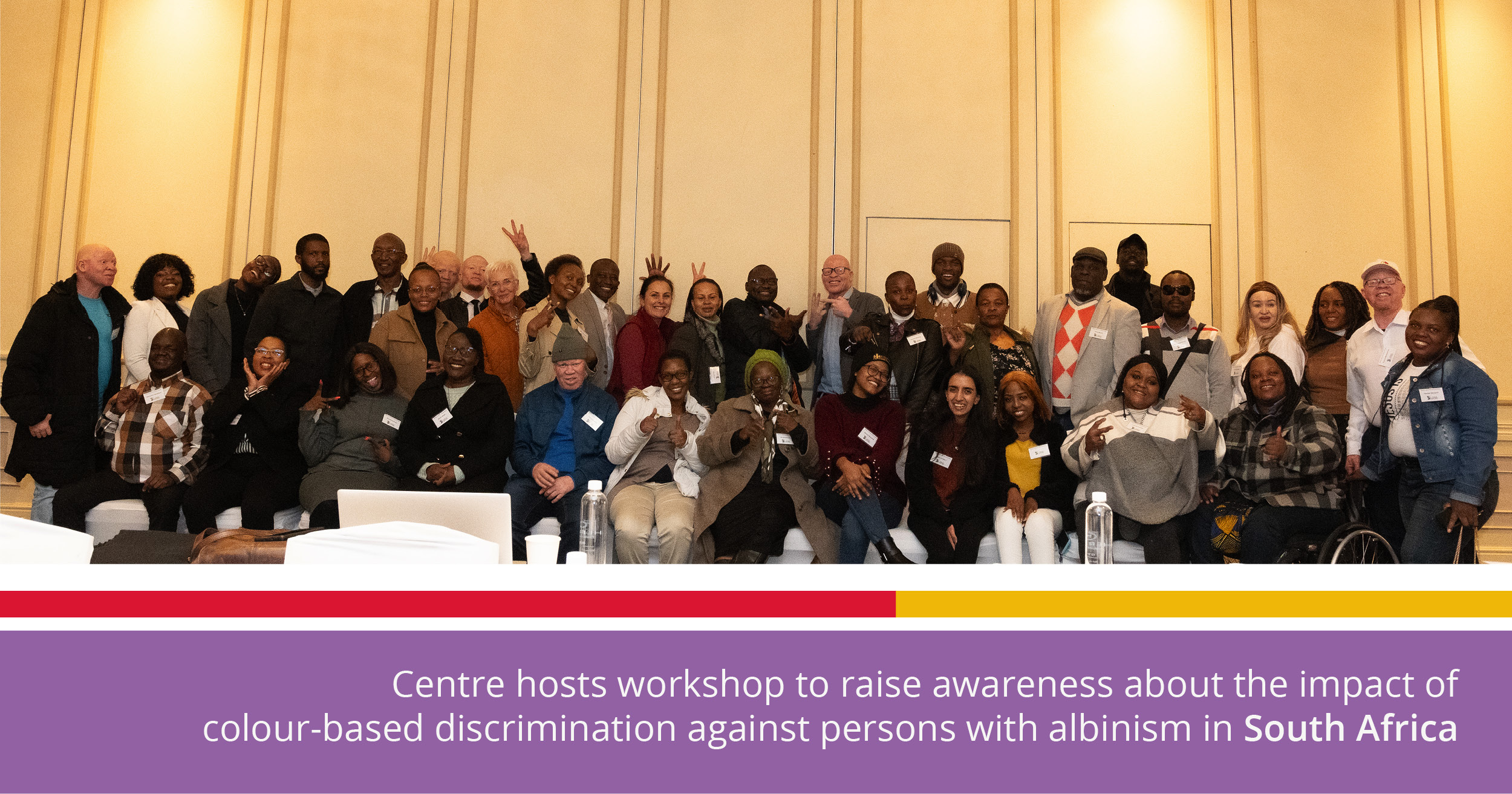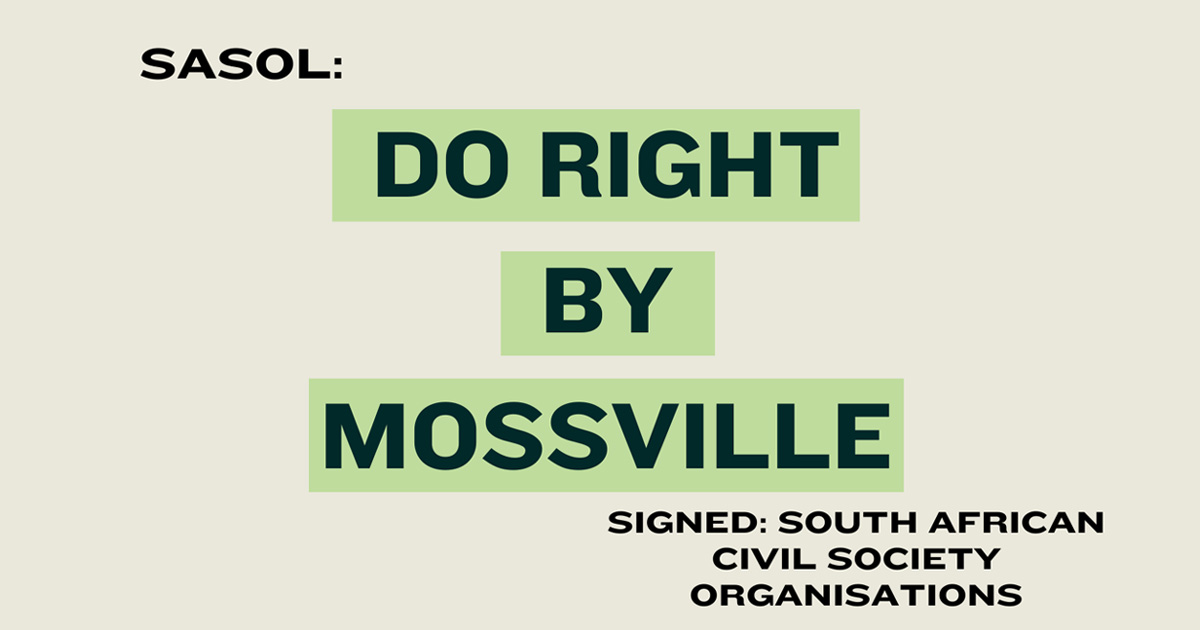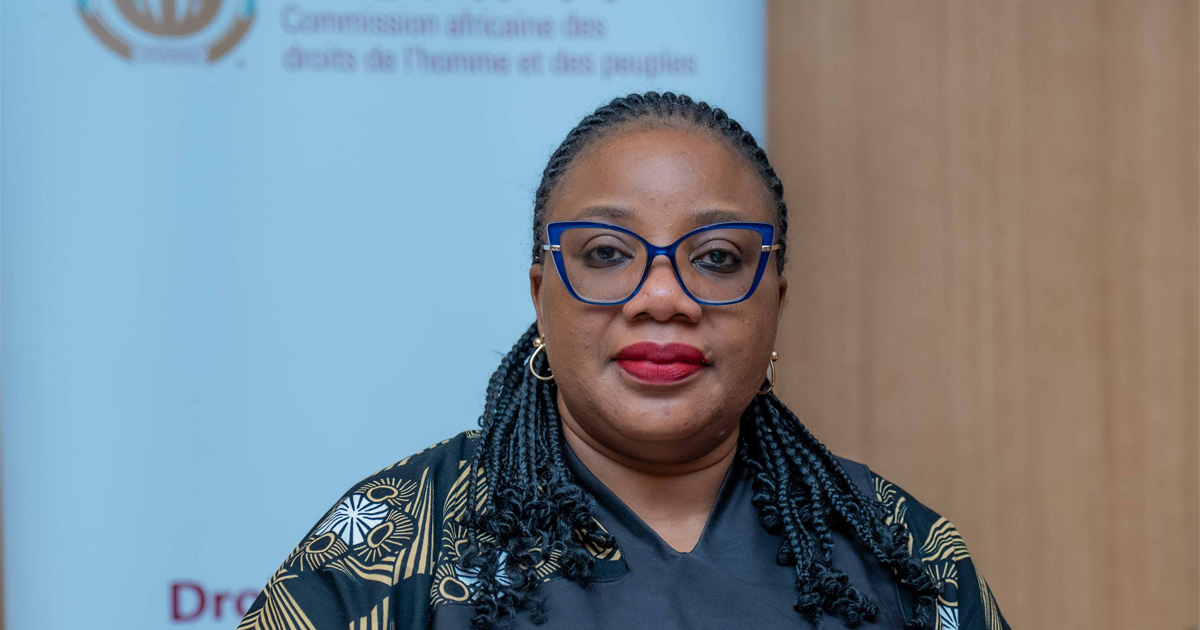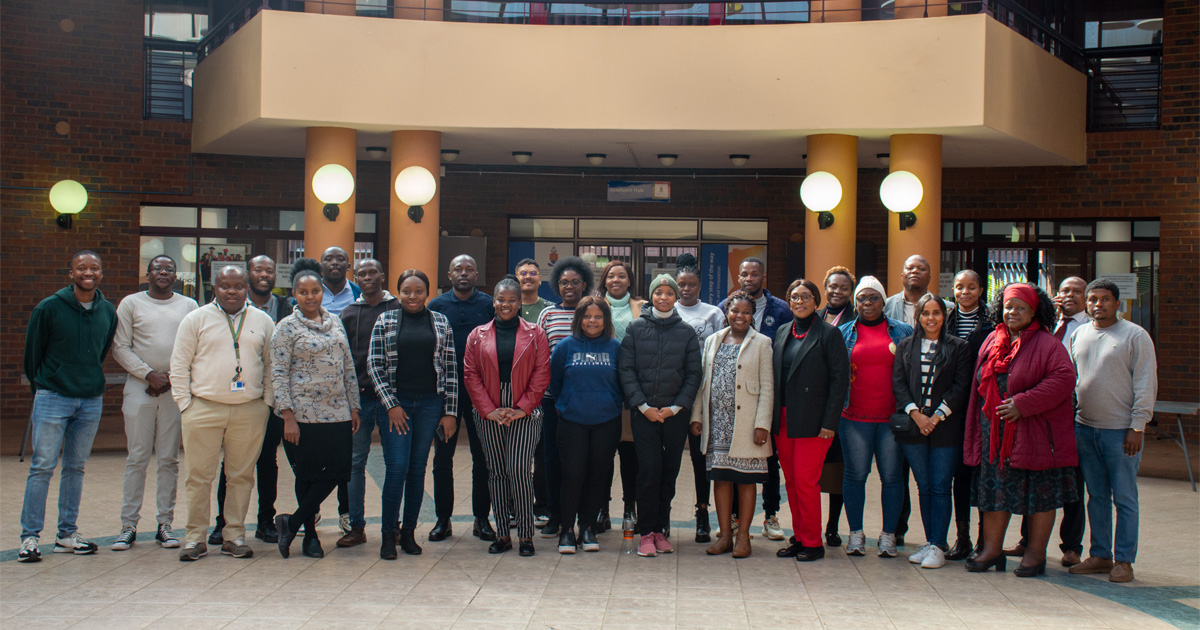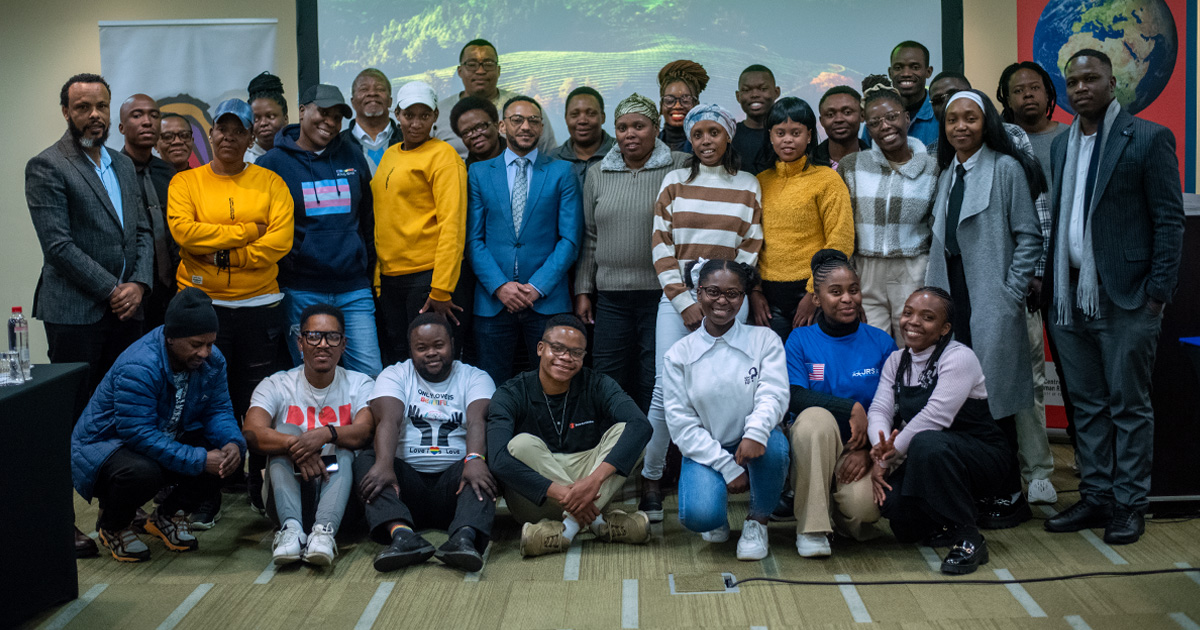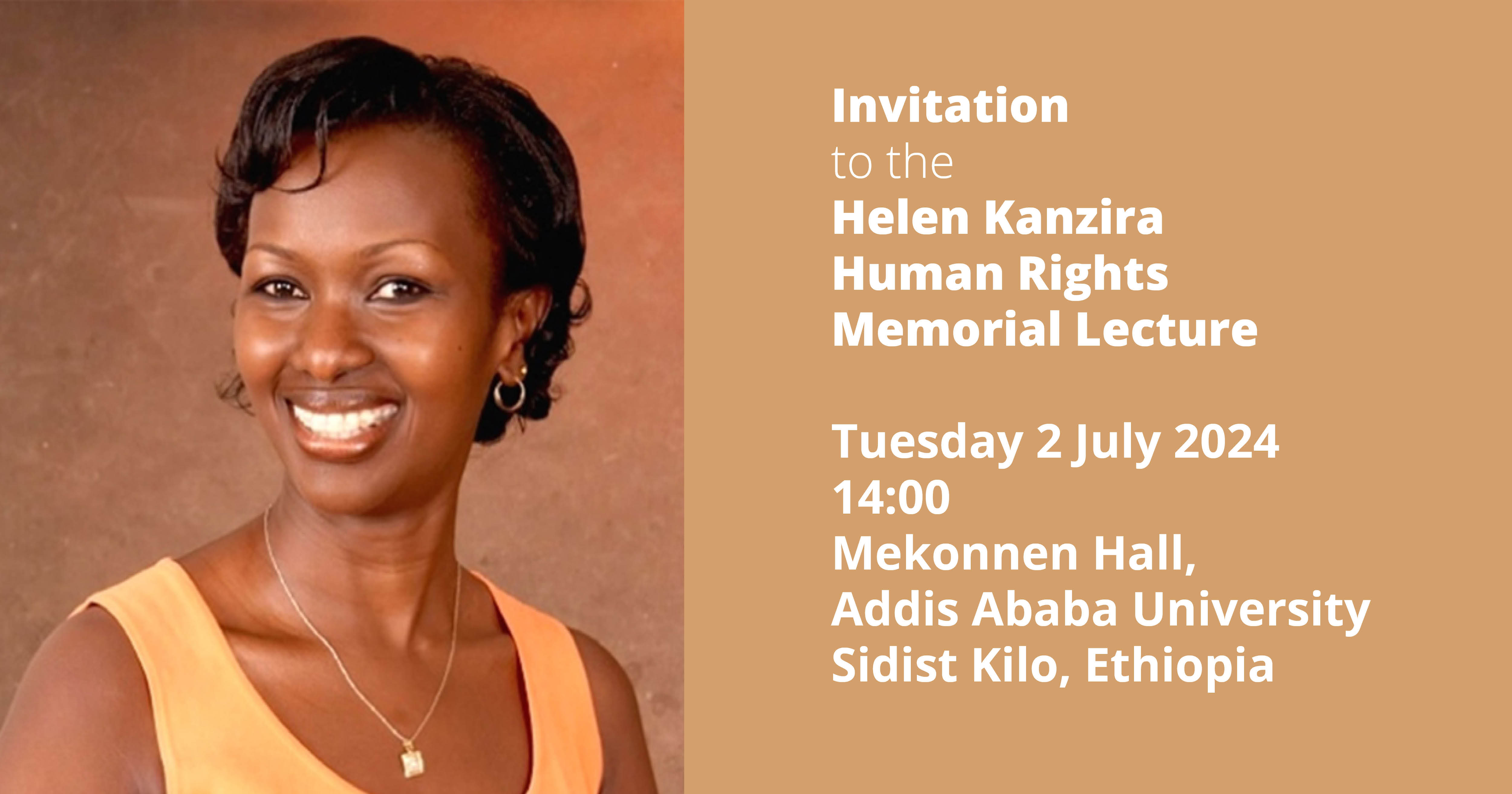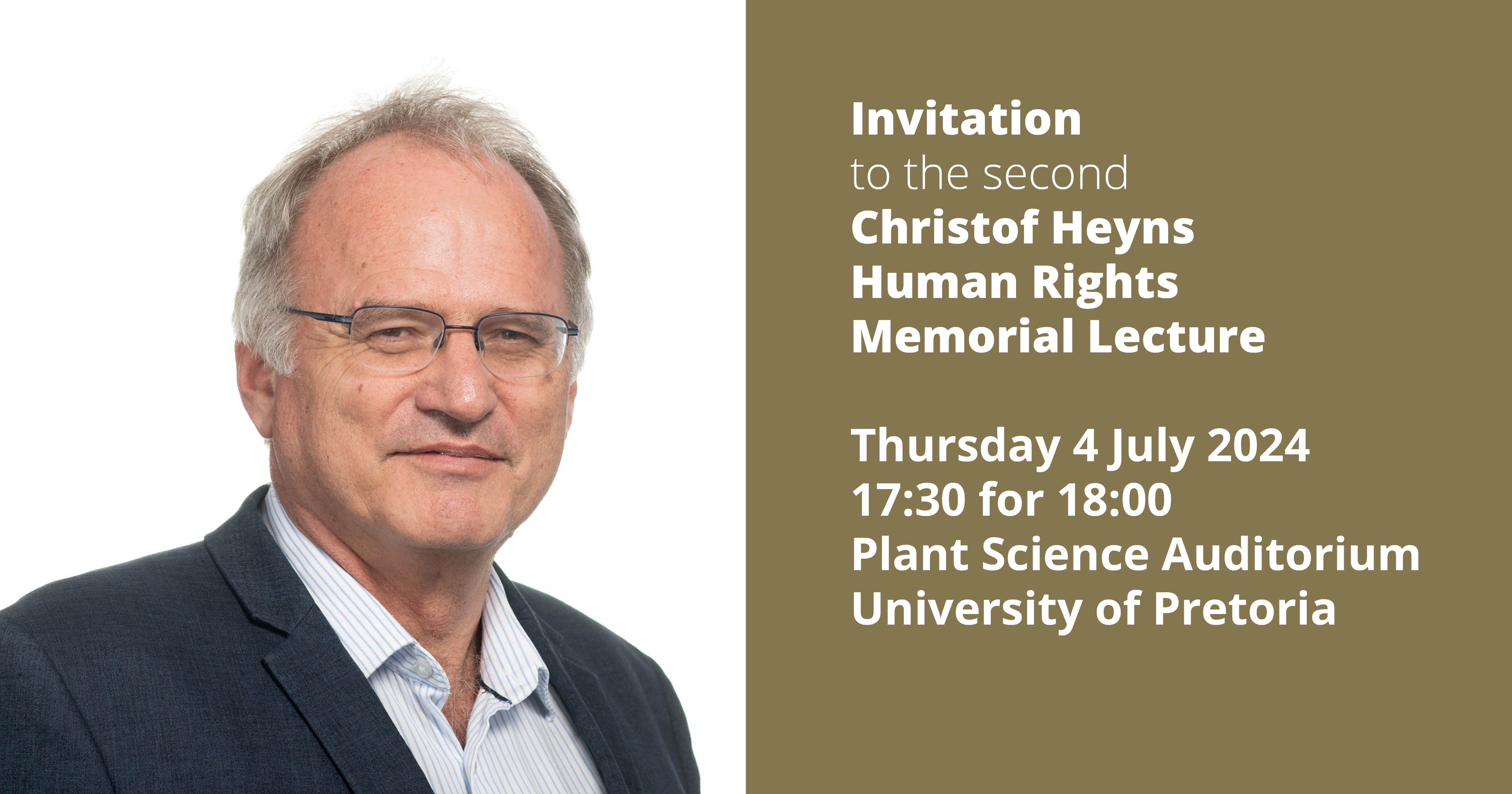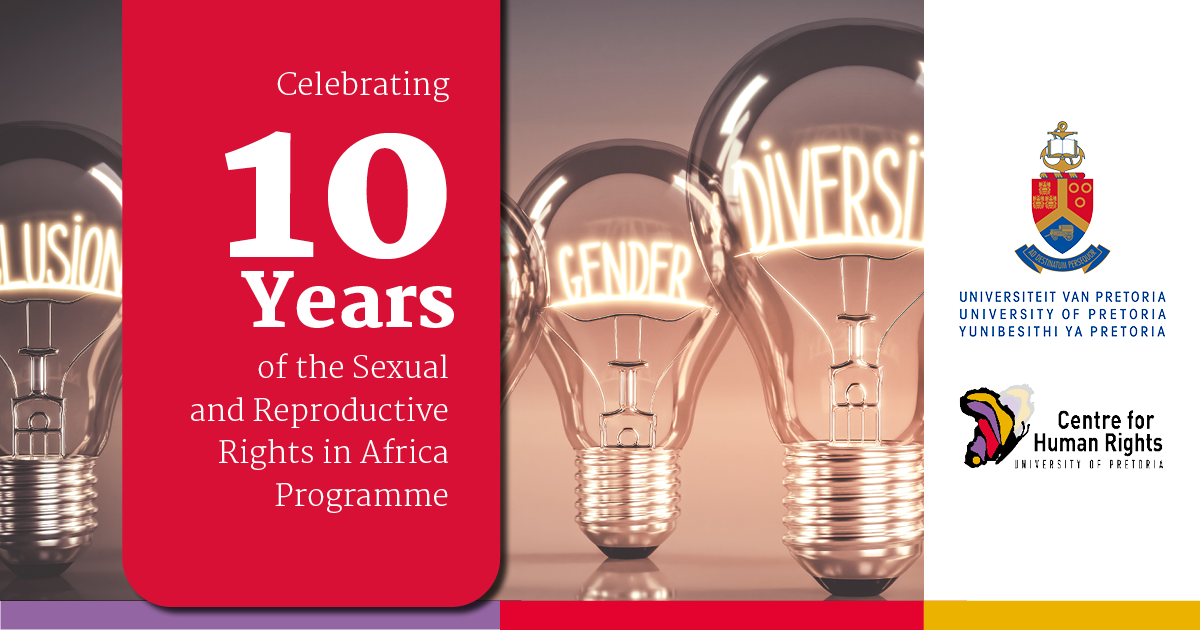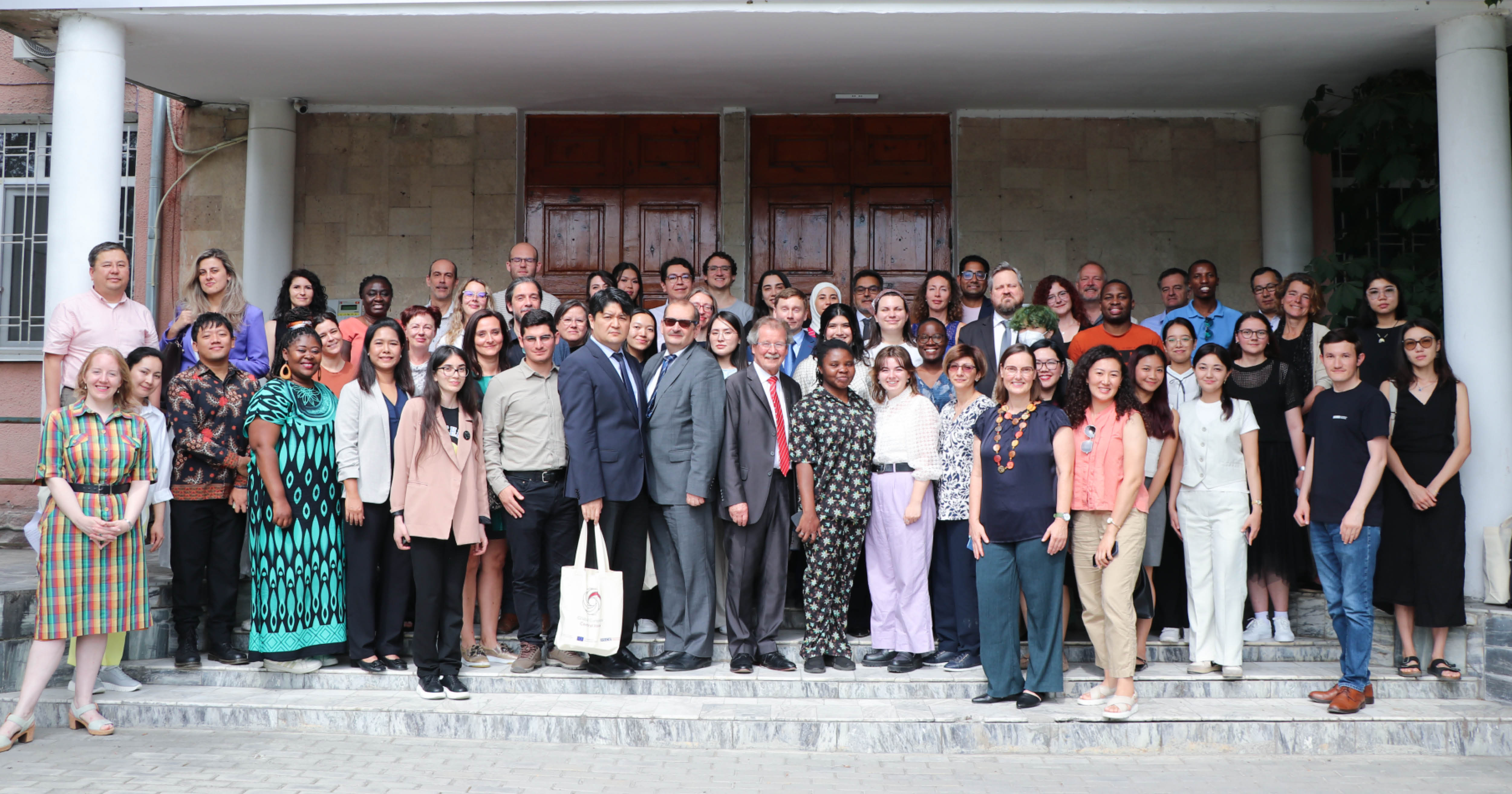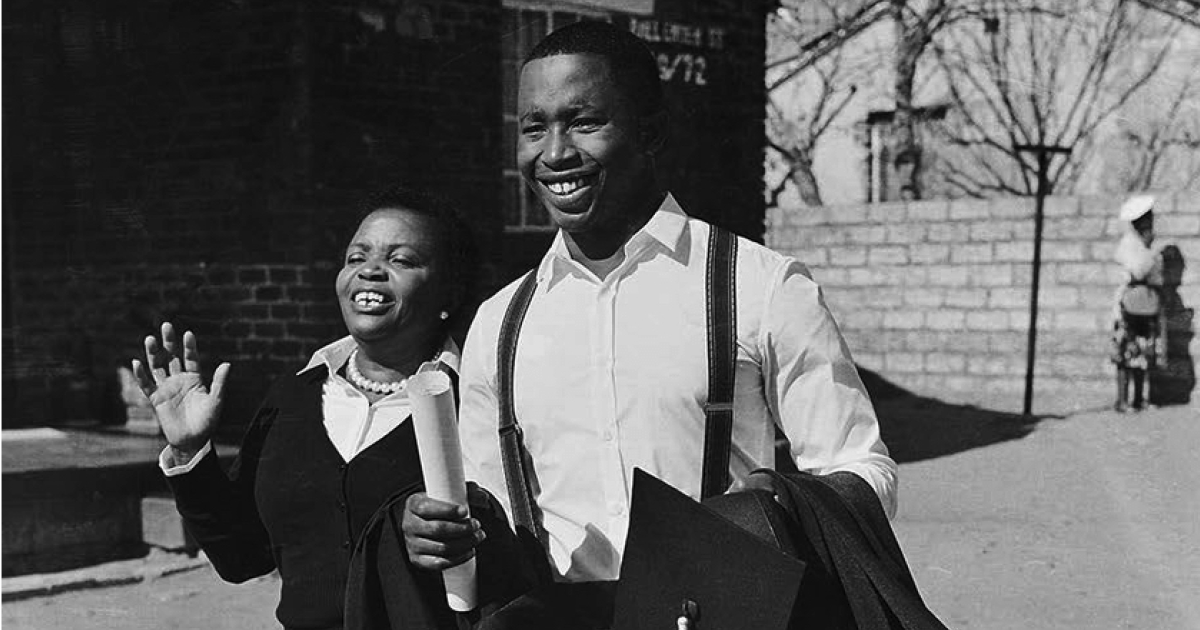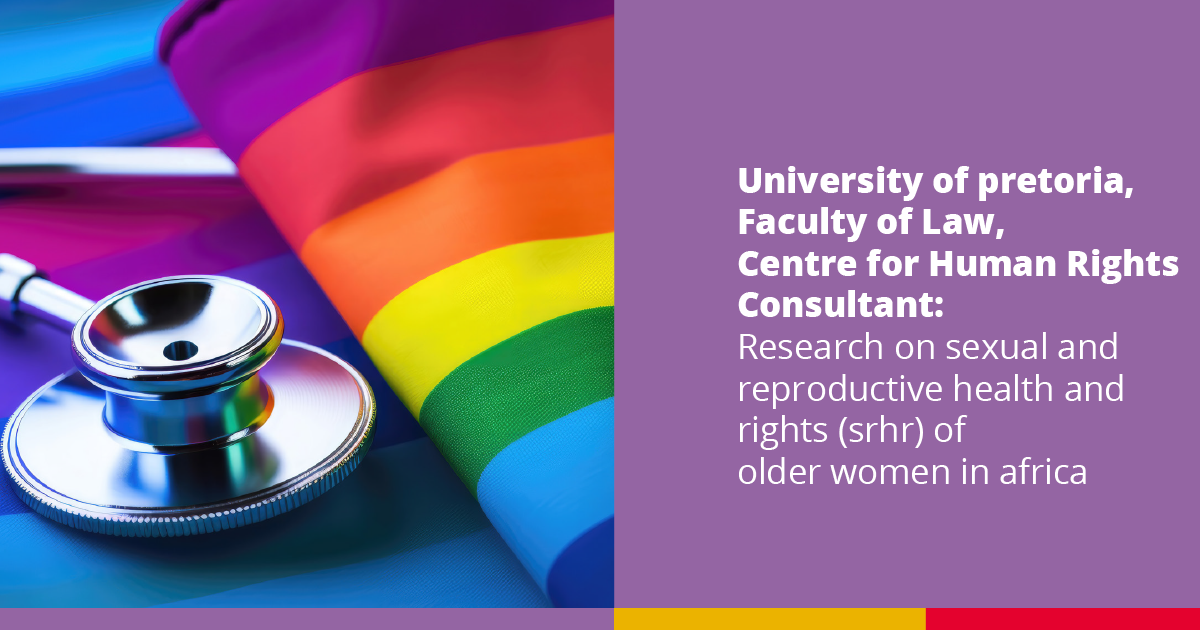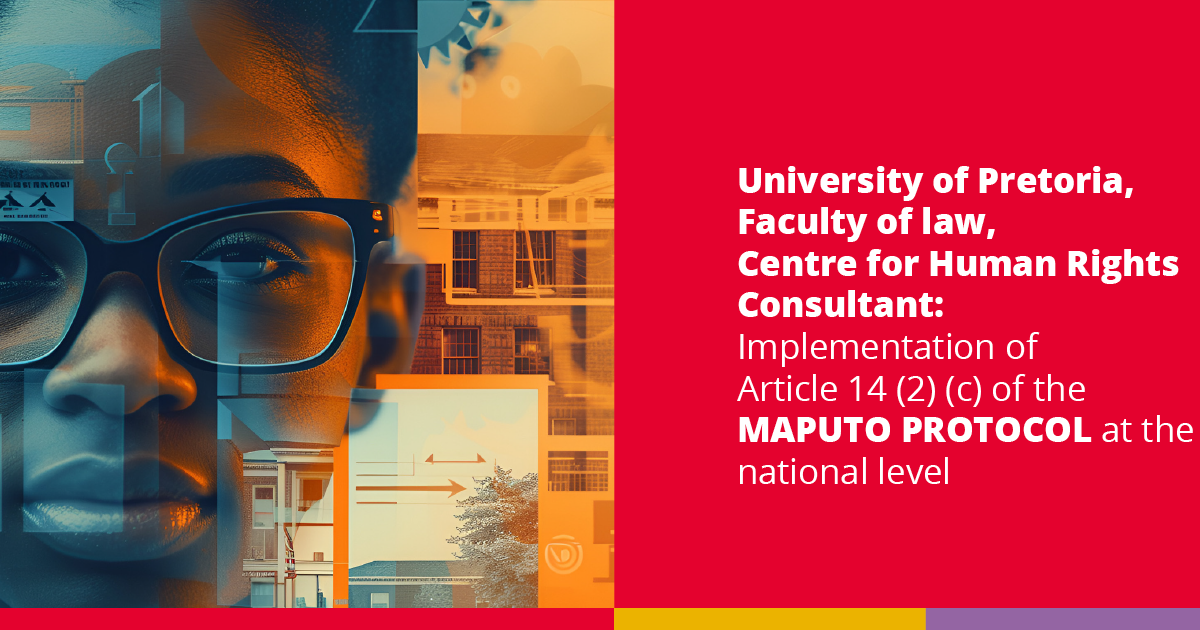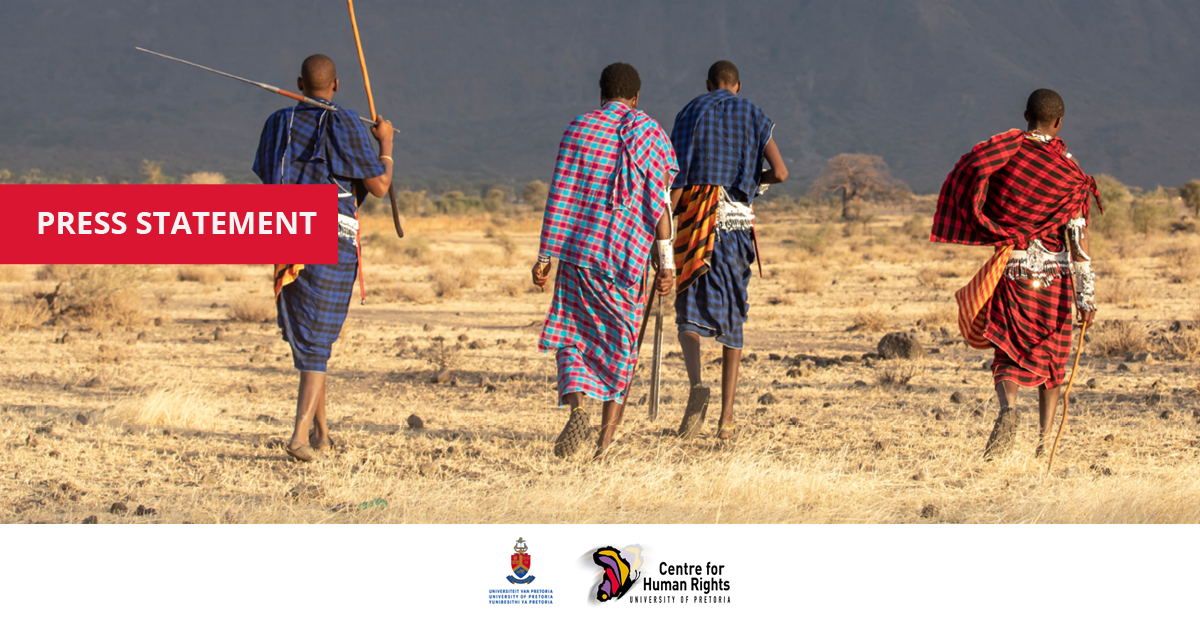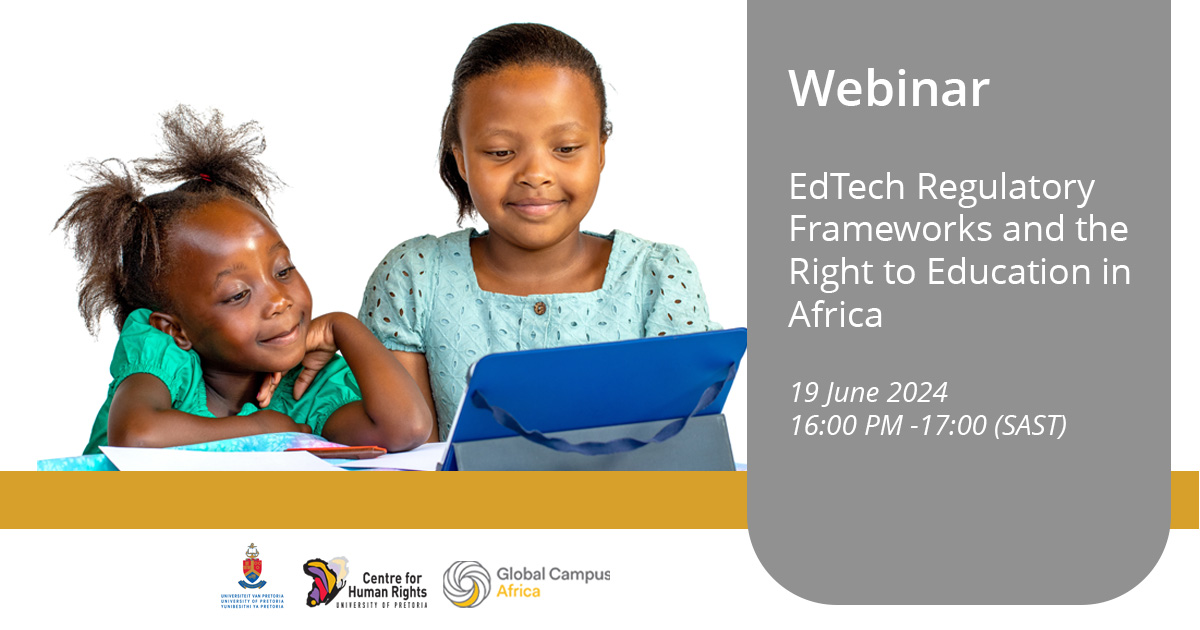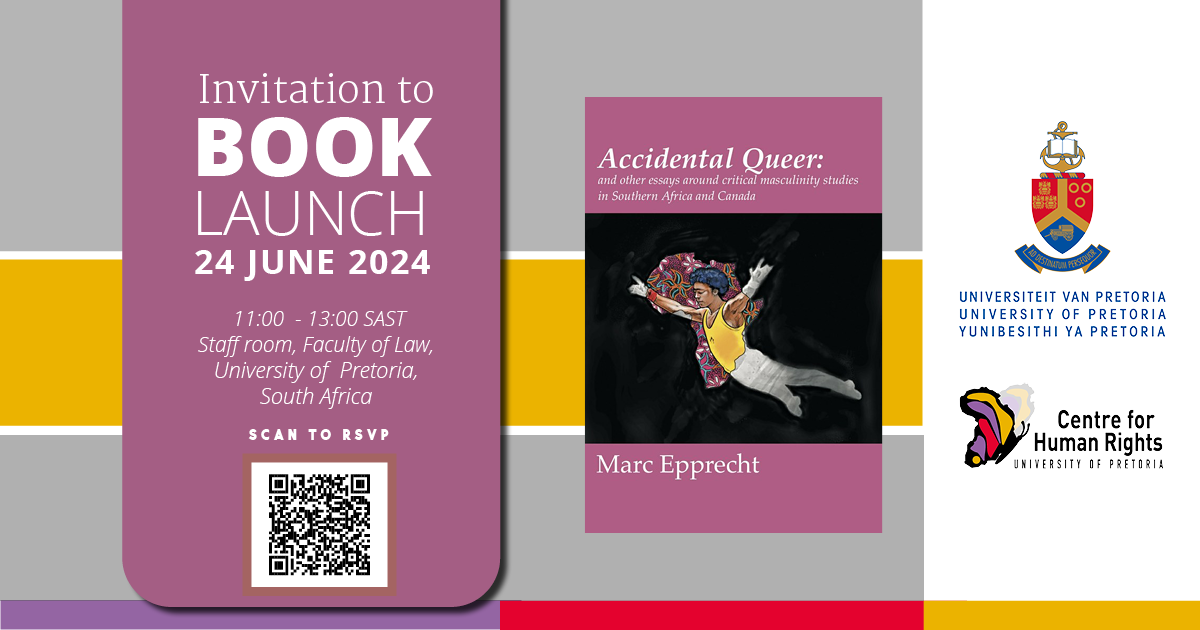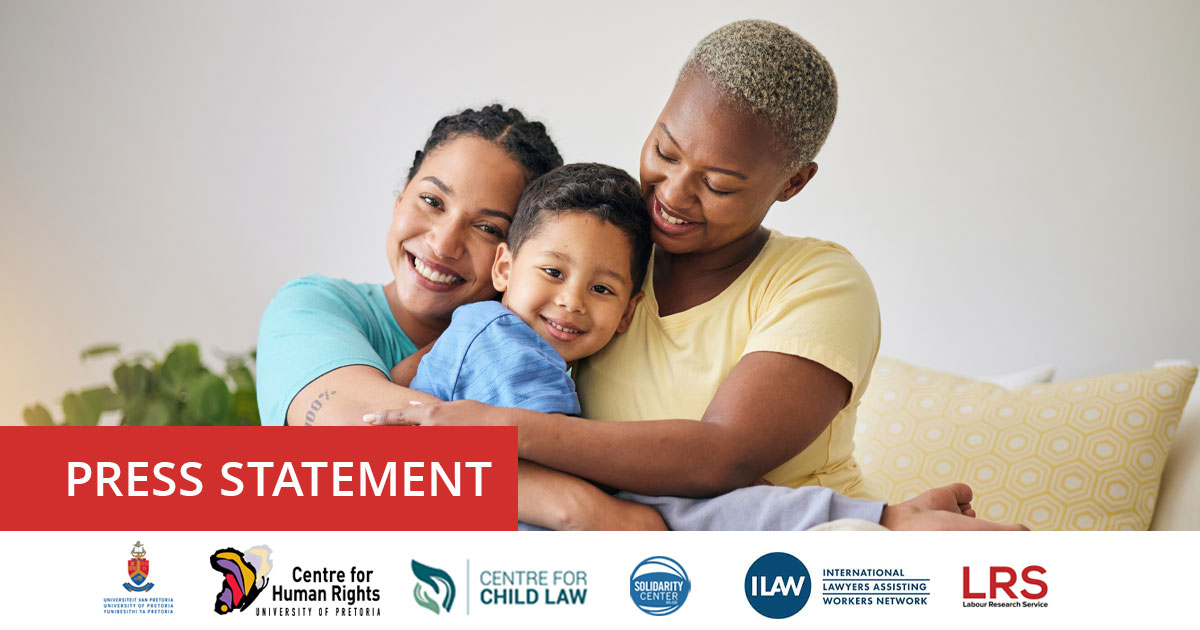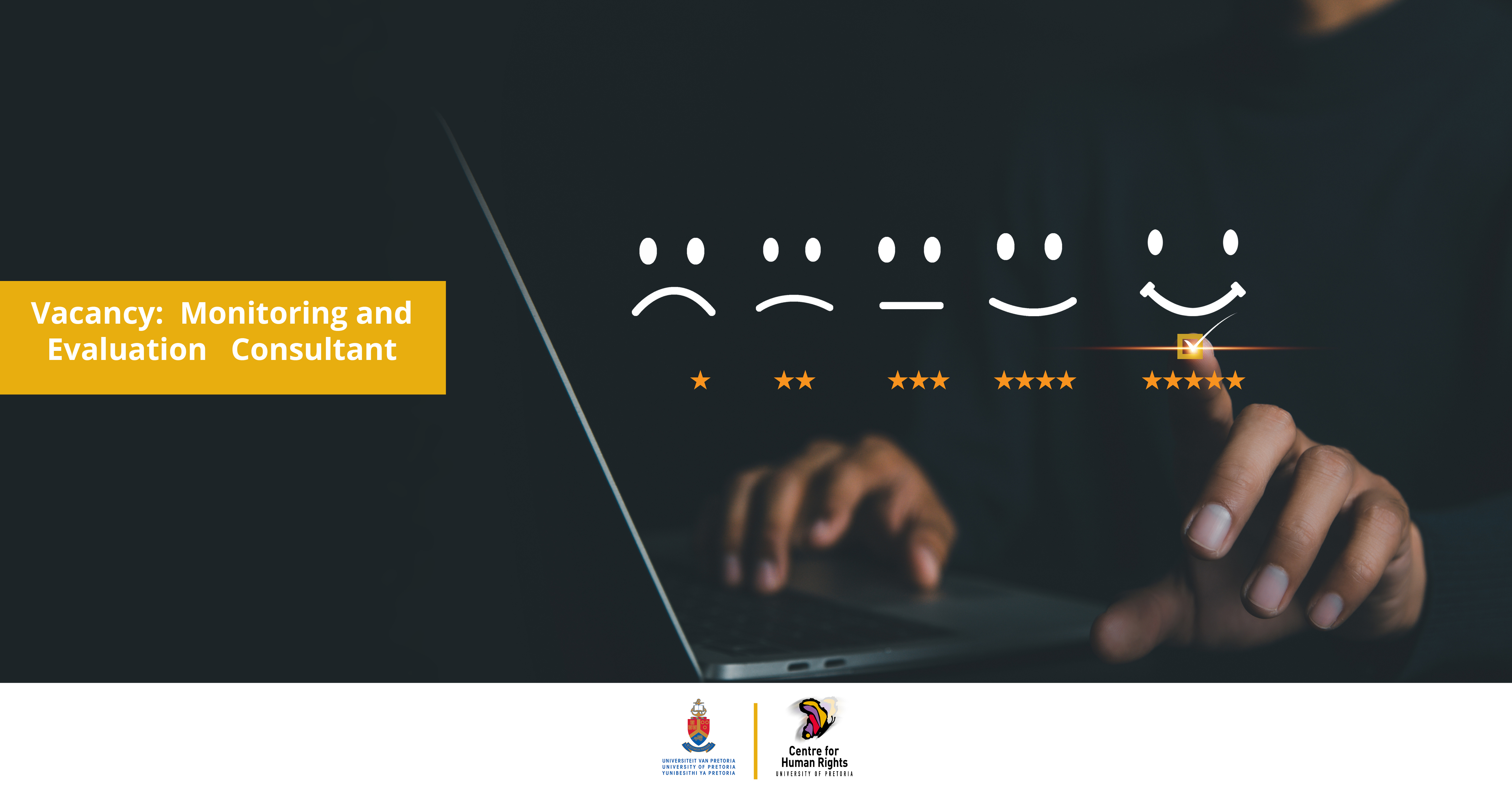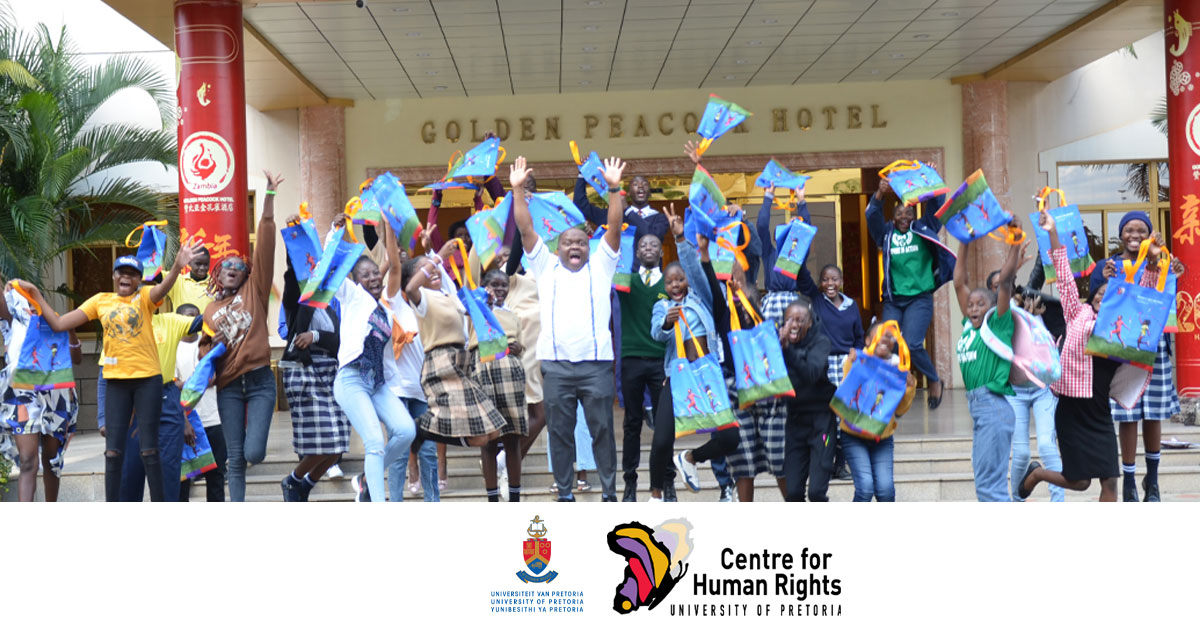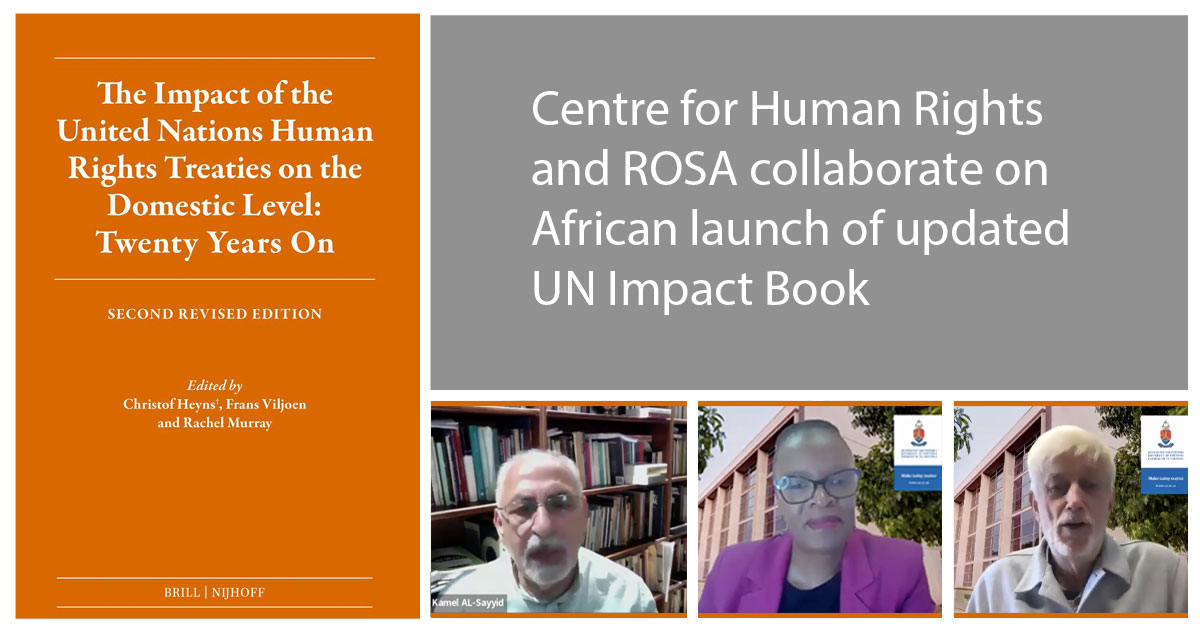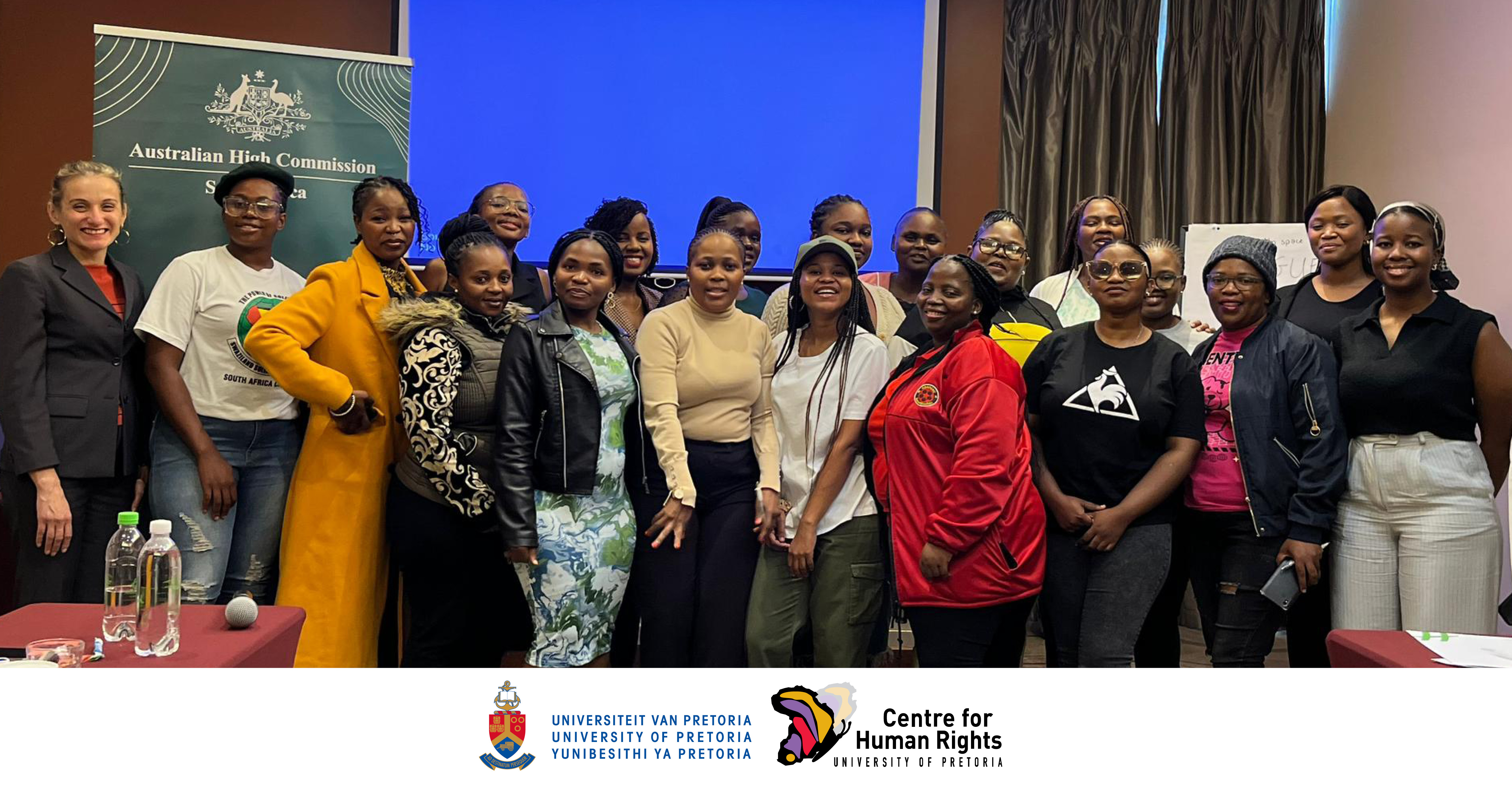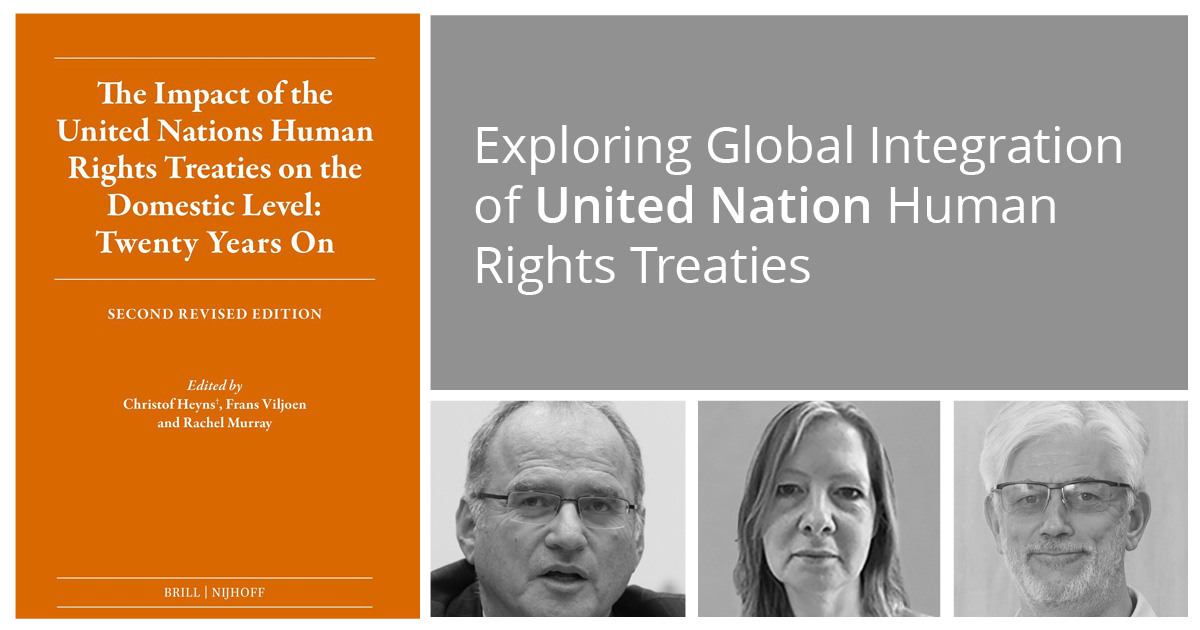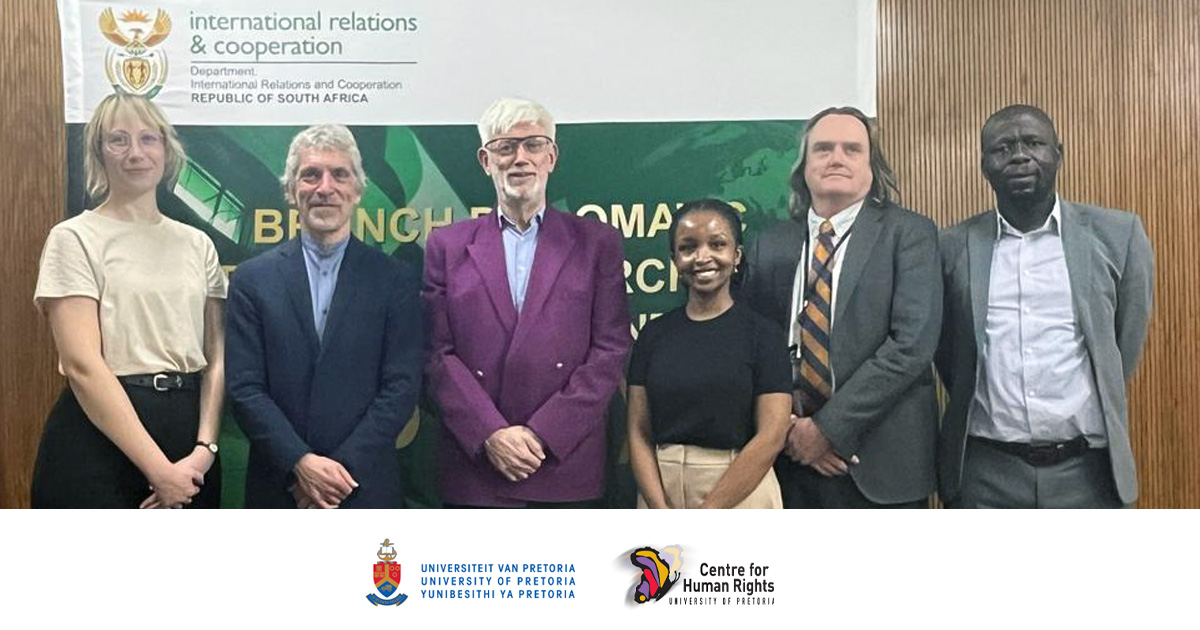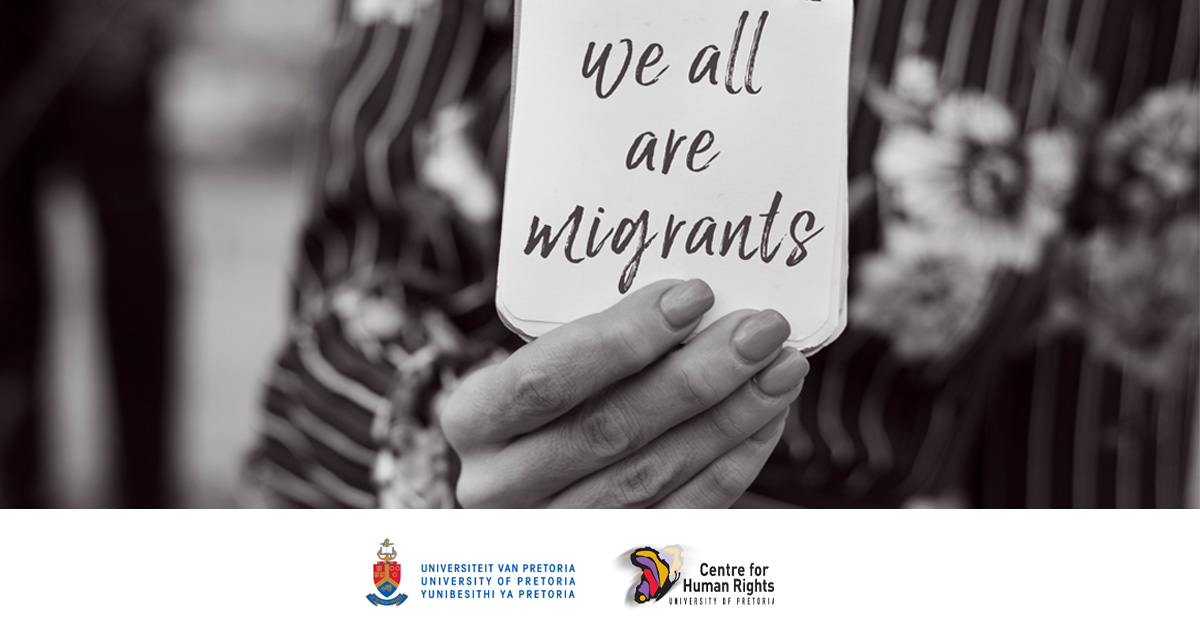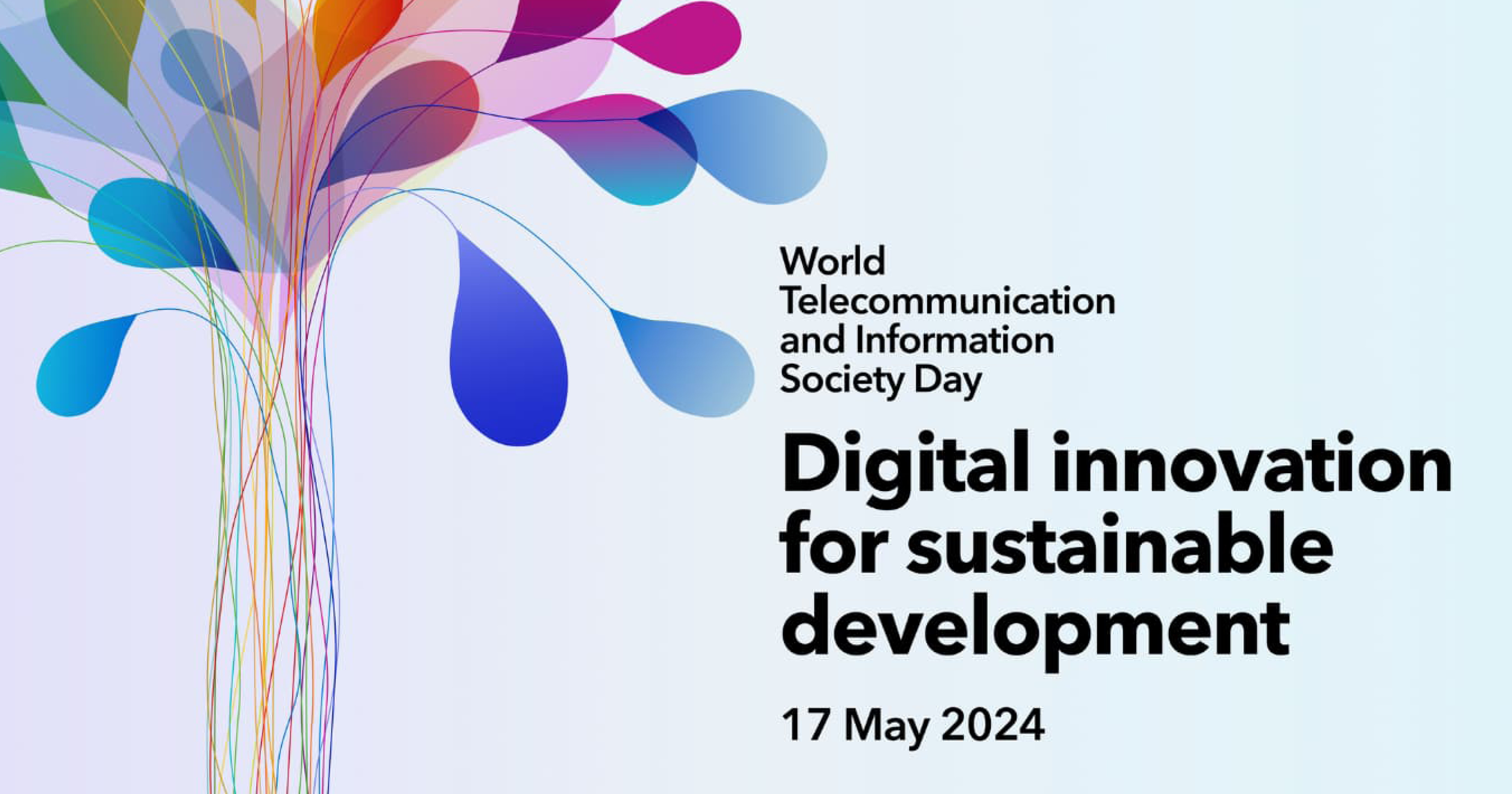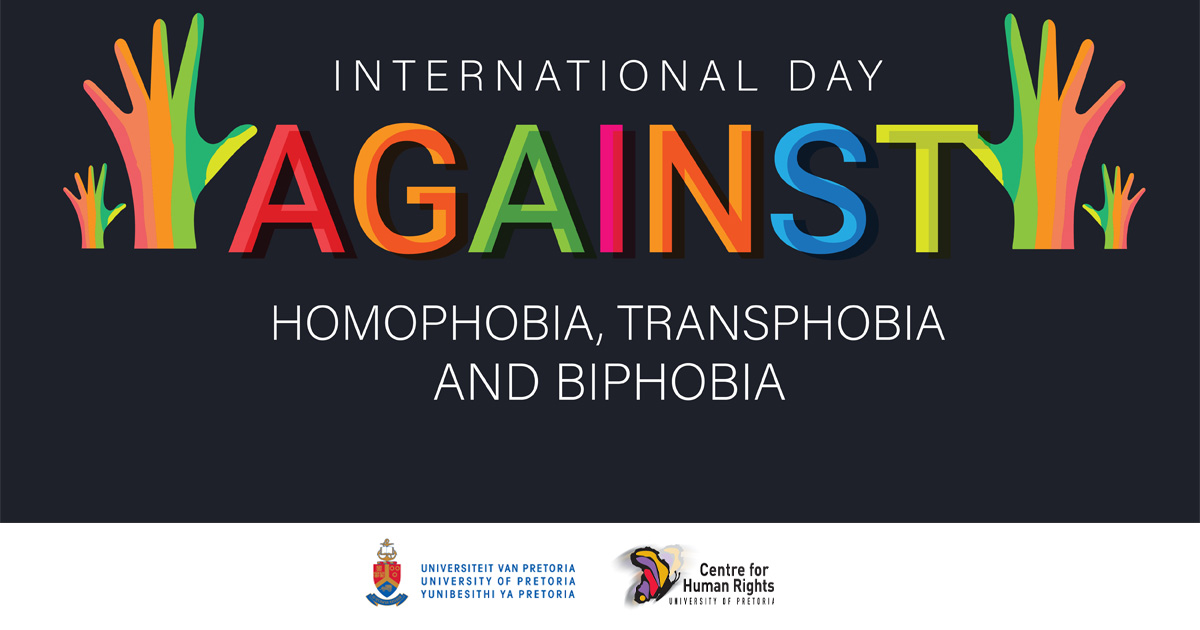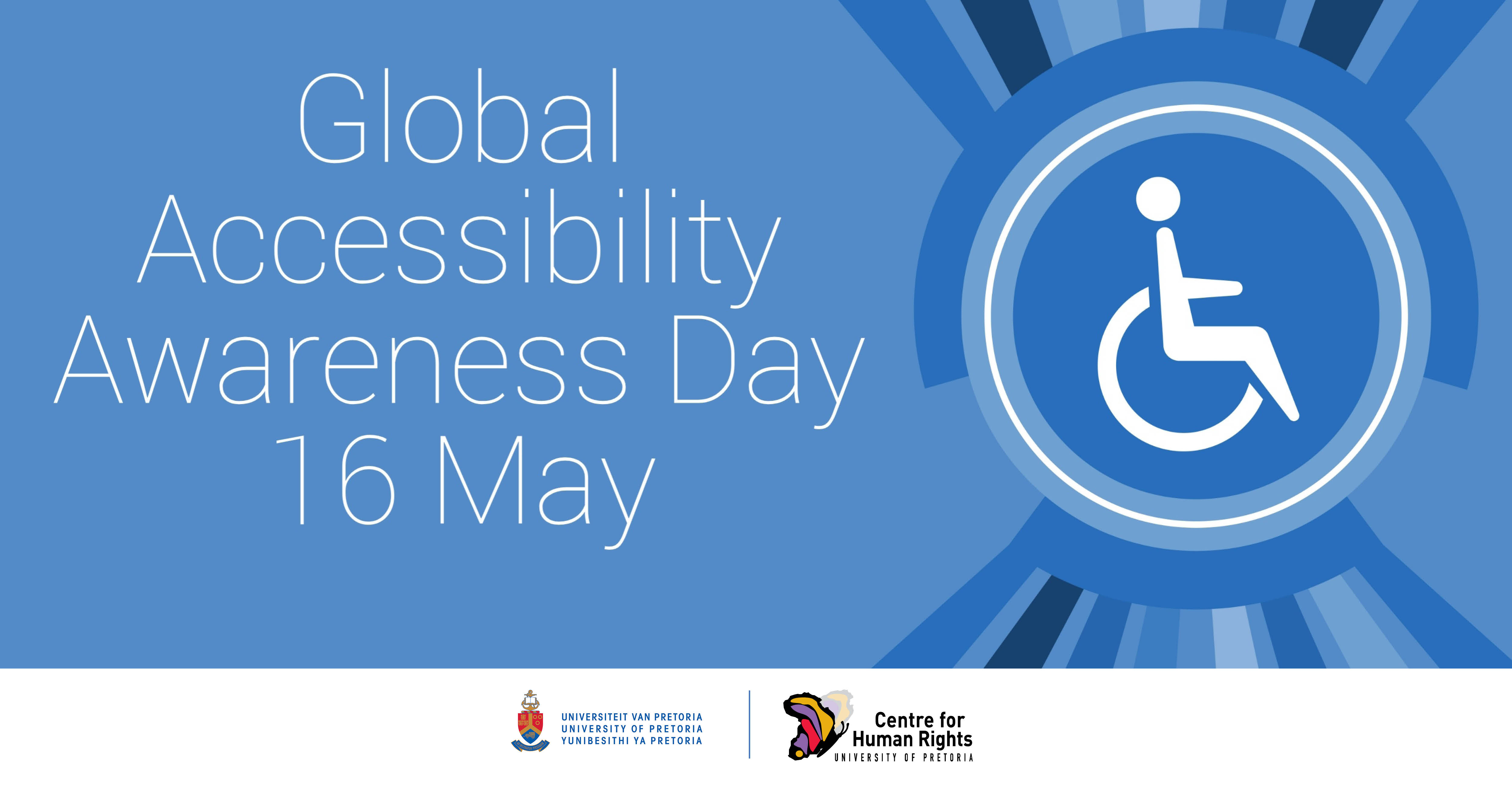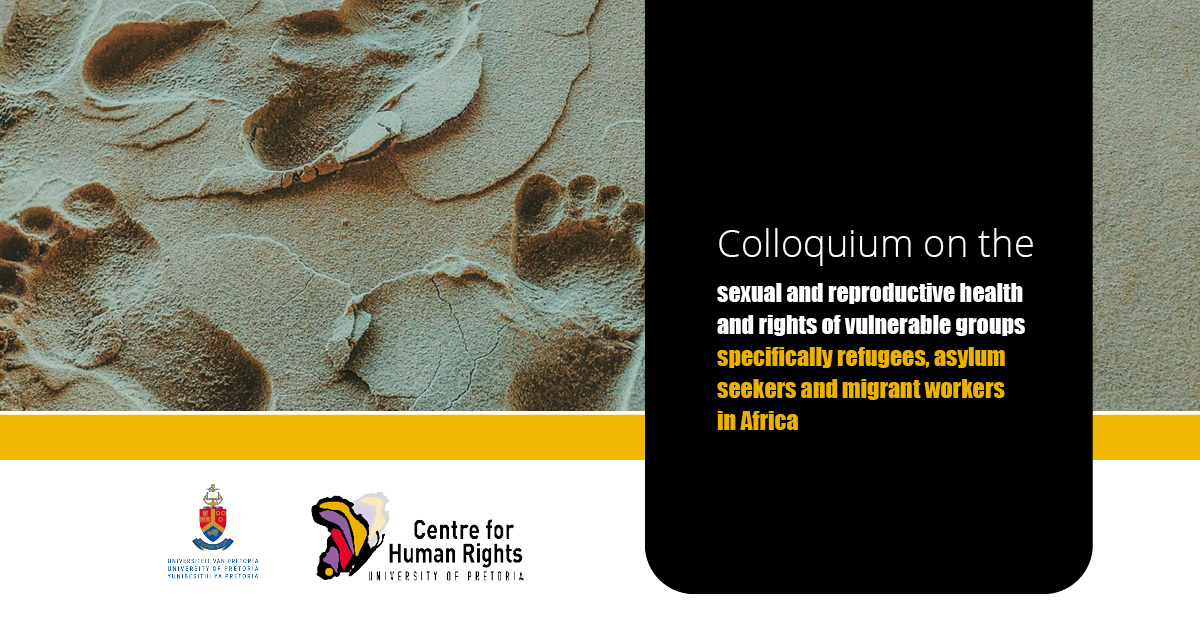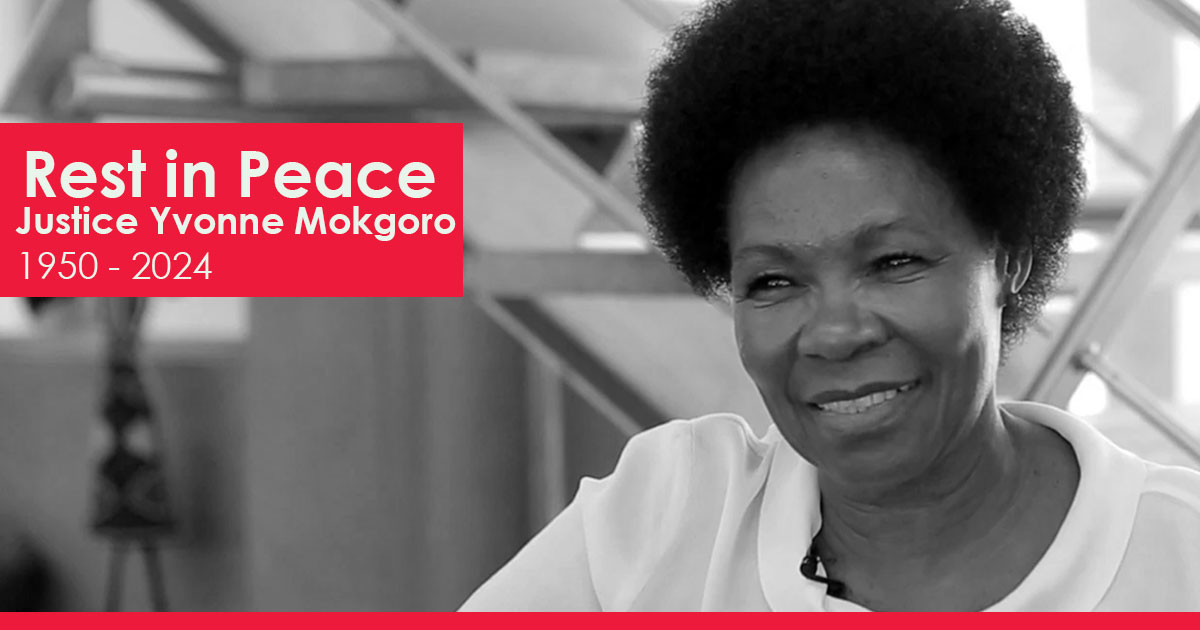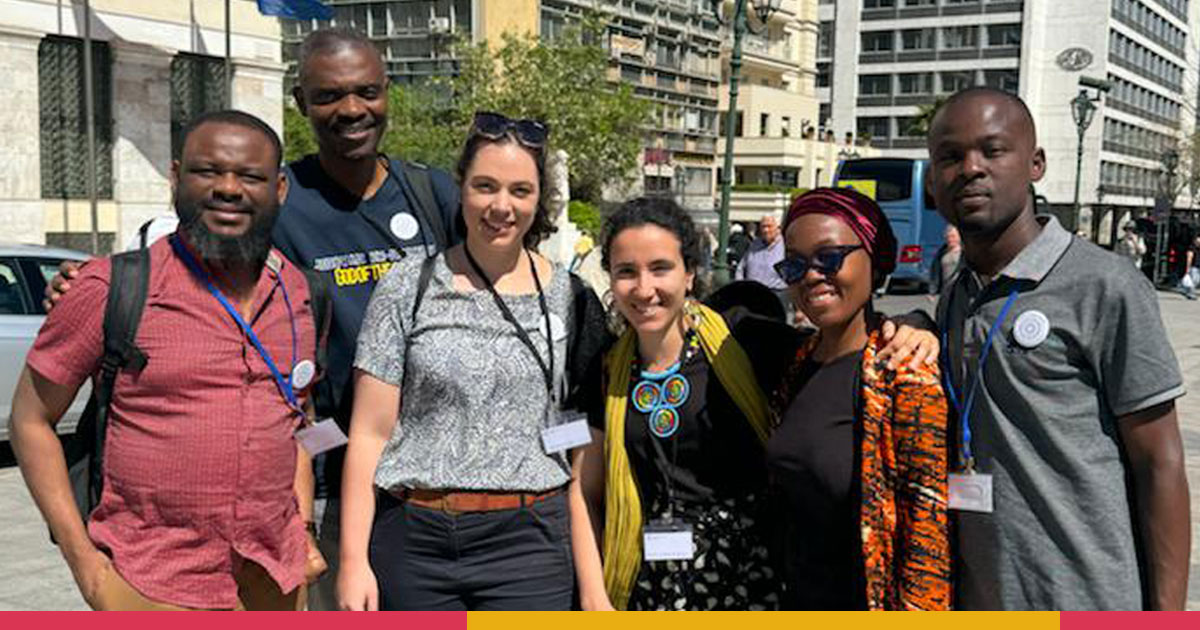- Details
The Vera Chirwa Prize winner for 2024 was announced on International Human Rights Day, 10 December 2024, at the Aula, University of Pretoria, on the occasion of the 25th graduation ceremony of the Master’s in Human Rights and Democratisation in Africa (HRDA), of the Centre for Human Rights at the Law Faculty of the University of Pretoria. Ms Lindiwe Khumalo is an HRDA alumna (Class of 2010, Eswatini).
- Details
On Tuesday 10 December, International Human Rights Day, the Centre for Human Rights, Faculty of Law, University of Pretoria (the Centre) held its annual graduation ceremony. In 2024, the Centre celebrates significant milestones for two of its academic programmes: the Master’s in Human Rights and Democratisation in Africa (HRDA) and the Master’s in Sexual and Reproductive Rights in Africa (SRRA). This year marks 25 years of teaching and successful completion of 25 cohorts of HRDA students, while the SRRA marks 10 years since its inception.
- Details
On Saturday 30 November 2024, the Centre for Human Rights, Faculty of Law, University for Pretoria (the Centre), sensitised Members of Parliament (MPs) of the Pan-African Parliament (PAP) on ratification of African Union (AU) human rights treaties. This session was one of the sessions during PAP’s Regional Workshop on the Ratification and Implementation of AU legal instruments on shared values held from 29 to 30 November 2024, the seat of PAP in Midrand, Johannesburg, South Africa. The workshop is part of PAP’s efforts to facilitate the effective implementation of AU’s policies and objectives.
- Details
The Centre for Human Rights, Faculty of Law, University of Pretoria, joins the international community in observing International Anti-Corruption Day, which is observed annually on 9 December. The 2024 theme is: ‘Uniting with Youth Against Corruption: Shaping Tomorrow's Integrity’. This year’s focus acknowledges the critical role of young people in combating corruption and fostering a culture of accountability and transparency globally. We reaffirm our commitment to addressing corruption, a persistent challenge that undermines democracy, human rights, and sustainable development.
- Details
Pretoria University Law Press (PULP) on 6 December 2024 launched its second of a series of commentaries on African human rights treaties, The African Charter on the Rights and Welfare of the Child: A Commentary.
- Details
On Human Rights Day, HURIDOCS will host a webinar to showcase the critical role of documentation and technology in protecting defenders, advocating for the rights of those who are wrongfully detained and supporting those who are detained to claim their rights.
- Details
For two days (Thursday 28 and Friday 29 November 2024) the Centre for Human Rights, Faculty of Law, University of Pretoria, held a capacity-building workshop for African civil society actors (CSOs) on engaging with the African human rights system. The capacity-building workshop, which was hosted at 224 in Pretoria, benefited 20 participants from CSOs operating across the four regions of the African continent in these countries: Algeria, Botswana, Ethiopia, Ghana, Kenya, Malawi, Namibia, Nigeria, Senegal, South Africa, Uganda and Zimbabwe. The work of participating organisations covers diverse human rights issues including women’s rights, children’s rights, persons deprived of their liberty, sexual minorities, socio-economic rights and refugees.
- Details
From 13 - 14 November 2024, the Centre for Human Rights, Faculty of Law, University of Pretoria hosted the 12th Annual Disability Rights in Africa Conference under the theme ‘Disability Rights, information and communication technologies (ICTs) in Africa.’ The conference was held in a hybrid format, with some participants attending in person at Premier Hotel, OR Tambo International Airport and others virtually. The conference aimed to critically examine laws, policies, practices, programmes, and ideologies pertaining to the rights of persons with disabilities in Africa within the context of Information and Communication Technologies (ICT) and to promote discussions on innovative solutions aimed at enhancing human rights for persons with disabilities through the use of ICTs. The Conference brought together stakeholders interested in promoting the rights of persons with disabilities through ICT and related technologies such as artificial intelligence (AI).
- Details
Since its adoption in July 1990 and entry into force in November 1999, the African Charter on the Rights and Welfare of the Child (African Children’s Charter), has become a key instrument within the African human rights system, governing children’s rights in Africa. To date, 51 out of 55 African Union member states have ratified the African Children’s Charter, which demonstrates a growing commitment to respect, protect and promote the rights of children. There is no doubt that the Charter, since entering into force, has significantly contributed to the development of standards and practice related to children in Africa.
- Details
The Centre for Human Rights, Faculty of Law, University of Pretoria, warmly welcomes the adoption of the Resolution on Promoting and Harnessing Data Access as a Tool for Advancing Human Rights and Sustainable Development in the Digital Age by the African Commission on Human and Peoples’ Rights (ACHPR) during its 81st Ordinary Session. This Resolution represents a landmark achievement in the Commission’s ongoing efforts to ensure that Africa’s digital future is one rooted in human rights, equity, and social justice. By recognising the transformative power of data in promoting democracy, transparency, and accountability, the ACHPR is positioning data access as a crucial tool in advancing the sustainable development agenda and safeguarding fundamental rights across the continent.
- Details
The Business and Human Rights– A Comparative Regional Perspective workshop, spanning two days, will provide a comprehensive exploration of the intersection between corporate accountability and human rights, both generally and through a regional lens.
- Details
On 20 November 2024, a significant validation meeting was held by the Sexual and Reproductive Health and Rights in Africa Unit at the Centre for Human Rights, University of Pretoria. The meeting focused on critical issues regarding the sexual and reproductive health and rights (SRHR) of older women across Africa. Despite the presence of various human rights instruments designed to protect the rights of older individuals, the meeting underscored the ongoing barriers that older women face in accessing SRHR services.
- Details
From the 31st of October to the 1st of November 2024, the Centre for Human Rights hosted the 3rd Regional Convening on access to justice for persons with disabilities in Africa. The convening sought to strengthen the capacity of criminal justice personnel including police officers, prosecutors, magistrates, defence lawyers and intermediaries on how to ensure that persons with disabilities access justice on an equal basis with others. The participants were drawn from a number of African countries including South Africa, Lesotho, Zambia, Kenya, Zimbabwe, Eswatini, Namibia, Botswana, and Malawi.
- Details
On 12th and 14th of November 2024, the Centre hosted two pivotal meetings in Windhoek, Namibia, focusing on advancing the country’s human rights landscape under the African Charter on Human and Peoples’ Rights (African Charter) and the Protocol to the African Charter on Human and Peoples’ Rights on the Rights of Women in Africa (Maputo Protocol). The two separate gatherings brought together civil society organisations (CSOs) and representatives of the State Reporting and Follow-up Inter-ministerial Committee of Namibia including representatives from the Ministry of Gender Equality, Poverty Eradication and Social Welfare, the Ministry of Justice and the Ministry of Defence.
- Details
The Pretoria University Law Press (PULP) is proud to announce the winner of the Christof Heyns Memorial Thesis Award 2024. The award for the best thesis by an African doctoral candidate completed in 2023, goes to Dr Barbra Ontibile Bhebe.
- Details
The scholarship of Professor Charles Fombad provides important guidance to address contemporary challenges to constitutionalism in Africa and around the world. This is a key conclusion of a conference honouring Charles Fombad’s academic contributions, held on 21 and 22 October at the Future Africa Campus of the University of Pretoria.
- Details
The Centre for Human Rights, Faculty of Law, University of Pretoria, cordially invites you to its 12th Annual Disability Rights in Africa Conference, which will take place from 13 to 14 November 2024 in hybrid format in Johannesburg, Premier Hotel, OR Tambo and online via Zoom and online via Zoom. The theme of this year’s Conference is ‘Disability rights, information and communication technologies (ICT) in Africa.’
- Details
The Centre for Human Rights, Faculty of Law, University of Pretoria, in collaboration with the government of Côte d’Ivoire, Ministry of Women, the Family and Children, hosted a Francophone Regional Training on State Party Reporting under the African Charter on Human and Peoples’ Rights (African Charter) and the Protocol to the African Charter on Human and Peoples’ Rights on the Rights of Women in Africa (Maputo Protocol). The training was held from 28 to 30 October 2024 in Abidjan, Côte d’Ivoire. The training brought together government and civil society representatives from Côte d’Ivoire, Cameroon, the Central African Republic, Guinea Conakry, the Democratic Republic of Congo and Mali. The workshop highlighted the importance of state party reports in assessing the progress made by African nations in fulfilling their commitments to human rights, specifically concerning women's rights under the Maputo Protocol.
- Details
As part of the UTFORSK project “Fostering research-based education through academic mobility and measuring the domestic impact of core human rights treaties”, the Norwegian Centre for Human Rights, University of Oslo, and the Centre for Human Rights, Faculty of Law, University of Pretoria, are organizing a closing international conference to be held in Oslo, Norway, on 14 and 15 April 2025.
- Details
On Saturday 19 October, the Centre for Human Rights, Faculty of Law, University of Pretoria hosted a networking event of Centre alumni in Banjul, where they were attending the 81st Session of the African Commission on Human and Peoples’ Rights. The event was attended by thirty graduates of two of the Centre’s five academic programmes: the Masters in Human Rights and Democratisation in Africa (HRDA); and the Masters in Multidisciplinary Human Rights (MDHR).
- Details
The Centre for Human Rights, Faculty of Law, University of Pretoria, strongly condemns the double murder of Mozambique opposition (Podemos) political party’s lawyer (Elvino Dias) and representative (Paulo Guambe) on Friday 18 October 2024. The two were killed just hours before the start of planned protests challenging the results of the country’s elections held on 9 October 2024. There are concerns over allegations that these elections were altered unjustifiably to favour the ruling party, Frelimo, which is seeking to maintain its 49-year uninterrupted grip on power. Since the sad development on Friday, reports from the country reveal excessive use of force, including the police firing tear gas at independent presidential candidate Venânciao Mondlane and his supporters on 21 October 2024, who had gathered at the scene where Dias and Guambe were killed.
- Details
On 26 - 27 of September 2024, the Centre for Human Rights, Faculty of Law, University of Pretoria hosted a regional workshop on enhancing the ratification and implementation of the Protocol to the African Charter on Human and Peoples’ Rights on the Rights of Persons with Disabilities (African Disability Protocol).
The African Disability Protocol was adopted by the African Union (AU) Assembly with a view to promote and protect rights of persons with disabilities in Africa. The regional workshop sought to encourage and foster open dialogue among AU Member States on effective implementation strategies and encourage a wider ratification of the African Disability Protocol as the Protocol has come into force.
- Details
On 17 October 2024, the Centre for Human Rights, Faculty of Law, University of Pretoria collaborated with other stakeholders to commemorate 25 years of the Office of the Special Rapporteur on the Rights of Women in Africa (Special Rapporteur). The event was hosted on the side-lines of the 81st Ordinary Session of the African Commission on Human and Peoples’ Rights in Africa taking place in Banjul, the Gambia. The other partners of the event were IPAS and Equality Now.
- Details
To celebrate the scholarship of Prof Charles Fombad, the Centre for Human Rights, the NRF Chair in International Constitutionalism, Faculty of Law, University of Pretoria, the Faculty of Law, University of the Free State and the African Network for Constitutional Lawyers, invite members of the public to celebrate and reflect on Professor Charles Fombad’s ongoing scholarship from 21-22 October 2024.
RSVP (In-person attendance) Register on Zoom (Online) Download Programme
- Details
The Centre for Human Rights welcomes the landmark judgment handed down by the Pretoria High Court on Monday, 30 September 2024 in the case of The Embrace Project NPC and Others v Minister of Justice and Correctional Services Case no.:04856/22, Pretoria High Court]. In terms of the judgment, Baqwa J ordered that Sections 3, 4, 5, 6, 7, 8, 9 read with section 1(2) of the Criminal Law (Sexual Offences and Related Matters) Act 32 of 2007 are declared unconstitutional, invalid and inconsistent with the Constitution to the extent that these provisions do not criminalise sexual violence where the perpetrator wrongly and unreasonably believed that the complainant was consenting to the conduct in question, alternatively to the extent that the provisions permit a defence against a charge of sexual violence where there is no reasonable objective belief in consent. This significant judgment marks a pivotal moment in South Africa’s legal approach to prosecuting sexual violence cases.
2024 Right Livelihood Laureates empower communities through non-violence and speaking truth to power
- Details
This year’s Right Livelihood Laureates have each made a profound impact on their communities and the global stage. Their unwavering commitment to speaking out against forces of oppression and exploitation, while strictly adhering to non-violent methods, resonates far beyond their communities.
- Details
The Centre for Human Rights, Faculty of Law, University of Pretoria, welcomes the coming into force of the Protocol to the African Charter on Human and Peoples’ Rights on the Rights of Persons with Disabilities in Africa (African Disability Protocol), which came into force on 3 May 2024, following the receipt of the 15th instrument of ratification, in accordance with article 38 of the Protocol. The fifteen African Union (AU) Member States that have ratified the African Disability Protocol include Angola, Burundi, Cameroon, Republic of Congo, Kenya, Mali, Malawi, Mozambique, Namibia, Nigeria, Niger, Rwanda, South Africa, Sahrawi Arab Democratic Republic and Uganda. The Protocol’s entry into force creates an enabling legal framework in the African Human Rights System for the protection, promotion and fulfilment of the rights of persons with disabilities in Africa.
- Details
The United Nations Sustainable Development Goals (SDGs) represent a collective global commitment to eradicating poverty and reducing inequalities, underpinned by the “Leave No One Behind” principle. This guiding framework calls for an inclusive approach, ensuring that all people, especially the most marginalised, have equitable access to resources, rights, including sexual and reproductive health and rights, and opportunities. However, refugees, asylum seekers, and migrant workers face numerous barriers that extend beyond the mere lack of resources. Discriminatory laws, exclusionary policies, and harmful social practices continue to marginalize these vulnerable groups, further deepening inequalities.
- Details
The African Commission on Human and Peoples’ Rights (ACHPR), in partnership with the United Nations Office of the High Commissioner for Human Rights (OHCHR), the Pan-African Parliament (PAP), and the Centre for Human Rights, University of Pretoria, is organizing a Joint Colloquium on Realizing Economic, Social, and Cultural Rights (ESCR) in Africa with a Focus on the Right to Education, scheduled for 21 - 22 October 2024 in Banjul, The Gambia, on the margins of the 81st Ordinary Session of the ACHPR.
- Details
The Information Regulator in partnership with the Centre for Human Rights at the University of Pretoria will host the International Day for Universal Access to Information (IDUAI) Symposium on 27 September 2024.
- Details
On 05 September 2024, the Centre for Human Rights, Faculty of Law, University of Pretoria, collaborated with the International Code of Conduct Association (ICoCA) and the ICT4Peace Foundation and hosted a consultative workshop on the responsible use of technology in private security. The workshop convened participants from the public sector, private security, civil society organisations, and academic institutions to discuss the deployment of new technologies in the private security sector and compliance with human rights and ethical standards.
- Details
Michelo Kennedy Hansungule was Professor of Human Rights Law at the Centre for Human Rights, Faculty of Law, University of Pretoria, South Africa from 2004 up to his retirement a few years ago. For many years, he was an esteemed and respected part of the Centre team. He was a Zambian by birth, but an African at heart. In his teaching, research and interactions, he was the embodiment of the ‘African personality’.
- Details
In response to the emerging practice of pharmacists refusing to dispense abortifacients due to conscientious objection, the Centre for Human Rights, and 11 other public interest organisations, have addressed an open letter to the South African Pharmacy Council (SAPC) and the National Department of Health (NDOH). The open letter contains a legal opinion highlighting the significant, and adverse, impact of conscientious objection on access to safe and legal abortions.
- Details
On Tuesday 10 September 2024, the African Court on Human and Peoples’ Rights (the African Court) will hold a public hearing in Centre for Human Rights and Others v United Republic of Tanzania (Application No. 019 of 2018). This case was filed on 26 July 2018 by three NGOs, namely: the Centre for Human Rights at the University of Pretoria, the Institute for Human Rights and Development in Africa and the Legal and Human Rights Council.
- Details
The Centre for Human Rights, Faculty of Law, University of Pretoria (Centre) held the second Christof Heyns Memorial Lecture on 4 July 2024. Professor Christoffel Hendrik (Christof) Heyns, who passed away suddenly in March 2021, was an internationally renowned human rights lawyer, legal educator and activist. He was one of the founders and previous director of the Centre. He also initiated the Master’s programme in Human Rights and Democratisation in Africa (HRDA), under whose auspices the event was organized.
- Details
On 2 September 2024, Justice Duncan Gaswaga, a Ugandan national, was sworn in as a new Justice of the African Court on Human and Peoples’ Rights (Court). In addition, two other Justices, Justice Stella Isibhakhomen Anukam from Nigeria and Justice Blaise Tchikaya from the Republic of Congo, were sworn into begin a second and final six-year term. They were all elected by the AU Executive Council during its 45th Ordinary Session held on 18-19 July 2024 in Accra, Ghana.
- Details
From 19 - 21 August 2024, the Centre for Human Rights, Faculty of Law, University of Pretoria convened a capacity-building workshop on the African human rights system for the Africa Internet Rights Alliance (AIRA). AIRA is a dynamic network of Africa-based civil society organisations (CSOs) at the forefront of advancing digital rights and internet freedom across the continent. The purpose of the engagement was to equip AIRA members with a comprehensive understanding of the African human rights system.
- Details
The Pretoria University Law Press (PULP) invites you to the virtual book launch of A Theory on Africanizing International Law, by Micha Wiebusch (2024).
Download Book Download Invitation Click here to register on Zoom
- Details
The Centre for Human Rights, Faculty of Law, University of Pretoria will host a two-day (17 Thursday 17 to 18 Friday October 2024) capacity-building workshop for African civil society organisations (CSOs) on engagement with the African human rights system. The workshop targets African CSOs that have so far had limited or no interaction with the three core African human rights bodies, namely: the African Commission on Human and People’s Rights, the African Court on Human and People’s Rights and the African Committee of Experts on the Rights and Welfare of the Child.
- Details
The Centre for Human Rights,Faculty of Law, University of Pretoria invites African Youth Human Rights to a Conference under the theme "Empowering African Youth for the Realisation of Human Rights"
Date: 3 - 4 September 2024
Time: 09:00 - 15:45
Online: (Zoom)
- Details
On 14 -16 August 2024, the Centre for Human Rights, Faculty of Law, University of Pretoria (Centre), hosted a training on the litigation of sexual and reproductive health and rights (SRHR) claims before national and regional mechanisms in Africa. The training is the second annual series forming part of the Centre’s responses to concerns over the underutilisation of litigation for the enforcement of SRHR in Africa.
- Details
On Thursday, 22 August 2024, the Centre for Human Rights (Centre), Faculty of Law, University of Pretoria signed a Memorandum of Understanding (MoU) with the Brigitte Mabandla Justice College of the Department of Justice and Constitutional Development. The signing ceremony, held at the recently refurbished and renamed Brigitte Mabandla Justice College, marked the solidification of the partnership between the two institutions, and their shared commitment to strengthening collaboration in line with their visions and missions. The two institutions pledged to work together in co-hosting the annual Equality Court Clerk Conference as part of their strategic aim to enhance access to Equality Courts in South Africa for the LBGTQI+ community in the country.
- Details
The African Human Rights Yearbook invites submissions for articles related to the African Union theme of the Year 2024: ‘Educate an African fit for the 21st century: Building resilient education systems for increased access to inclusive, lifelong, quality, and relevant learning in Africa’, of no more than 10,000 words, footnotes included.
The call for contirutions has been extended.
Closing date for submissions is 15 September 2024 submit to: ahry@up.ac.za
- Details
The Centre for Human Rights, Faculty of Law, University of Pretoria, congratulates the Special Rapporteur on Freedom of Expression and Access to Information in Africa (the Special Rapporteur) on the significant occasion of its 20th anniversary. Since its establishment in 2004, the Mechanism has exhibited a remarkable dedication to the principles of freedom of expression and access to information, resolutely advocating for these fundamental rights. On this occasion of this milestone, the Centre for Human Rights, commends the Mechanism’s steadfast advocacy for these fundamental rights across the continent, reflecting a persistent commitment to promoting freedoms essential for public engagement, democratic governance, and the realisation of broader human rights.
- Details
Bringing together over 18 participants from across the Continent, the Centre for Human Rights, Faculty of Law, University of Pretoria (Centre) held the 9th edition of the capacity building workshop on strategic litigation and advocacy for LGBTIQ+ Advocates in Africa from 22 - 26 July 2024. The capacity building workshop aims to enhance the skills of experienced African activists in strategic litigation and advocacy towards the protection of sexual and gender minorities in Africa.
- Details
In pursuit of the ideals of excellence, the University of Pretoria wishes to invite applications for the following vacancy. The University of Pretoria's commitment to quality makes us one of the top research Universities in the country and gives us a competitive advantage in international development.
Project Title
A critical analysis of the potential of the Pan-African Parliament, the African Union Development Agency-NEPAD and the African Peer Review Mechanism to facilitate citizen engagement in the African Union reform processes.
- Details
The Global Engagement Network on Internal Displacement in Africa (GENIDA) is excited to announce a call for audio notes! We invite you to contribute to our upcoming audiomentary by sharing your insights on one or two provisions of the Kampala Convention and how they relate to your home country.
- Details
On 23 and 24 July 2024, the Centre for Human Rights (CHR), Faculty of Law, University of Pretoria in collaboration with the Electoral Commissions Forum of SADC Countries (ECF-SADC) and supported by the Open Society Foundations, convened a regional capacity building workshop on the information ecosystem and elections in Africa.
- Details
The 33rd Christof Heyns African Human Rights Moot Court Competition concluded on 27 July 2024, with the combined team of Ebonyi State University, Ebonyi State, Nigeria, and Midlands State University, Zimbabwe, emerging as the winning team. The runners-up are the Université Thomas Sankara, Burkina Faso, and University of Nairobi, Kenya. Capturing the pan-African aim of the Competition, the four finalist teams came from different regions on the continent -- the Sahel (Université Thomas Sankara, Burkina Faso), from West Africa (Ebonyi State University, Ebonyi State, Nigeria), East Africa (University of Nairobi, Kenya) and Southern Africa (Midlands State University, Zimbabwe).
- Details
The Centre for Human Rights is seeking to conduct a study on these organs of the AU, based in Midrand, South Africa, with a particular focus on ways to enhance citizens’ participation in the reforms of the African Union.
- Details
The CHR is looking for a qualified consultant to conduct research on the social protection accorded to lesbian, gay, bisexual, transgender, intersex and queer (LGBTIQ+) persons, including LGBTIQ+ refugees and asylum seekers, in various African countries.
Download Terms of Reference
Namibia Tanzania South Africa Malawi Botswana Zambia Zimbabwe
- Details
As part of the Moot, the Fifth Nelson Mandela Lecture took place on the evening of 17 July at the Maison de la Paix. The Geneva Human Rights Platform played a pivotal role in ensuring that this lecture took place.
- Details
The 16th Nelson Mandela World Human Rights Moot Court Competition concluded at the European seat of the United Nations, the Palais des Nations in Geneva, Switzerland, on 19 July 2024, a day after the celebration of 104 years since the birth of the internationally renowned human rights icon Nelson Mandela.
- Details
On 23 and 24 July 2024 in Windhoek, Namibia, the Centre for Human Rights (CHR), Faculty of Law, University of Pretoria in collaboration with the Electoral Commissions Forum of SADC Countries (ECF-SADC) will be convening a regional capacity building workshop on the information ecosystem and elections in Africa.
- Details
In 2024, three of the eleven positions of Judges of the African Court on Human and Peoples’ Rights (African Court) need to be filled. The African Court, which has been established under the Protocol to the African Charter on Human and Peoples’ Rights on the Establishment of an African Court on Human and Peoples’ Rights (African Court Protocol), is the African Union (AU)’s primary human rights judicial body. It has jurisdiction over 34 of 54 state parties to the African Charter.
- Details
The Centre for Human Rights, University of Pretoria, Faculty of Law (The Centre), in collaboration with the Brigitte Mabandla Justice College (BMJC) of the Department of Justice and Constitutional Development, hosted a transformative seminar series focusing on the Equality Court and LGBTIQ+ in the Social Context from 8 to 12 July 2024. Held at the newly launched Brigitte Mabandla Justice College at 332 Johannes Ramokhoase Street, Tshwane, this series marked a significant step forward in advancing access to justice for sexual and gender minorities (SGM) in South Africa, through facilitating conversations on LGBTIQ+ persons and their lived realities.
- Details
Disability Rights, Information and CommunicationDisability Rights, Information and CommunicationTechnologies in Africa
The Centre for Human Rights, Faculty of Law, University of Pretoria, will be convening a hybrid conference titled ‘Disability Rights, Information, and Communication Technologies in Africa’, scheduled for 13-14 November 2024. The conference aims to achieve two primary objectives: firstly, to critically examine laws, policies, practices, programs, and ideologies pertaining to the rights of individuals with disabilities in Africa within the context of Information and Communication Technologies (ICT); secondly, to promote discussions on innovative solutions aimed at enhancing human rights for individuals with disabilities through the utilisation of ICTs. It is anticipated that papers presented at the conference will be refined by authors and subsequently submitted for potential publication in the 2025 volume of the African Disability Rights Yearbook.
Call for Applications: Doctorate in Law (PhD) - Access Medicine under International Human Rights Law
- Details
The Child Law & Health Law Department of the Institute for Private Law at Leiden Law School invite applications for a Doctorate in Law (PhD): The Child’s Right to Access Medicine under International Human Rights Law: Responding to antimicrobial resistance - PhD Candidate, 1.0 FTE Vacancy Number: 14930
- Details
In pursuit of the ideals of excellence, the University of Pretoria wishes to invite applications for the following vacancy. The University of Pretoria's commitment to quality makes us one of the top research Universities in the country and gives us a competitive advantage in international development.
The Centre for Human Rights, Faculty of Law, University of Pretoria seeks the services of two consultants - one for Anglophone countries and the other for Francophone countries to develop an undergraduate curriculum on sexual and reproductive health and rights (SRHR) in Africa.
- Details
The 5th annual Nelson Mandela Human Rights Lecture, which forms part of the Nelson Mandela World Human Rights Moot Court Competition, is scheduled to take place on 17 July 2024 at the Graduate Institute of International and Development Studies in Geneva Switzerland and will address one of the themes emerging from this year’s hypothetical case, which students have prepared and will argue: affirmative action, or ‘special measures. The theme for the Lecture is: The Intersecting Role of Gender and Race in Affirmative Action Processes
- Details
In 2024, there are three positions of Judges of the African Court on Human and Peoples’ Rights (Court that need to be filled. The African Union policy organs will be electing three Judges later in July. In anticipation of these elections, the Arusha Initiative is collaborating with three academic institutions (the University of Pretoria (Centre for Human Rights), Makerere University (Human Rights and Peace Center (HURIPEC)), and Kabarak University (School of Law), to co-host a webinar on this topic. The Arusha Initiative is a Civil Society Organisations (CSO) led rights-holders movement advocating for a more transparent, participatory and merits-based process in the nomination and selection of African Union (AU) human rights bodies.
- Details
The Centre for Human Rights (CHR), in partnership with the International Commission of Jurists (ICJ), hosted a Judicial Colloquium on Sexual and Reproductive Health Rights (SRHR) of women and girls in Nairobi, Kenya, on the 2nd and 3rd of July 2024. The event brought together judicial officers from Southern and Eastern African Countries.
- Details
From21 to 22 June 2024, the Centre for Human Rights at the Faculty of Law, University of Pretoria (Centre for Human Rights) in collaboration with the African Court on Human and Peoples’ Rights (African Court) and the Coalition for an Effective African Court on Human and Peoples’ Rights (the Coalition) to organise a two-day conference focusing on the implementation of the African Court's decisions. The conference was held at the Mount Meru Hotel in Arusha, Tanzania, coinciding with the 73rd Ordinary session of the African Court.
- Details
The Centre for Human Rights, Faculty of Law, University of Pretoria, invites applications for a two-day capacity-building training on litigation of sexual and reproductive healthrights (SRHR) claims before national and regional mechanisms in Africa. The training will be held for three days (Wednesday 14 - Friday 16 August 2024) in Pretoria, South Africa.
- Details
On 24 June 2024, the Centre for Human Rights hosted the Pretoria launch of Prof Marc Epprecht’s book Accidental Queer: and other essays around critical masculinity studies in Southern Africa and Canada (Accidental Queer). The launch was held at the Faculty of Law, University of Pretoria, Hatfield campus.
- Details
The Centre for Human Rights, Faculty of Law, University of Pretoria is deeply concerned about the ongoing internal armed conflict in Sudan which erupted on the 15th of April 2023 between the Sudanese Armed Forces (SAF) and the paramilitary Rapid Support Forces (RSF).
The internal armed conflict began in the Sudan’s capital, Khartoum due to power struggle between the Sudanese Armed Forces (SAF) and the paramilitary Rapid Support Forces (RSF) following the 2021 coup. It has since spread over to other regions of Sudan resulting in massive human rights violations and a serious humanitarian crisis. The conflict sits at the core of Sudan’s political legacy which is characterized by impunity for grave international crimes, coups d’etat and military rule impeding Sudanese people’s struggle for democratic governance.
- Details
To celebrate the scholarship of Prof Charles Fombad, the Centre for Human Rights, the NRF Chair in International Constitutionalism, Faculty of Law, University of Pretoria, the Faculty of Law, University of the Free State and the African Network for Constitutional Lawyers, plan to co-host a conference and co-edit a publication (conference proceedings/volume of essays) to celebrate and reflect on Professor Charles Fombad’s ongoing scholarship.
- Details
A 2023 study conducted by the Centre for Human Rights, Faculty of Law, University of Pretoria, indicates that persons with albinism in South Africa continue to experience discrimination based on the colour of their skin. Titled ‘The impact of race and colour on the enjoyment of human rights by persons with albinism in South Africa,’ the study demonstrates the adverse impact of colour-based discrimination on social inclusion and on the enjoyment of human rights and fundamental freedoms by persons with albinism in South Africa.
- Details
We, the undersigned South African organisations, write an open letter to Sasol in solidarity withWe, the undersigned South African organisations, write an open letter to Sasol in solidarity withthe people of Mossville, Louisiana, USA. The historically African-American community ofMossville has suffered enormously from long-standing toxic pollution produced by Sasol’s LakeCharles Chemical Complex, which sits on the fenceline of their homes. Moreover, Sasol’sexpansion of this facility has depleted the population of this once-vibrant community. We urgeSasol to make things right for this community and conduct an equitable property buyout for theremaining Mossville residents who are interested in relocation.
- Details
The Centre for Human Rights, University of Pretoria (Centre) is thrilled to congratulate Abiola Idowu-Ojo on her well-deserved appointment as the Executive Secretary at the African Commission on Human and Peoples’ Rights (African Commission). She has been serving as the Commission’s Acting Executive Secretary since August 2023.
- Details
The Centre for Human Rights at the University of Pretoria organized a webinar on 21 June 2024 to discuss and assess implementation of Comprehensive Sexuality Education (CSE) in South Africa. The aim of the webinar was to assess CSE delivery in South Africa through Life Orientation (LO) subject in schools.
- Details
The Centre for Human Rights, in partnership with the Centre for Child Law both at the Faculty of Law, University of Pretoria and Dullah Omar Institute for Constitutional Law, Governance and Human Rights, University of the Western Cape hosted the annual Advanced Human Rights Course on Children’s Rights in Africa from 17 to 21 June 2024. This year, the course was also supported by the Global Campus of Human Rights.
- Details
On 20 June 2024, the Centre for Human Rights, Faculty of Law, University of Pretoria commemorated #WorldRefugeeDay by hosting a community leaders’ dialogue at thein Southern Sun Hotel, Johannesburg. In line with the theme of World Refugee Day for the year 2024, ‘solidarity with refugees’, the event was organised to enhance the role of community leaders in promoting solidarity with refugees. A total of 37 participants drawn from refugee and other migrant organisations and refugee host communities attended the event.
- Details
On 12 June, the Centre for Human Rights, Faculty of Law, University of Pretoria, in partnership with Corruption Watch and the Thulani Maseko Foundation, hosted the 2nd Annual Thulani Maseko Memorial Lecture in honour of the dedicated and tireless human rights defender, respected human rights lawyer and advocate for constitutional reform in Eswatini. The theme of this year's lecture was 'Lack of Accountability and Impunity in the Persecution of Human Rights Defenders'.
- Details
The Centre for Human Rights, Faculty of Law, University of Pretoria cordially invites you to the Helen Kanzira Memorial Lecture. The theme for this years lecture is ‘The role of digital technologies in addressing maternal mortality in Africa’
- Details
The Centre for Human Rights, Faculty of Law, University of Pretoria cordially invites you to the second Christof Heyns Human Rights Memorial Lecture. Drawing on Christof’s sense of inclusion and collaboration, a panel will collectively deliver the ‘Lecture’. This year’s lecture traces the developments in law and practice ‘Towards the complete abolition of the death penalty in Africa’.
- Details
In 2024, the Centre for Human Rights, Faculty of Law, University of Pretoria (CHR), is proudly celebrating 10 years of the Sexual and Reproductive Rights in Africa (SRRA) programme. This initiative, which has made a significant regional impact, was born out of a desire to contribute to sexual and reproductive rights scholarship, arm practitioners with the knowledge to confidently steer and influence advocacy, policy, law, and enrich human rights discourse. Currently, this is the only programme on the continent that awards a specialised degree at the Master’s level on sexual and reproductive health and rights (SRHR).
- Details
On 17 June 2024, the Global Campus (GC) International Student Conference on Just Transition: Conditions for Change in the Global Order launched at the OSCE Academy in Bishkek. This event marks a revitalised edition of the GC Global Classroom, a flagship research and networking programme for students, hosted this time by Global Campus Central Asia Master's Programme in Human Rights and Sustainability (MAHRS).
- Details
As South Africa celebrates Youth Day, and the world commemorates International Day of the African Child on 16 June 2024, the Centre for Human Rights, Faculty of Law University of Pretoria, recalls the events that explain why this is the date on which children’s rights are highlighted. It also calls for recommitment to make the right to education meaningful reality to all children.
- Details
In pursuit of the ideals of excellence, the University of Pretoria wishes to invite applications for the following vacancy. The University of Pretoria's commitment to quality makes us one of the top research Universities in the country and gives us a competitive advantage in international development.
The Centre for Human Rights, Faculty of Law, University of Pretoria seeks the consultancy services of five consultants to conduct research on the laws and policies relating to the SRHR of older women in five regions of Africa. This research should provide a detailed report on the forms and nature of SRHR challenges facing older women in each of the regions. More importantly, it should provide detailed information and analysis on laws, policies, and programmes on SRHR of older women as well as the good practices in this regard.
- Details
In pursuit of the ideals of excellence, the University of Pretoria wishes to invite applications for the following vacancy. The University of Pretoria's commitment to quality makes us one of the top research Universities in the country and gives us a competitive advantage in international development.
The Centre for Human Rights, Faculty of Law, University of Pretoria seeks the consultancy services of two consultants to conduct a study to review and analyse the extent to which African governments have reformed laws and policies on abortion in line with the Maputo Protocol. The study seeks to review laws, policies and programmes as well as case law to ensure safe abortion services in the region, using two case studies.
- Details
The Centre for Human Rights, Faculty of Law, University of Pretoria, condemns the continued mistreatment of the Maasai indigenous people in the United Republic of Tanzania. Over the years, the illegal and forced evictions of this indigenous group from the Ngorongoro Area have resulted in over 80,000 people being deprived of access to settlement and grazing lands on which their pastoral livelihoods depend.
- Details
The Centre for Human Rights, Sexual and Reproductive Rights Unit, seeks a proficient Monitoring and Evaluation (M&E) consultant to conduct an in-depth assessment of its Sexual and Reproductive Rights in Africa programme. The programme is a postgraduate academic project, consisting of a Masters, doctoral and post-doctoral studies.
- Details
The Global Campus of Human Rights and the Centre for Human Rights, Faculty of Law, University of Pretoria cordially invites you, on the occasion of the Day of the African Child, to a webinar on Edtech regulatory frameworks and the right to education in Africa.
- Details
The Centre for Human Rights, University of Pretoria invites you to the Pretoria launch of Prof Marc Epprecht’s recent book Accidental Queer: and other essays around critical masculinity studies in Southern Africa and Canada.
- Details
The Centre for Human Rights, Solidarity Centre, International Lawyers Assisting Workers Network, Labour Research Service, and the Centre for Child Law have been admitted as joint amici curiae in the Constitutional Court confirmation proceedings of Van Wyk and Others v Minister of Employment of Labour (CCT 308/23) and Commission for Gender Equality and Another v Minister of Employment and Labour and Others (CCT 309/23). The amici have been given leave to file joint written submissions by the end of June 2024.
- Details
The Centre for Human Rights, in partnership with the European Union, seeks a proficient Monitoring and Evaluation (M&E) consultant to conduct an in-depth assessment of its Bridging the international and the national: towards more effective and meaningful implementation of international and regional human rights norms in South Africa project. The project commenced in June 2022 and is scheduled to end in July 2025. This project aims to contribute to more effective and meaningful implementation of international and regional human rights norms in South Africa to advance the rights of the marginalised groups in the country.
- Details
We, the undersigned organizations, write regarding the ongoing developments relating to the repeal of the Sections of the landmark Women’s (Amendment) Act of 2015, which criminalizes Female Genital Mutilation (FGM) in the Gambia. We are deeply concerned that these developments threaten the protection of the human rights and dignity of women and girls in the country, as well as in the region.
- Details
On the 24 - 25 May 2024, the Centre for Human Rights, Faculty of Law, University of Pretoria in collaboration with the Media Network on Child Rights and Development held a workshop in Lusaka, Zambia. This workshop, the third of its kind following previous workshops in Malawi and Kenya, focused on “Promoting Child Participation in Development Frameworks in Africa” and to established the African base of the Global Campus for Human Rights, Child Leadership Team (GC-CLT).
- Details
Collaborating with the Regional Office for Southern Africa (ROSA) of the Office of the High Commissioner for Human Rights (OHCHR), the Centre for Human Rights, Faculty of Law, University of Pretoria (Centre) on 23 May 2024 hosted a virtual launch of the recently published open-access book The Impact of the United Nations Human Rights Treaties on the Domestic Level: Twenty Years On. This book, edited by Frans Viljoen and Rachel Murray, together with the late Christof Heyns, contains studies on the implementation of the UN human rights treaty system in 20 countries across the world. The book was dedicated to the memory and legacy of Professor Christof Heyns.
- Details
On the eve of the International Day Against Homophobia Biphobia and Intersexism (IDAHOBIT) on 16 and 17 May, the Centre for Human Rights, Faculty of Law, University of Pretoria took part in a pivotal workshop aimed at fortifying the digital advocacy landscape in human rights activism within the Southern African Democratic Community (SADC) region.
- Details
On 15 May 2024, the Centre for Human Rights, Faculty of Law University of Pretoria, in collaboration with the Norwegian Centre for Human Rights, University of Oslo, co-organised a webinar for academics, NGOs and civil society organisations on the implementation of the UN treaty system within domestic legal systems across the world.
- Details
The United Nations Independent Expert on Protection against violence and discrimination based on sexual orientation and gender identity (UNIE-SOGI), Dr Graeme Reid, in collaboration with the Centre for Human Rights (Centre), Faculty of Law, University of Pretoria, held a workshop on 2 May 2024 focused on the South African perspective of sexual orientation, gender identity and human rights at the Department of International Relations and Corporation (DIRCO). The Director-General of DIRCO, Zane Dangor, opened the hybrid workshop, which was held as part of the DIRCO Academy’s ongoing initiatives aimed at contributing to the development of the knowledge and skills of DIRCO officials in a wide range of relevant human rights and international relations issues. The workshop was aimed at strengthening the knowledge of participants on pertinent geopolitical developments that affect South Africa’s foreign policy initiatives with respective sexual and gender minority rights and to empower participants with knowledge about sexual orientation, gender identity (SOGI) and human rights from a South African perspective.
- Details
On 29 April 2024, the Centre for Human Rights, Faculty of Law, University of Pretoria (Centre), with the financial assistance of the Embassy of Switzerland in South Africa, organised a workshop for grassroots organisations working in the area of the protection of migrants, migrant-led organisations, and migrants’ rights advocates on early warning and urgent response to xenophobic violence in South Africa. This workshop falls under the broader anti-xenophobia project of the Centre, which aims to counter xenophobia in South Africa and enhance the promotion of the rights of refugees and other migrants.
- Details
The Centre for Human Rights, Faculty of Law, University of Pretoria, joins the rest of the world in commemorating World Telecommunication and Information Society Day (WTISD) 2024, a momentous occasion designated by the UN General Assembly in 2005. This day serves as a platform to spotlight the transformative potential of the internet and other technologies in advancing socio-economic development, while also championing efforts to bridge the digital divide. Its date, May 17, holds profound historical significance, tracing back to the signing of the First International Telegraph Convention on 17 May 1865, which established the International Telecommunication Union (ITU). The establishment of the ITU, laid the foundation for international cooperation and innovation in the dynamic sphere of communication and information technology.
- Details
On 17 May, 1990 the World Health Organization (WHO) removed homosexuality from its list of diseases. The decision was celebrated by the sexual as well as gender minority rights movement as it marked a milestone in the history of the quest for equality and non discrimination based on sexual orientation and gender identity. Henceforth, 17 May has been celebrated as the International Day Against Homophobia, Biphobia and Transphobia (IDAHOBIT).
- Details
The Centre for Human Rights, Faculty of Law, University of Pretoria, joins the rest of the world in commemorating Global Accessibility Awareness Day (GAAD). GAAD is an annual global observance held on the third Thursday of May to raise awareness and promote the significance of digital accessibility and inclusion for Persons With Disabilities (PWDs). GAAD promotes dialogue and education, aiming to empower over one billion individuals with disabilities to navigate the digital realm seamlessly. While GAAD primarily focuses on digital accessibility and inclusion for PWDs, its overarching goal is to promote awareness and understanding of accessibility issues in digital environments for all individuals. It also encompasses broader themes of inclusivity, which can include individuals from diverse cultural backgrounds. The 2024 GAAD is commemorated under the theme: ‘Built Without Barriers’, emphasising the importance of creating digital environments that are universally accessible and inclusive.
- Details
The year 2024 marks the 10th anniversary of the University of Pretoria’s Centre for Human Rights (CHR) Master's Programme in Sexual and Reproductive Rights in Africa (SRRA). To celebrate this occasion, the CHR will host an International Colloquium on the Sexual and Reproductive Health and Rights of Vulnerable Groups specifically Refugees, Asylum Seekers and Migrant Workers in Africa (Colloquium). The event will not only reflect on the progress made in the 10 years of the SRRA Programme but will also, in the spirit of the Sustainable Development Goals (SDGs), recognise that progress is only achieved when vulnerable groups like refugee and migrant workers are not left behind in the enjoyment and realisation of sexual and reproductive health and rights (SRHR).
- Details
Justice Yvonne Mokgoro, who was part of the inaugural South African Constitutional Court bench, passed away on 9 May 2024. As the first black women to serve at the highest judicial level in the country (1994-2009), she was a trail blazer. As a Judge and person, she was deeply appreciated for her acute intellect, consistent fair mindedness, poised professionalism, rigour and kindness.
- Details
Members of the Global Campus Alumni Association (GCA) from the Global Campus of Human Rights (Global Campus) had their first in-person meeting in Athens, Greece on 17 -19 April 2024 to discuss climate-related challenges.
The decision to launch the GCA Taskforce on ‘Climate justice and rights of future generations’ shows the determination of the alumni to advance climate justice, to safeguard the rights of future generations and to empower the whole alumni community with the necessary skills and tools to address the issue. At this meeting, we planned a year-long alumni programme focusing on climate justice and rights of future generations. While alumni from the Arab region focused on mapping climate justice actors in their region, Latin American and Asia Pacific region prioritised the development of child-friendly education. On the other hand, alumni from the Europe and the South East Europe regions presented on information and disinformation on the climate crisis in their respective regions. The Caucasus region proposed different activities such as a photography exhibition, creative games and discussions around climate justice in the Post-Soviet region.

